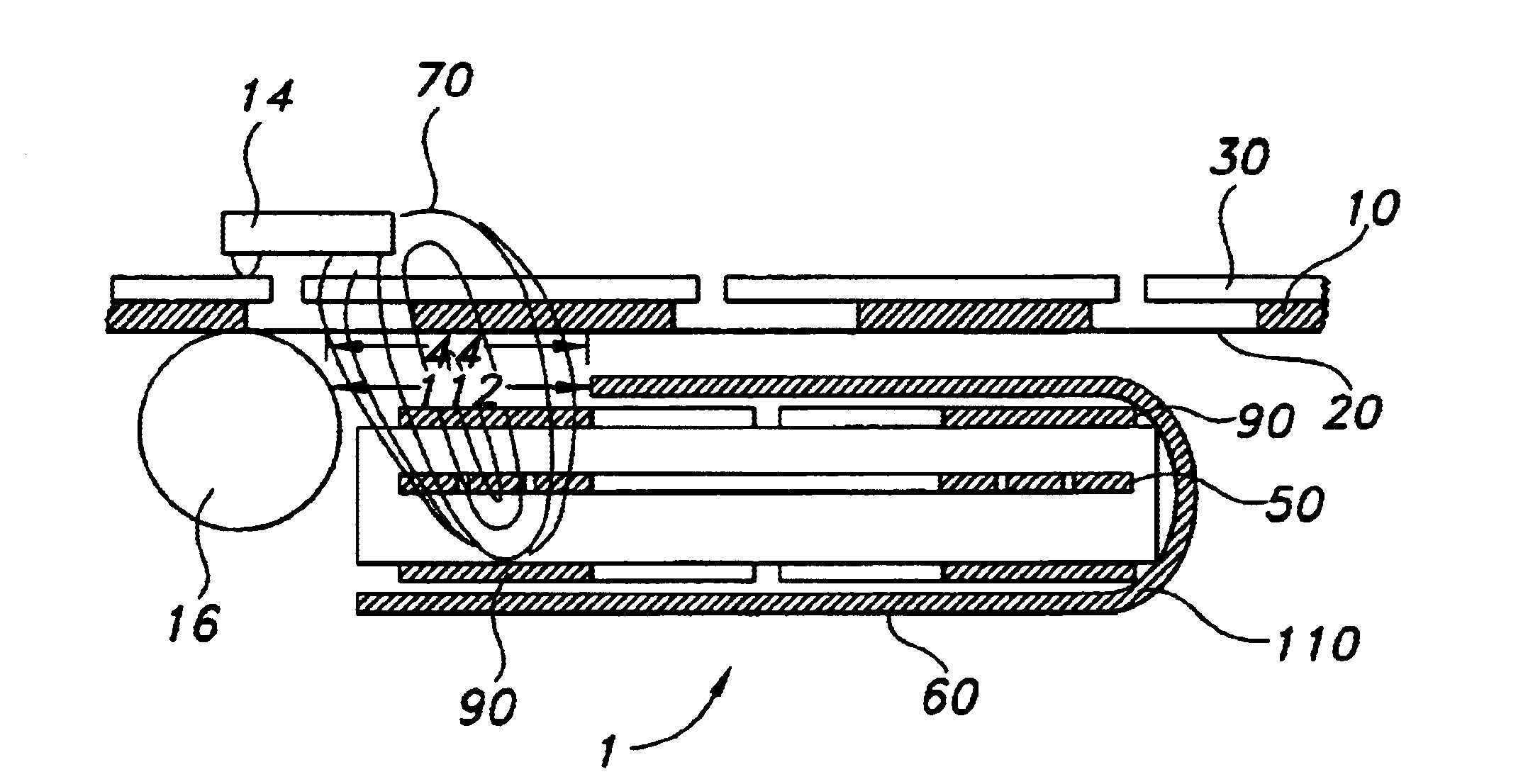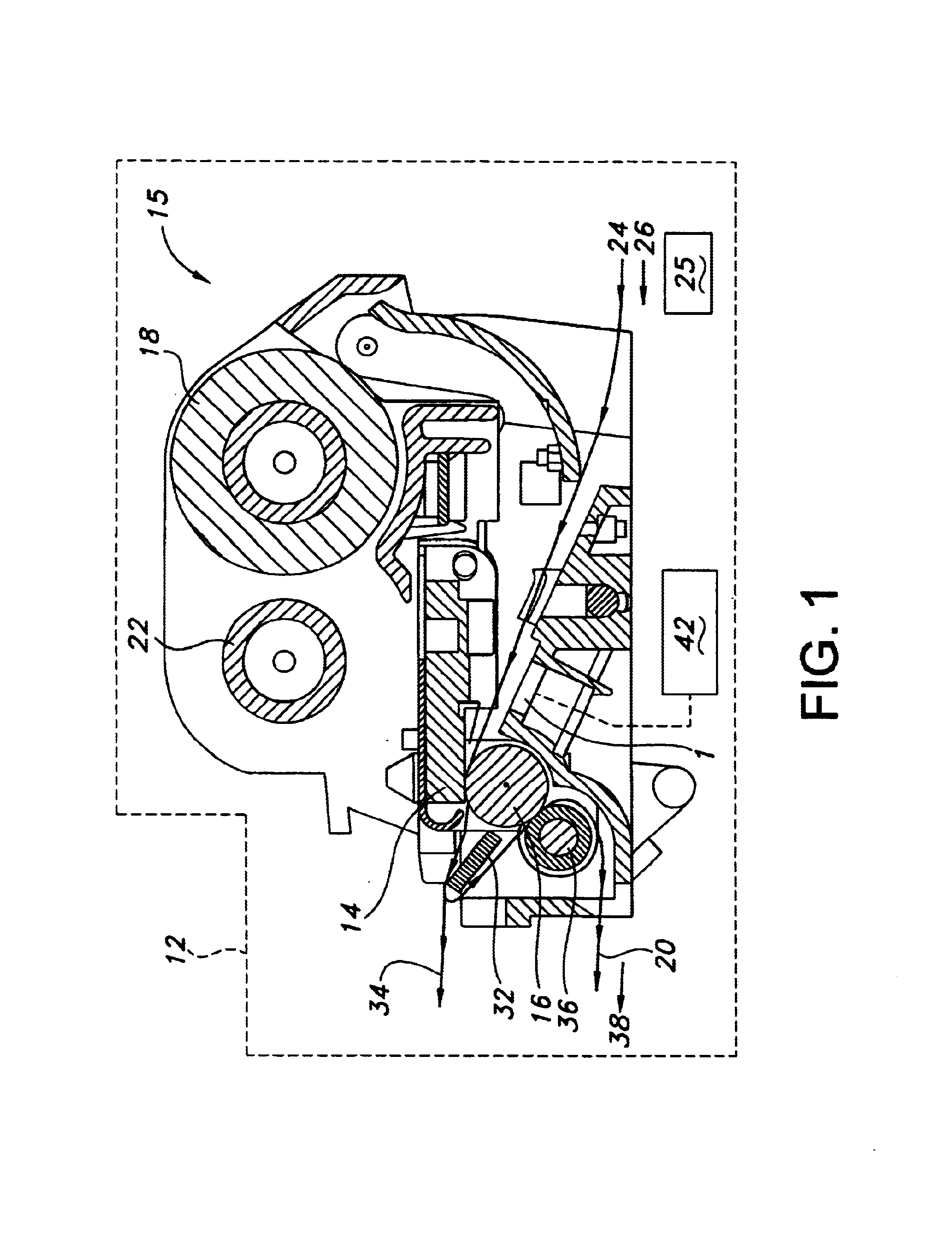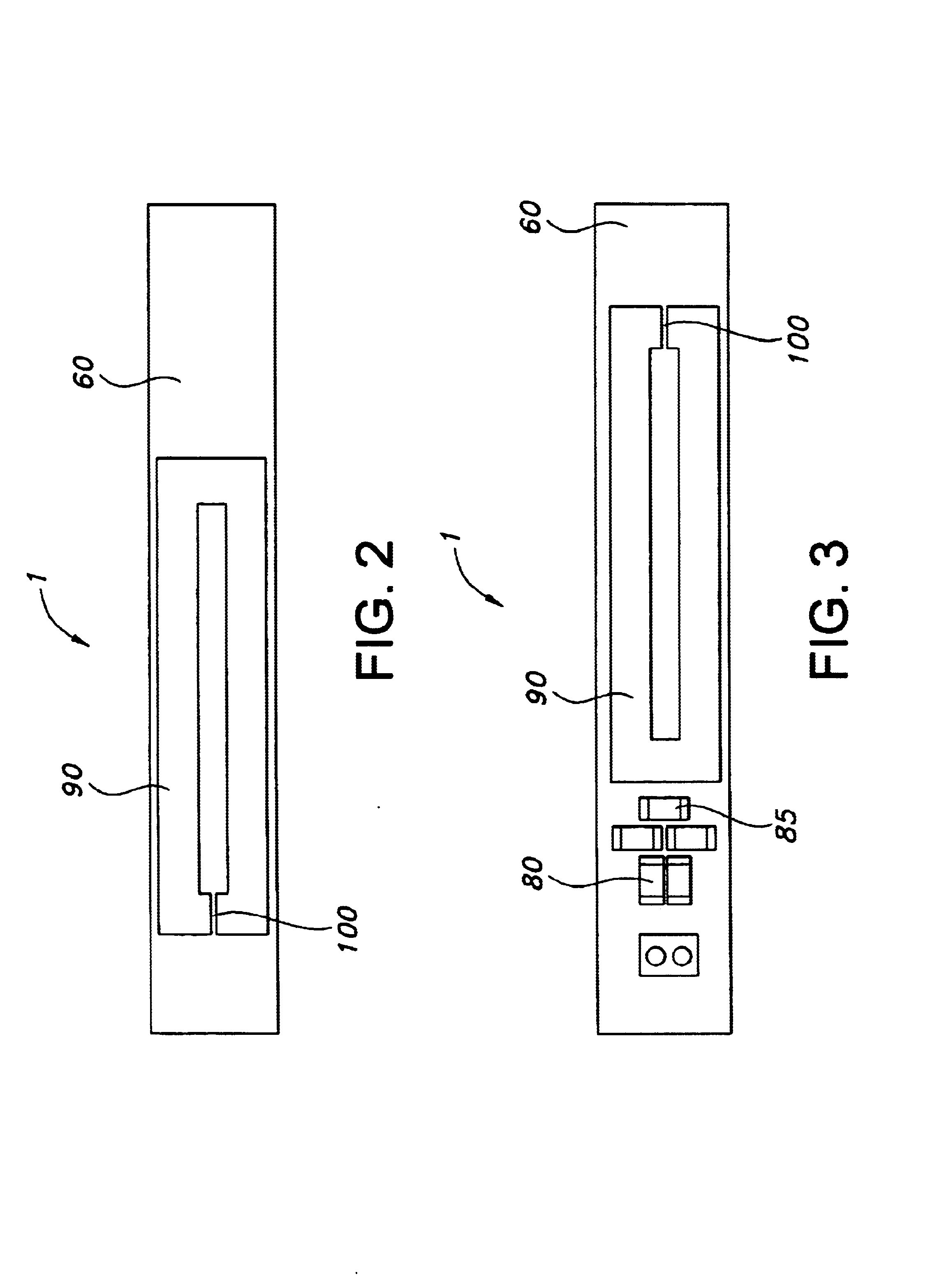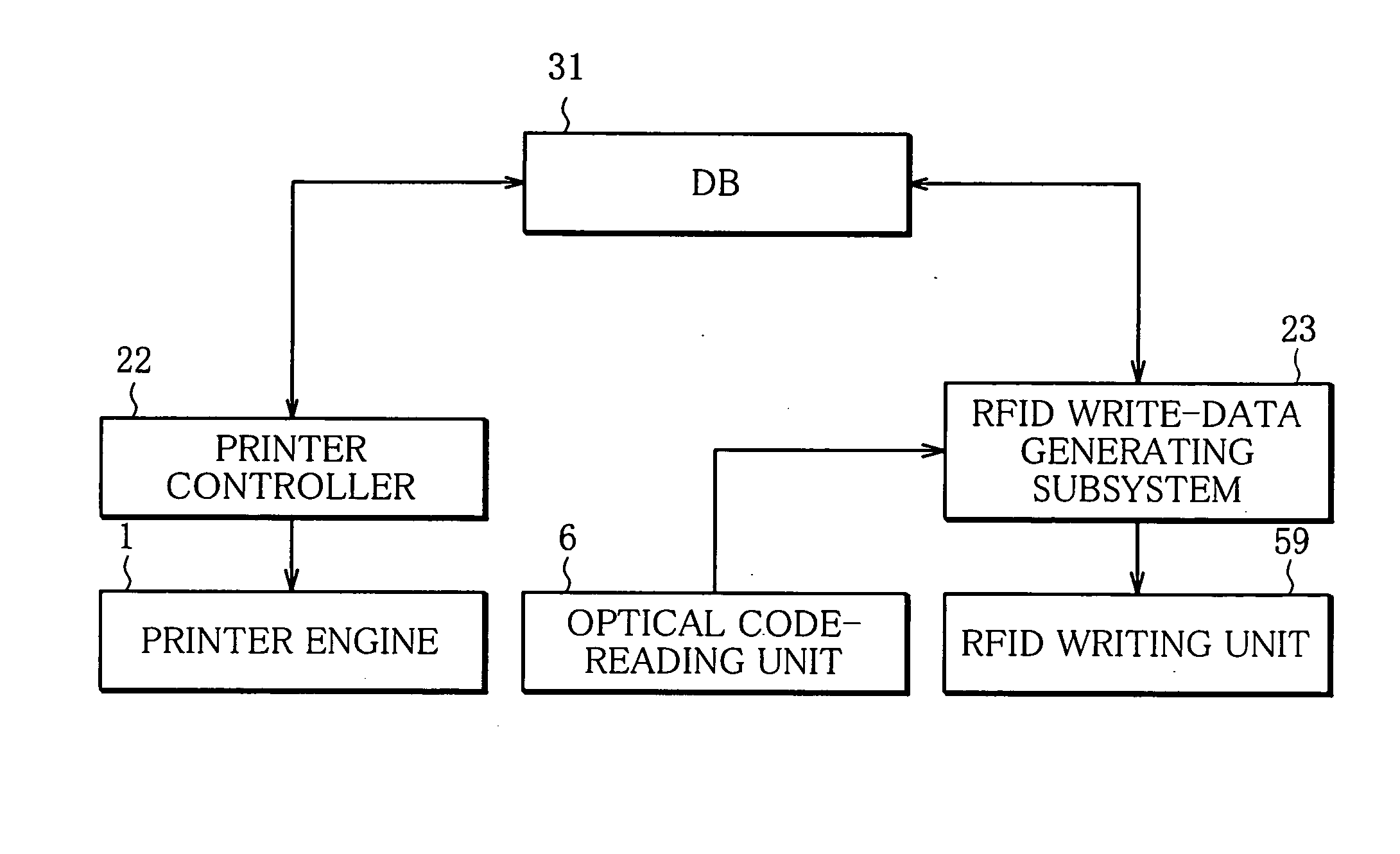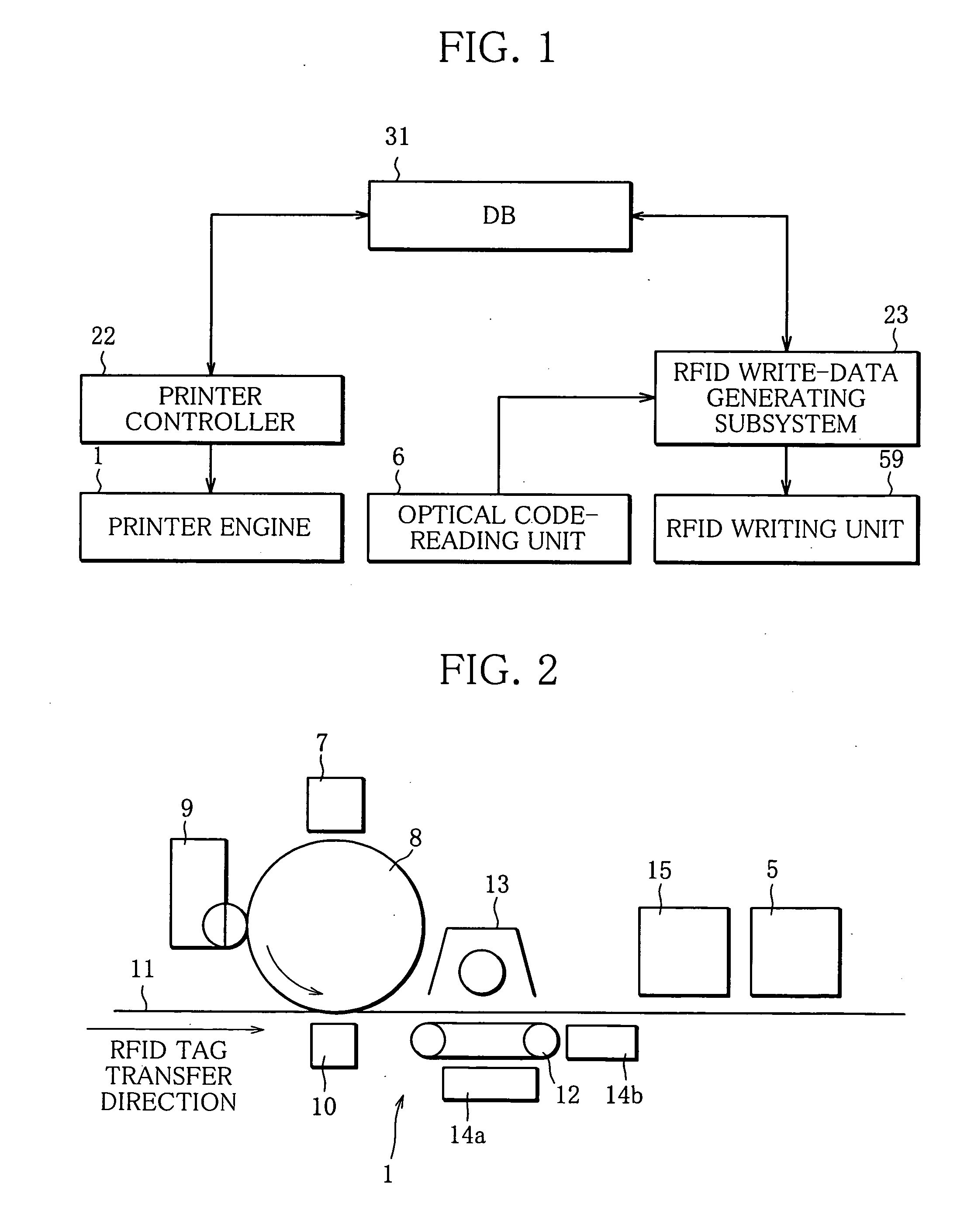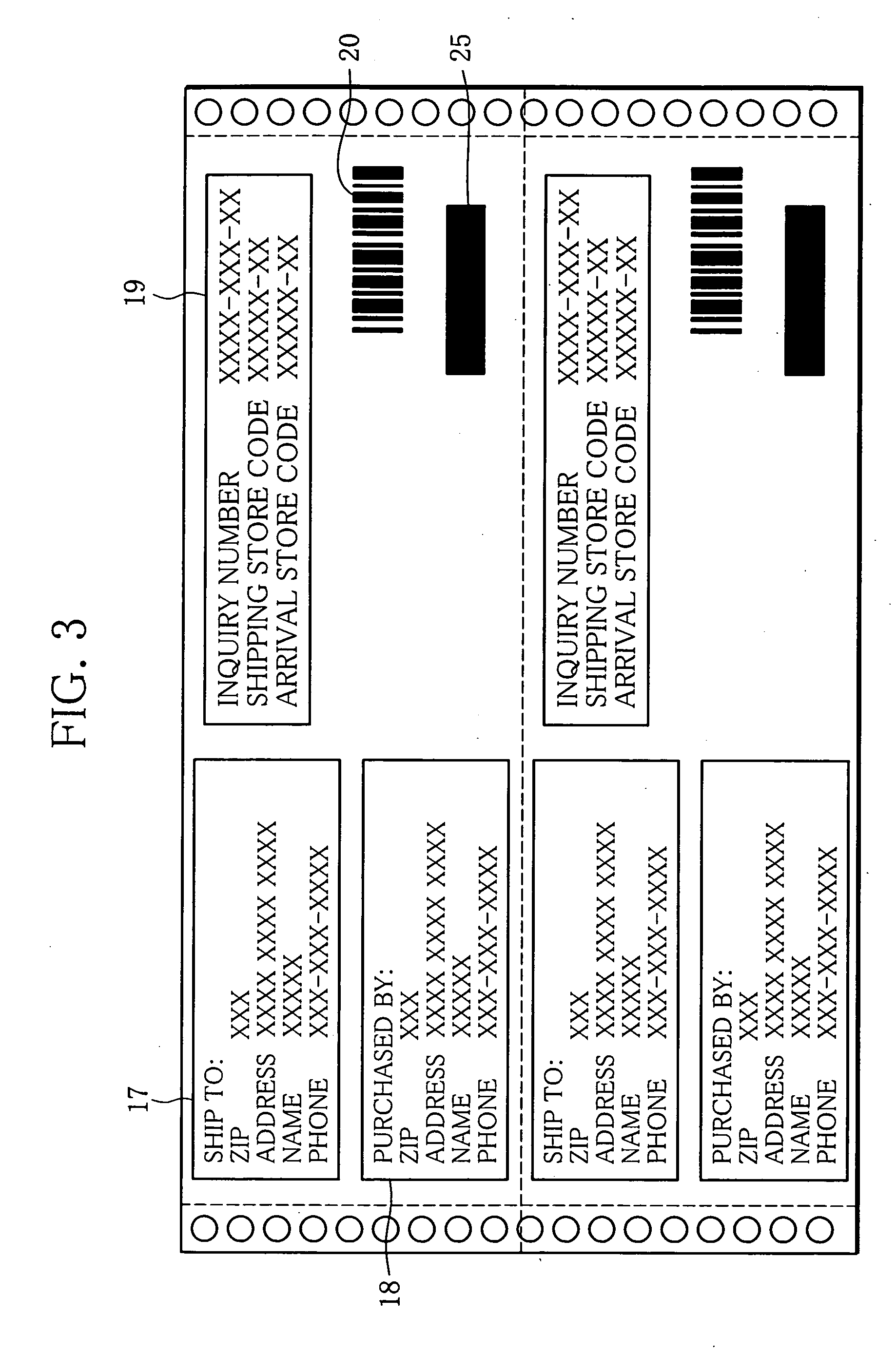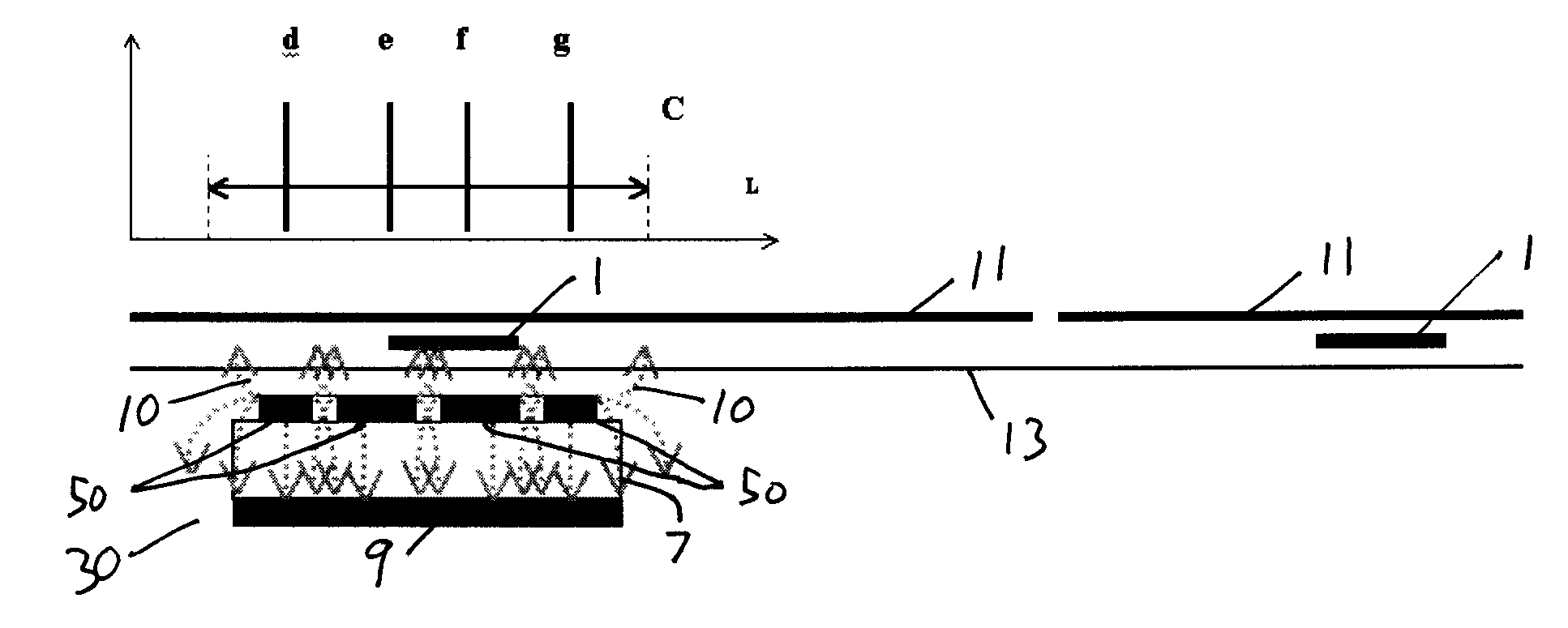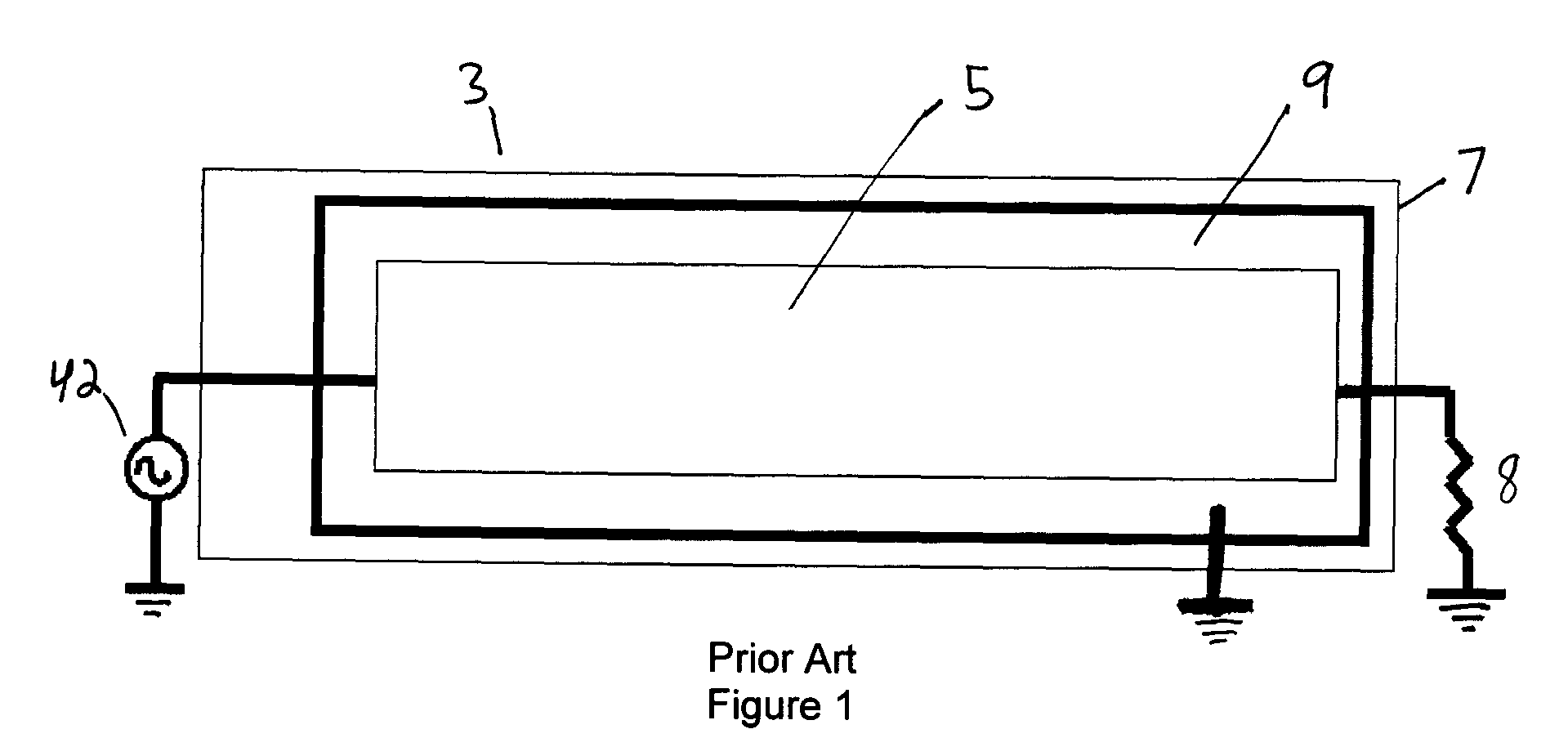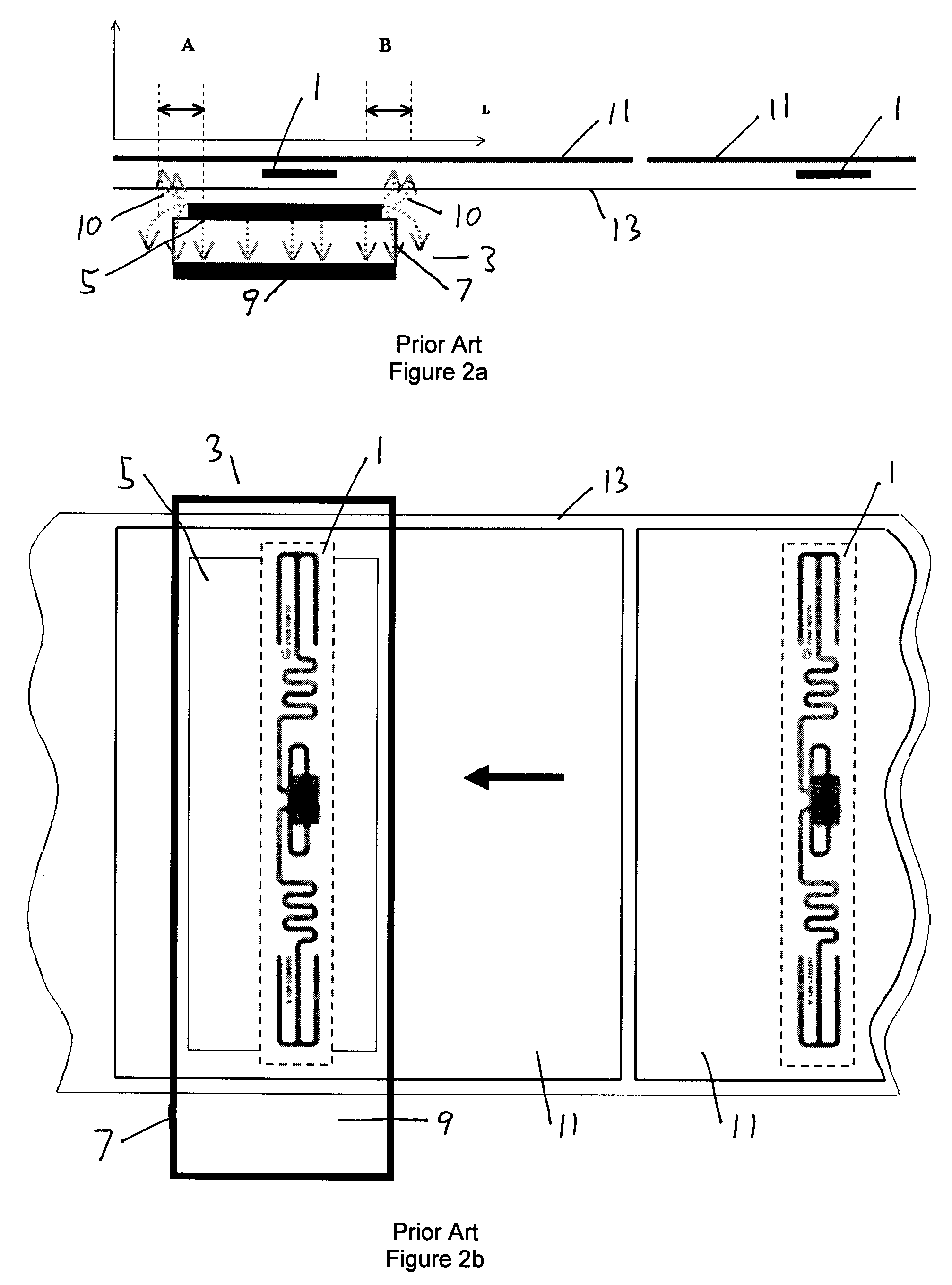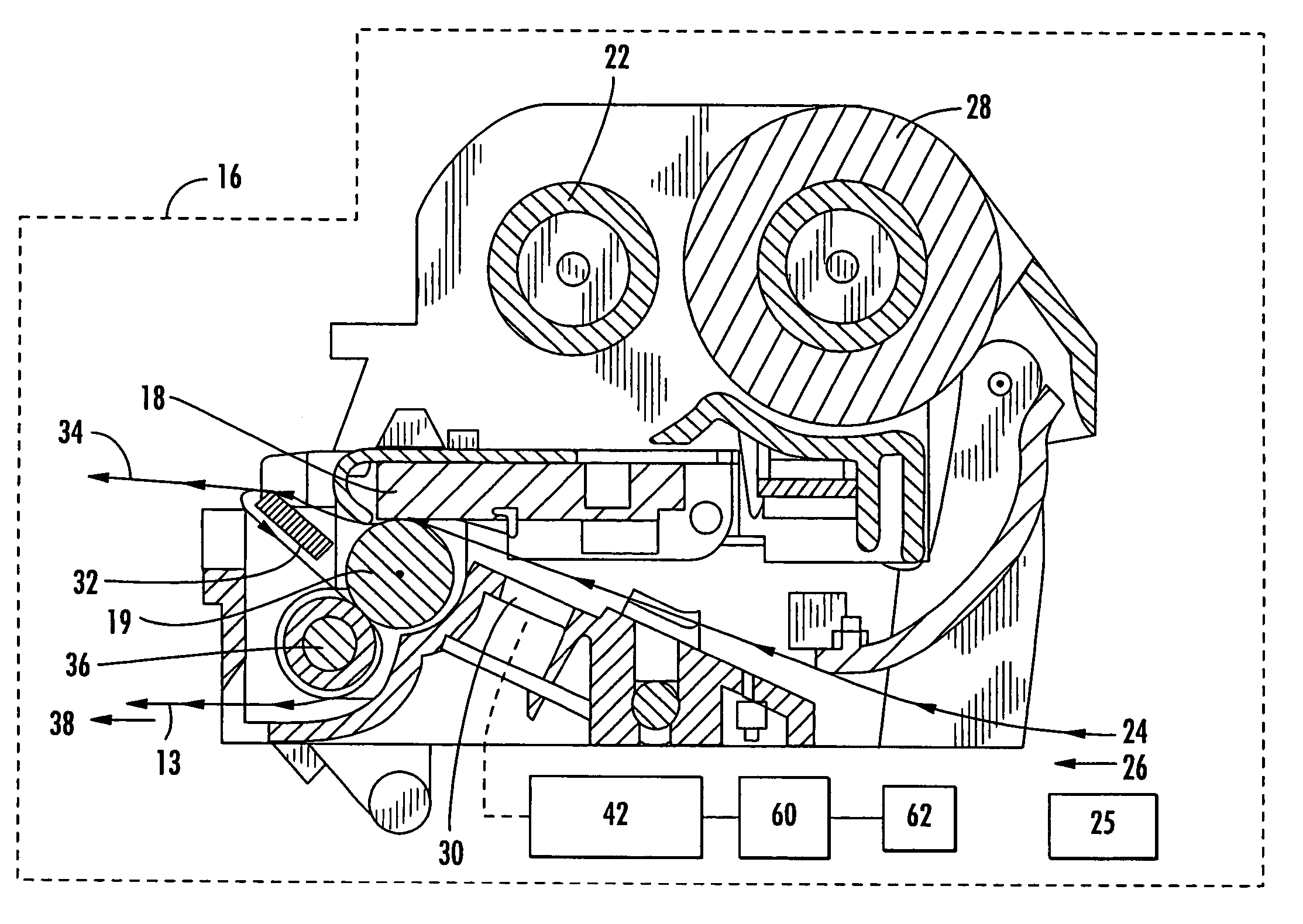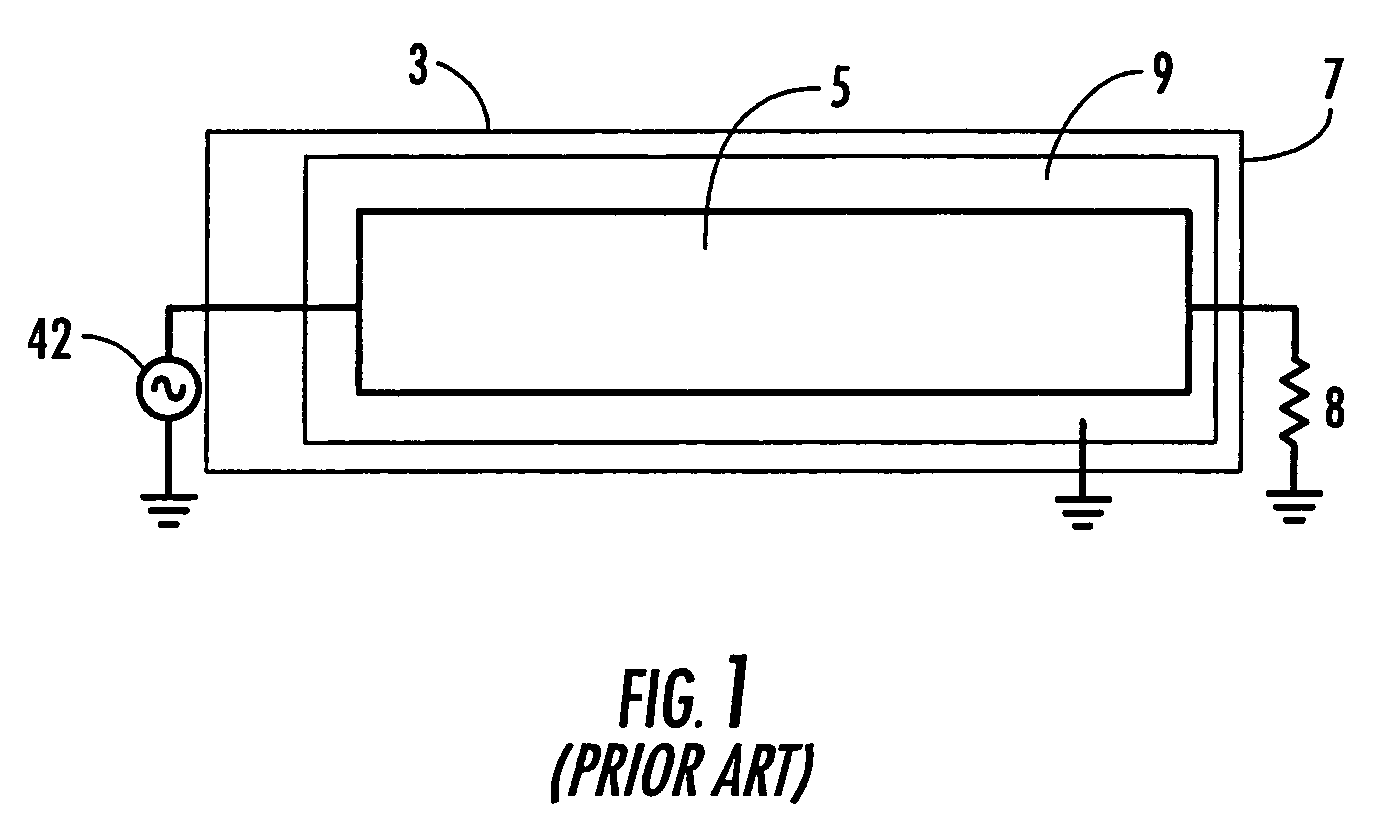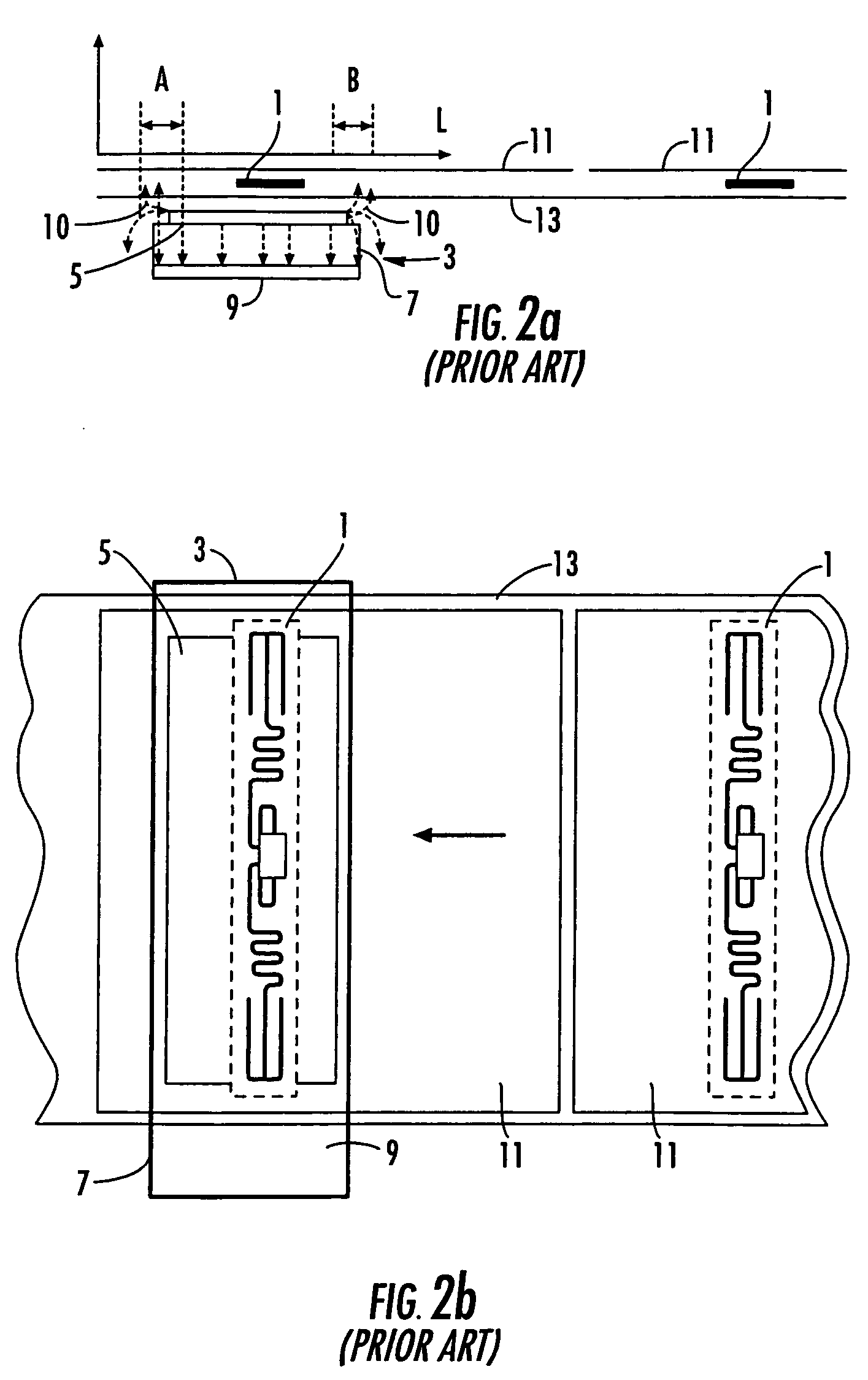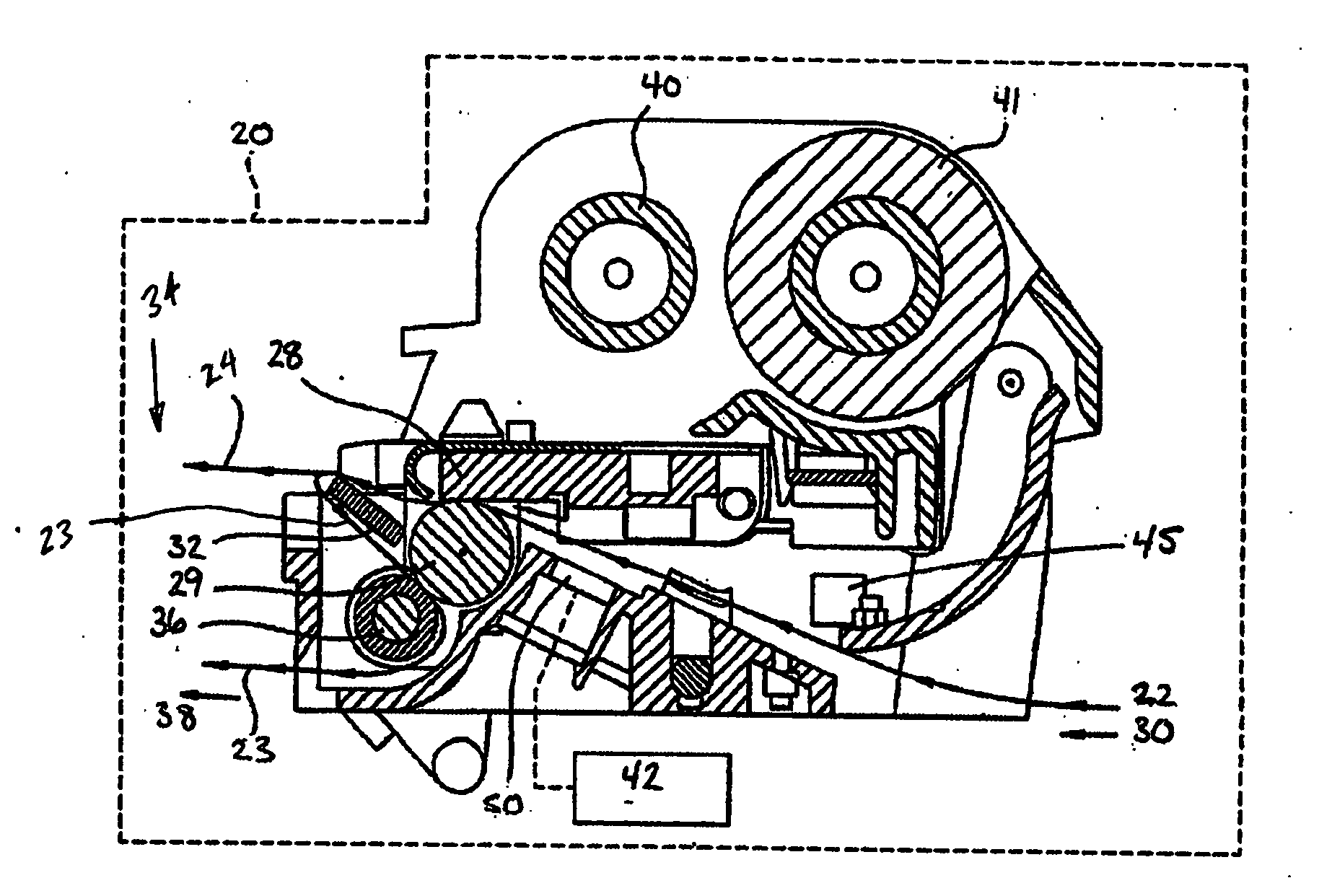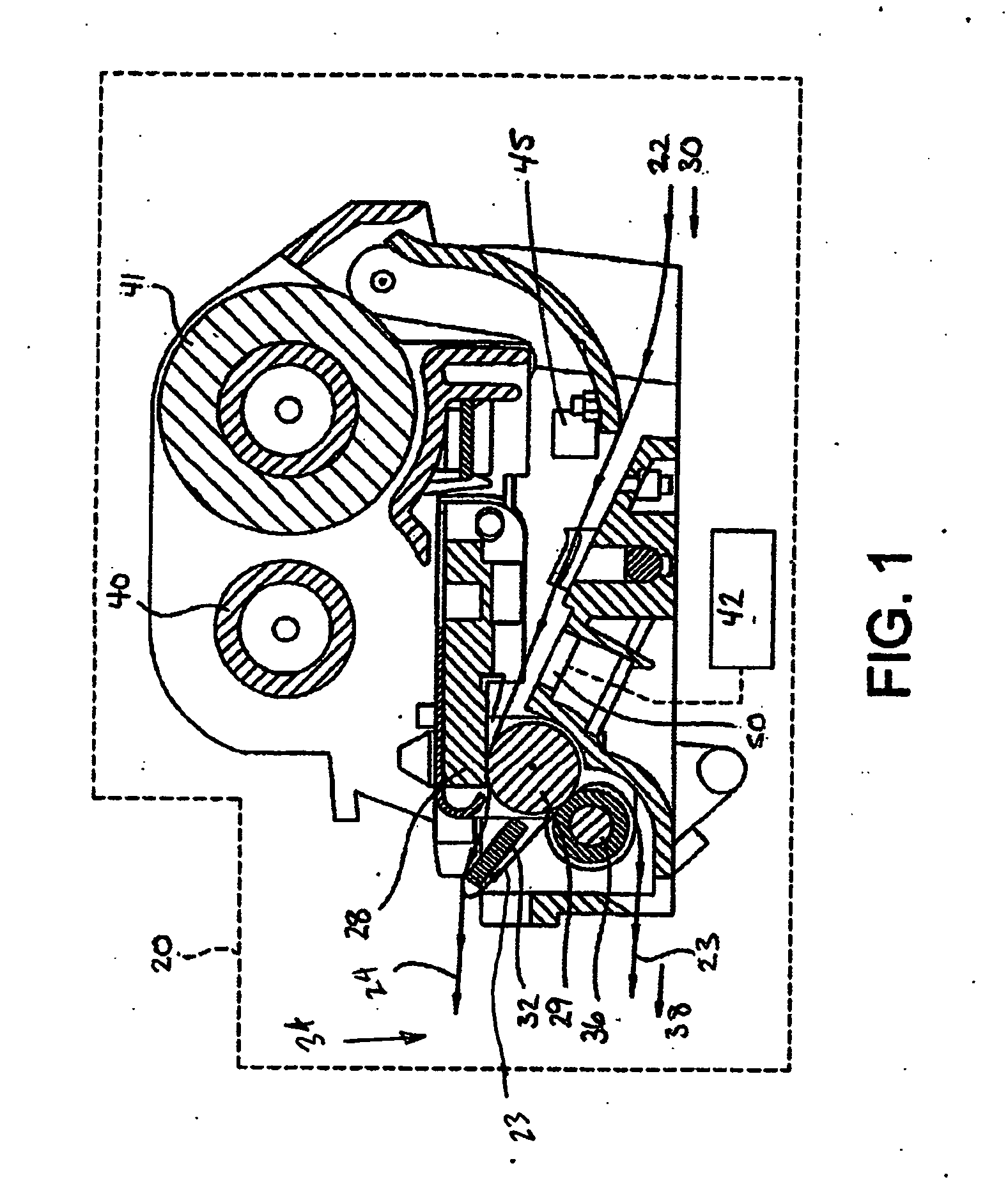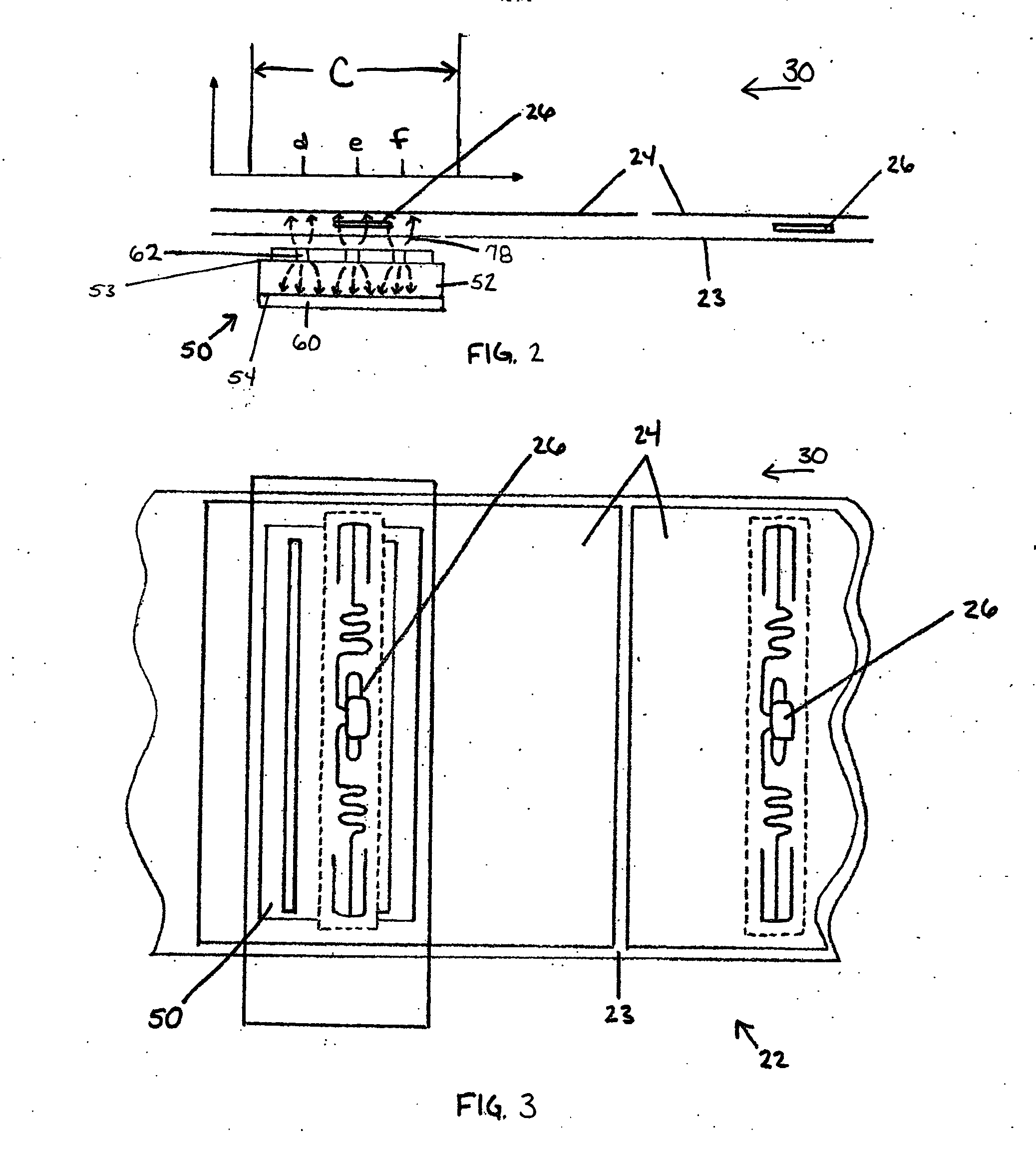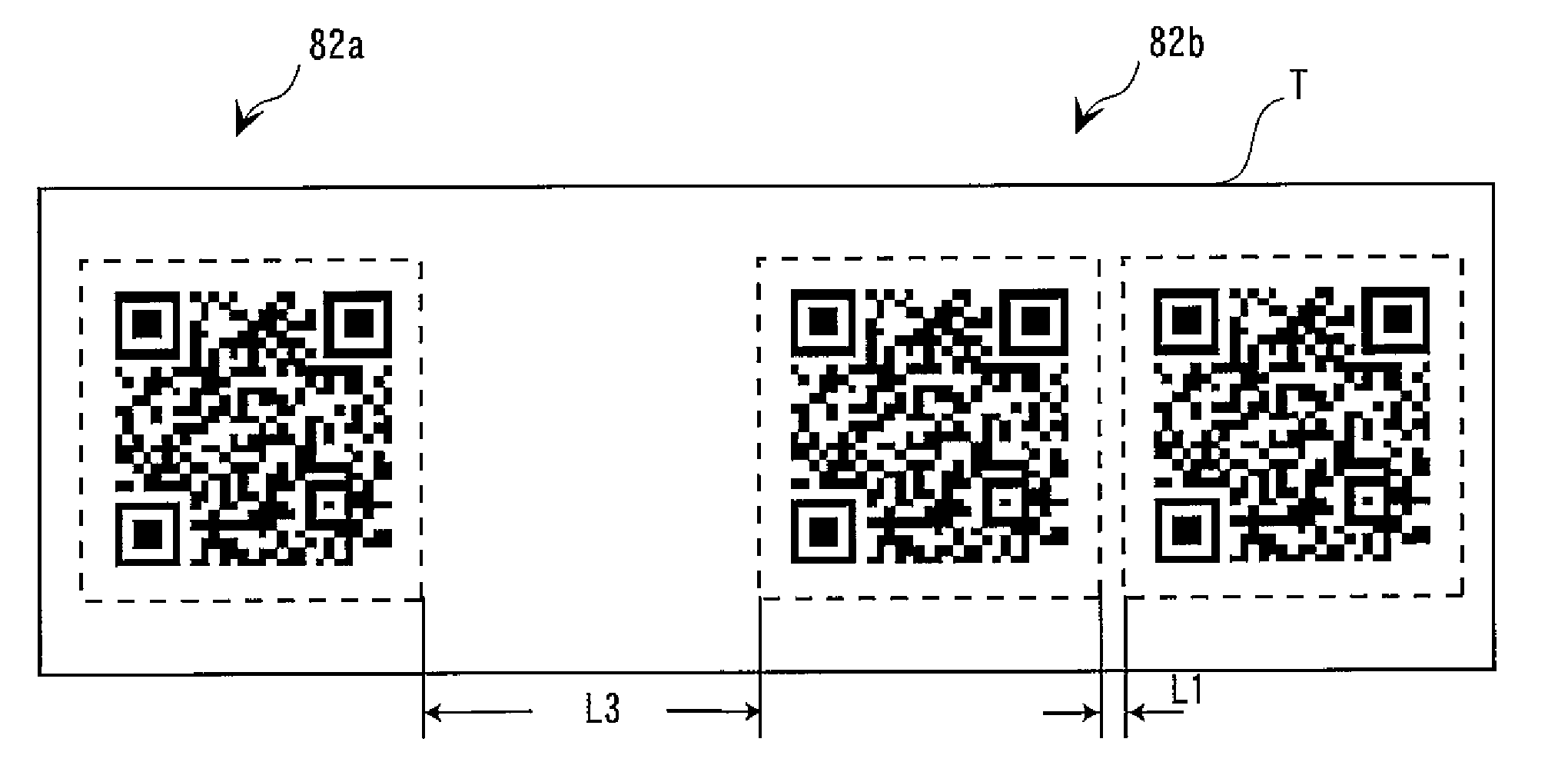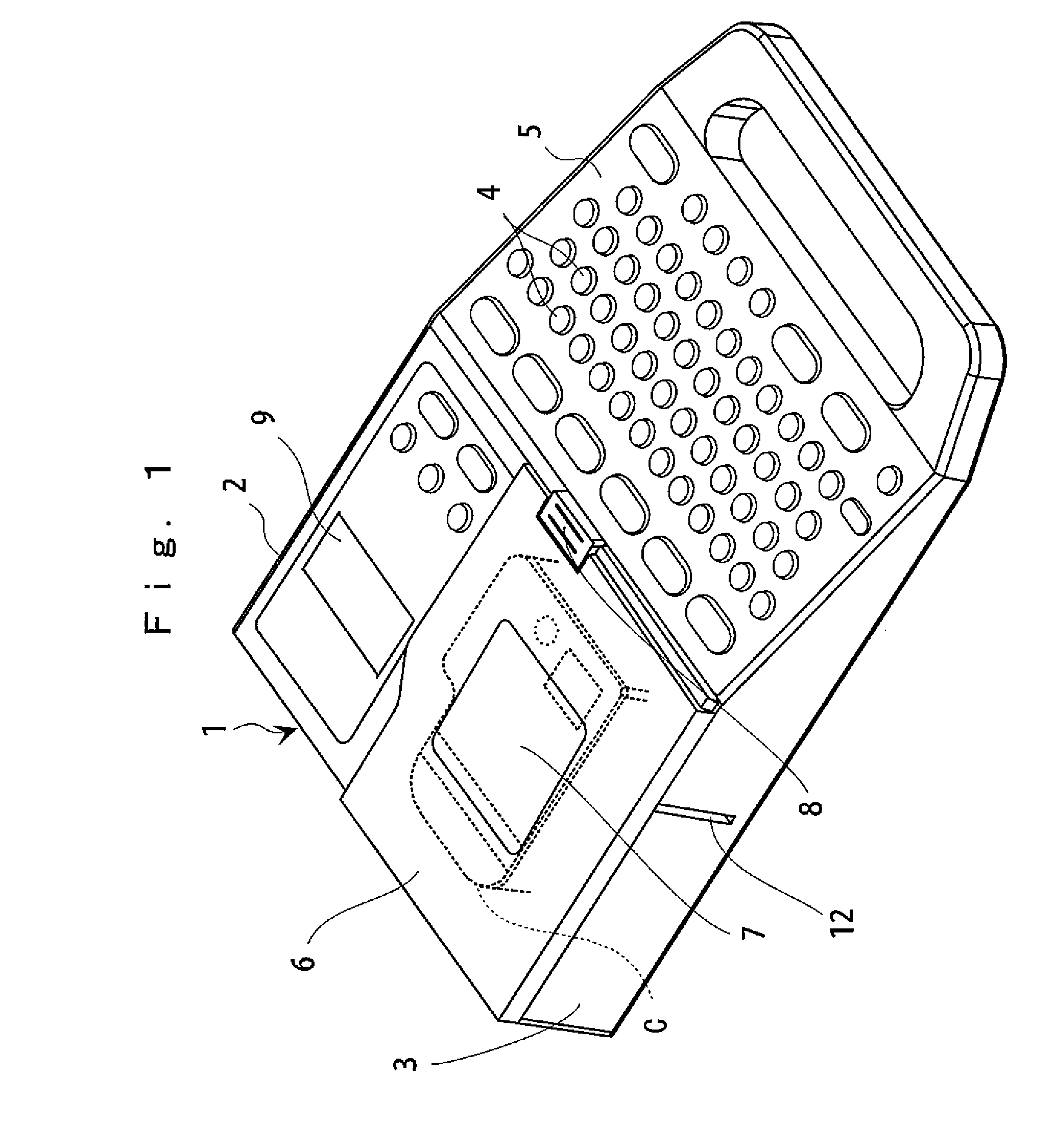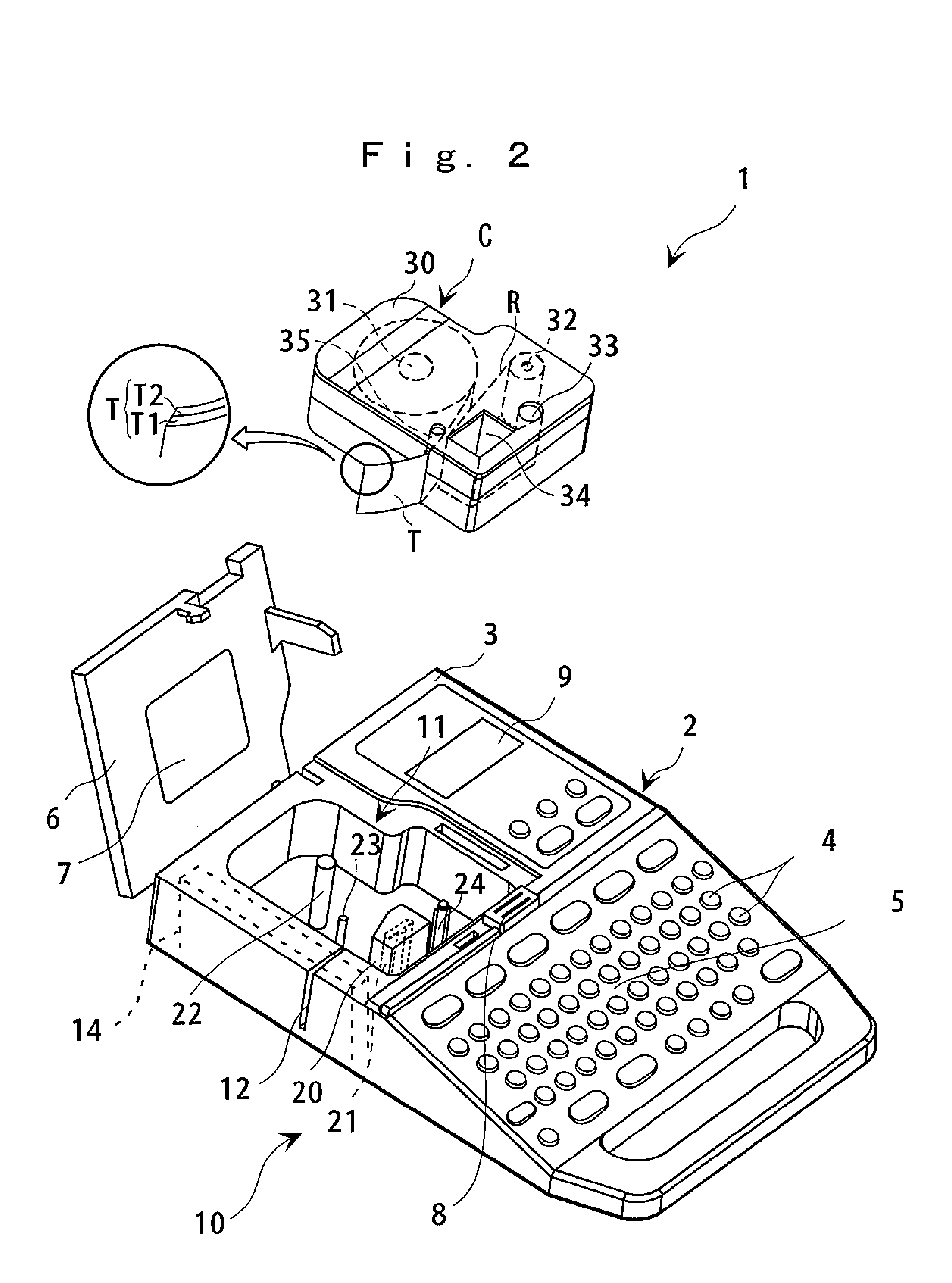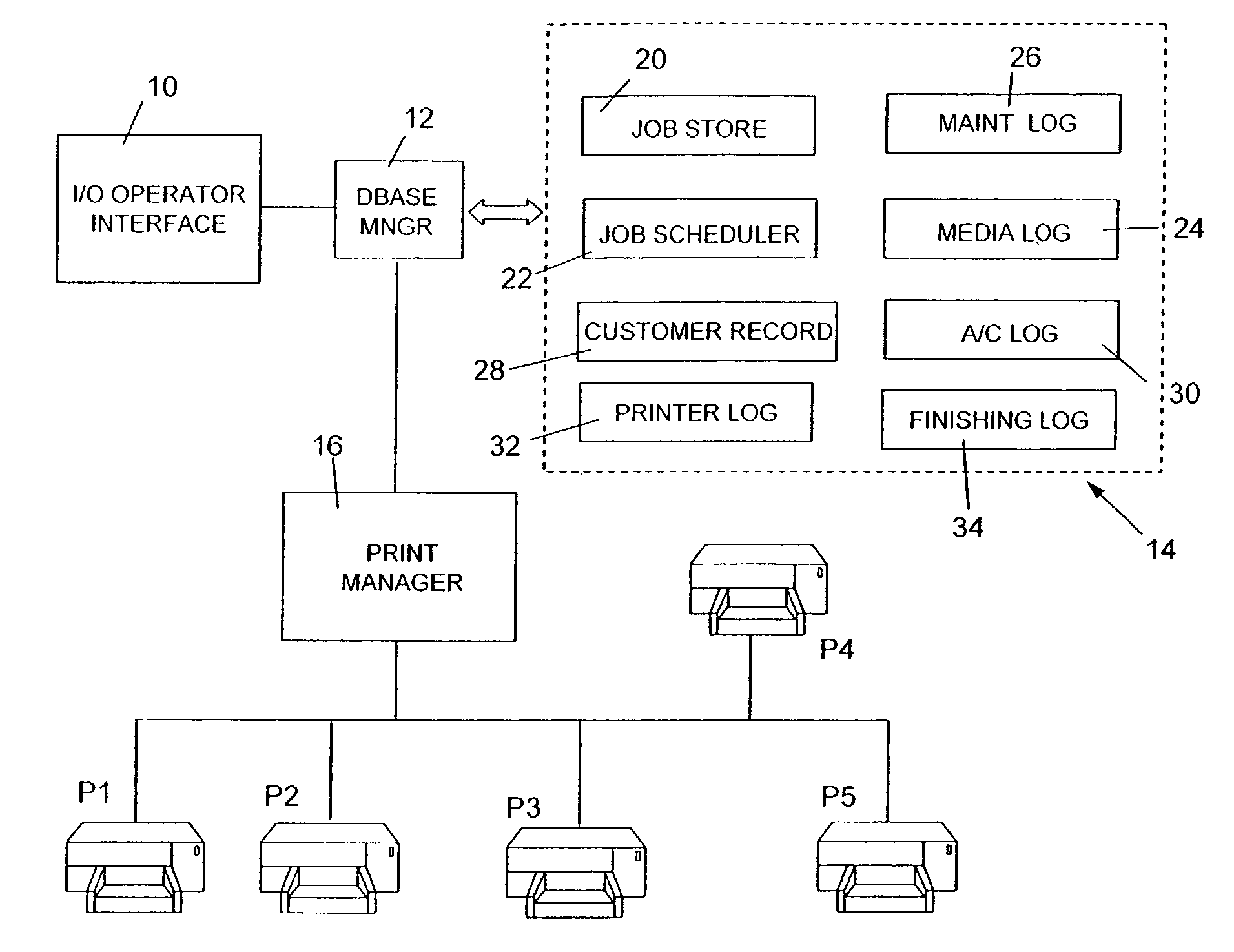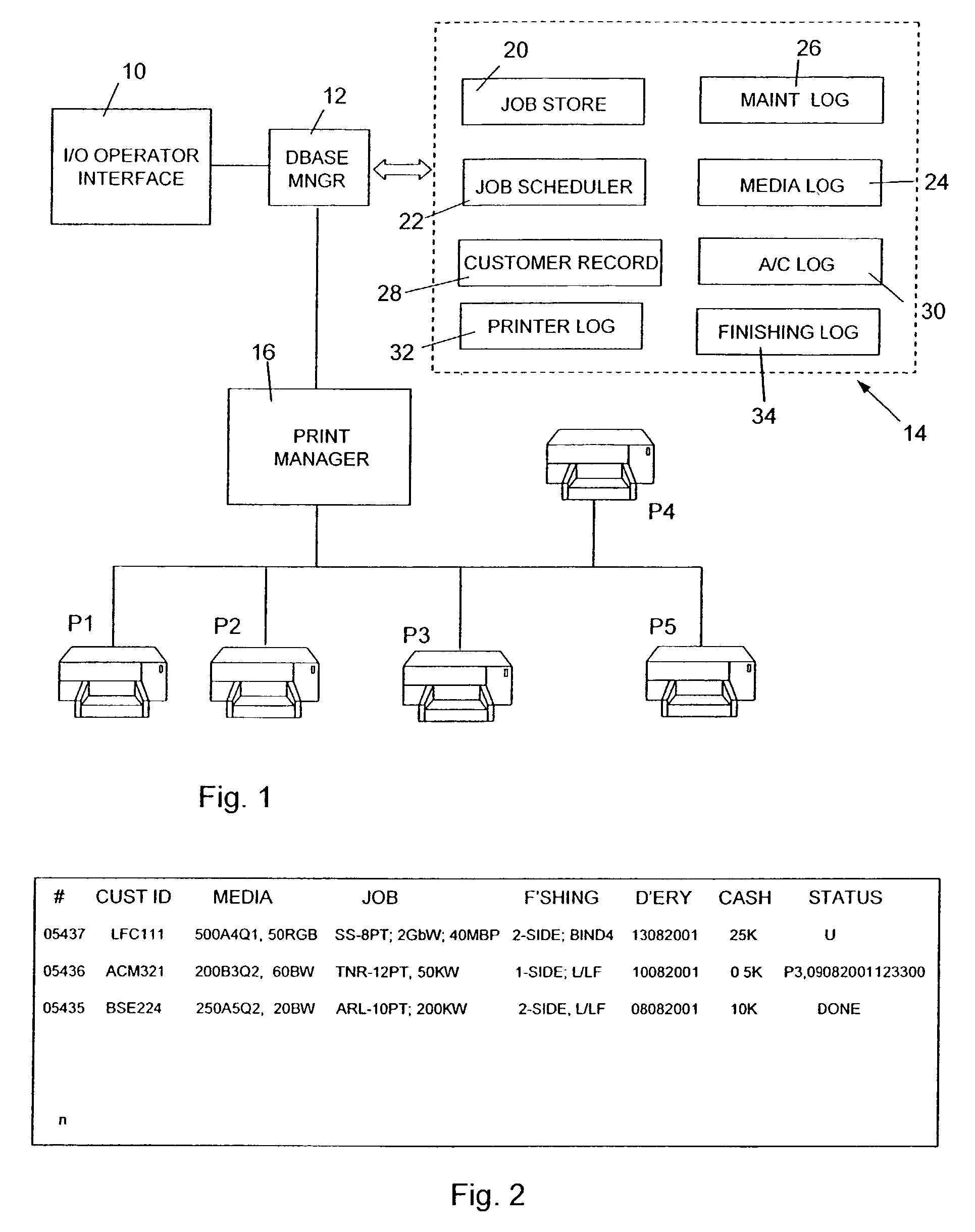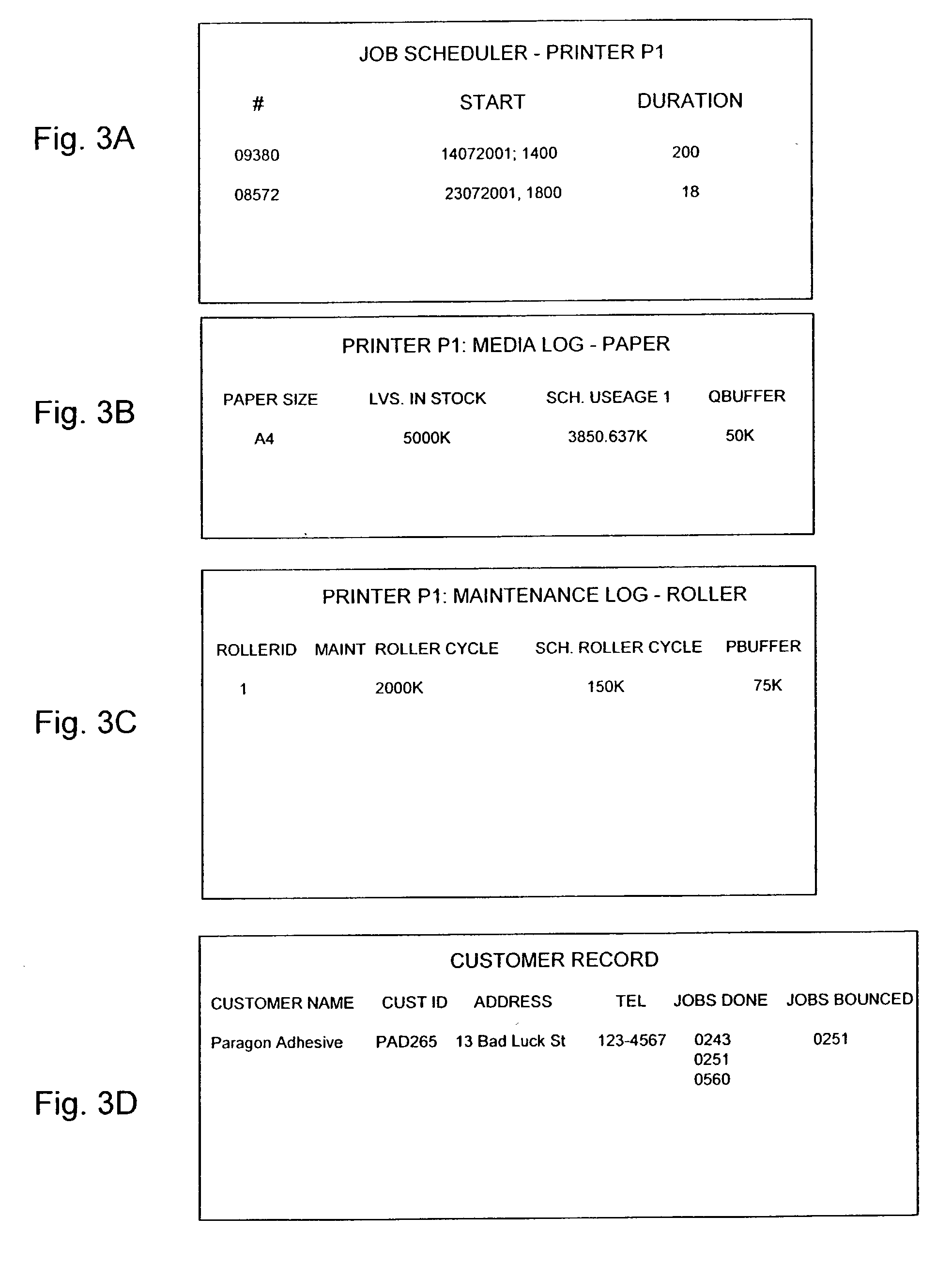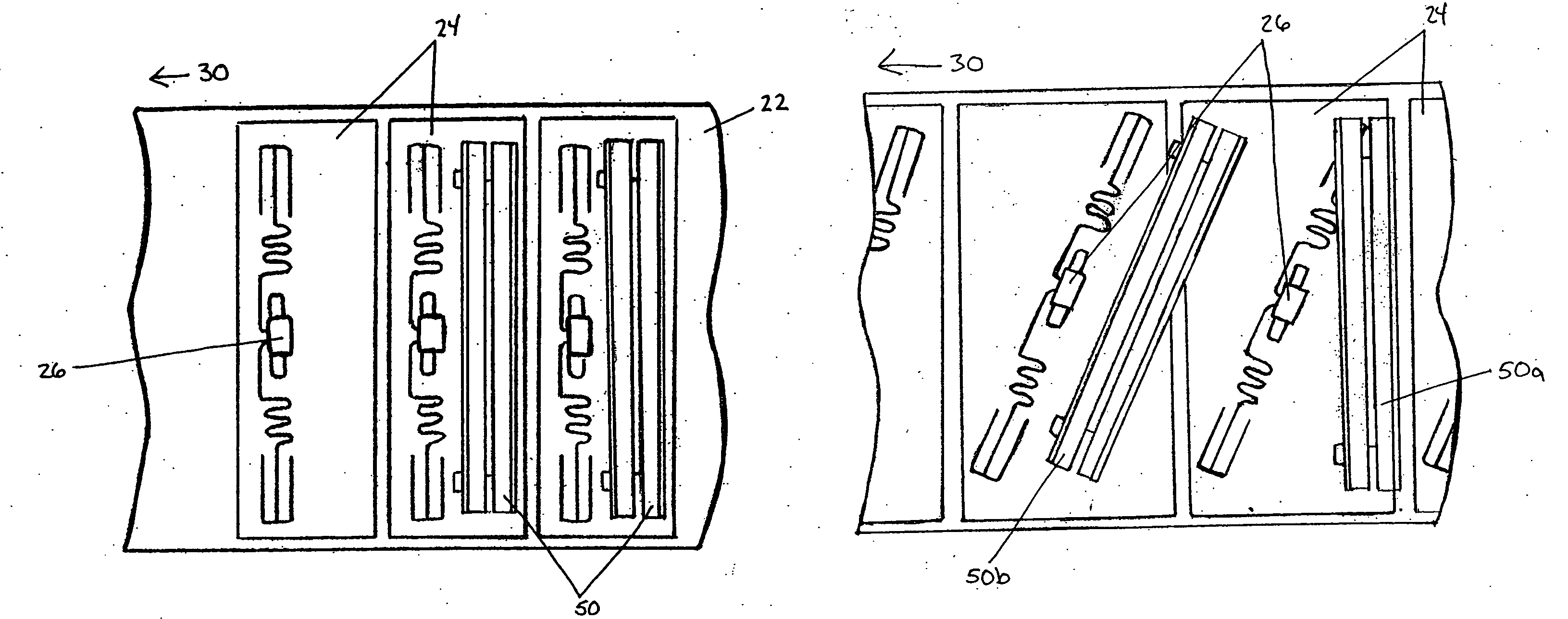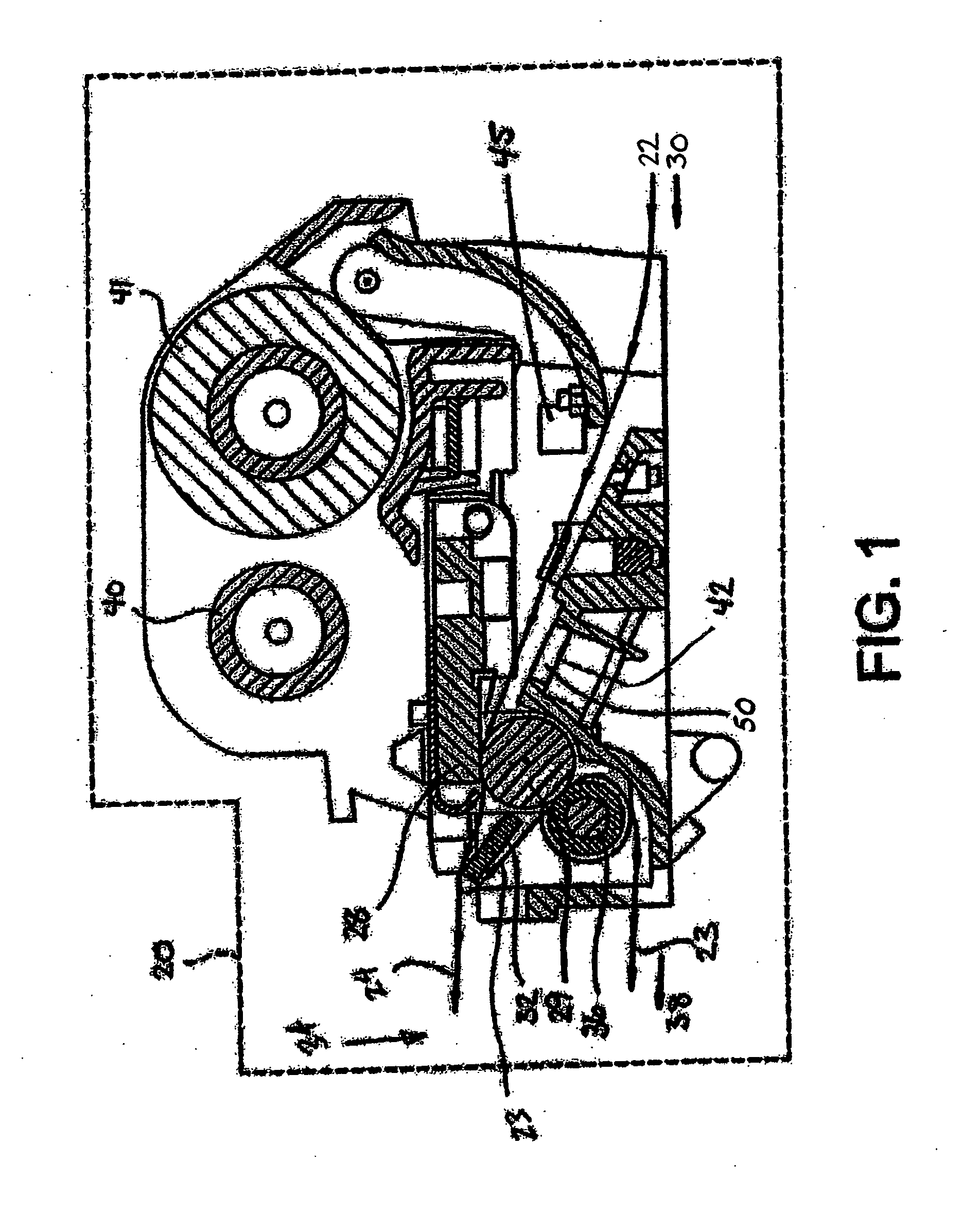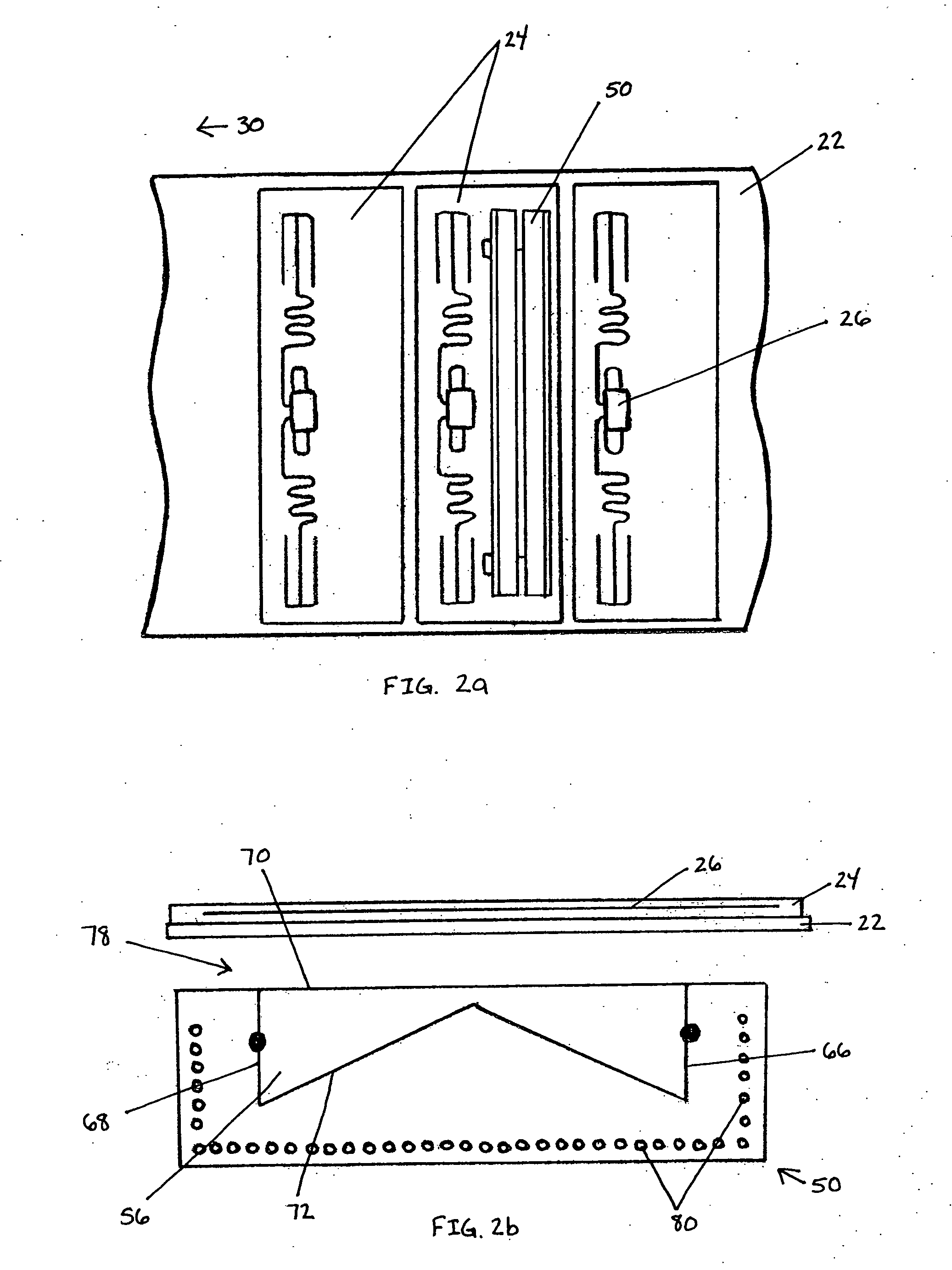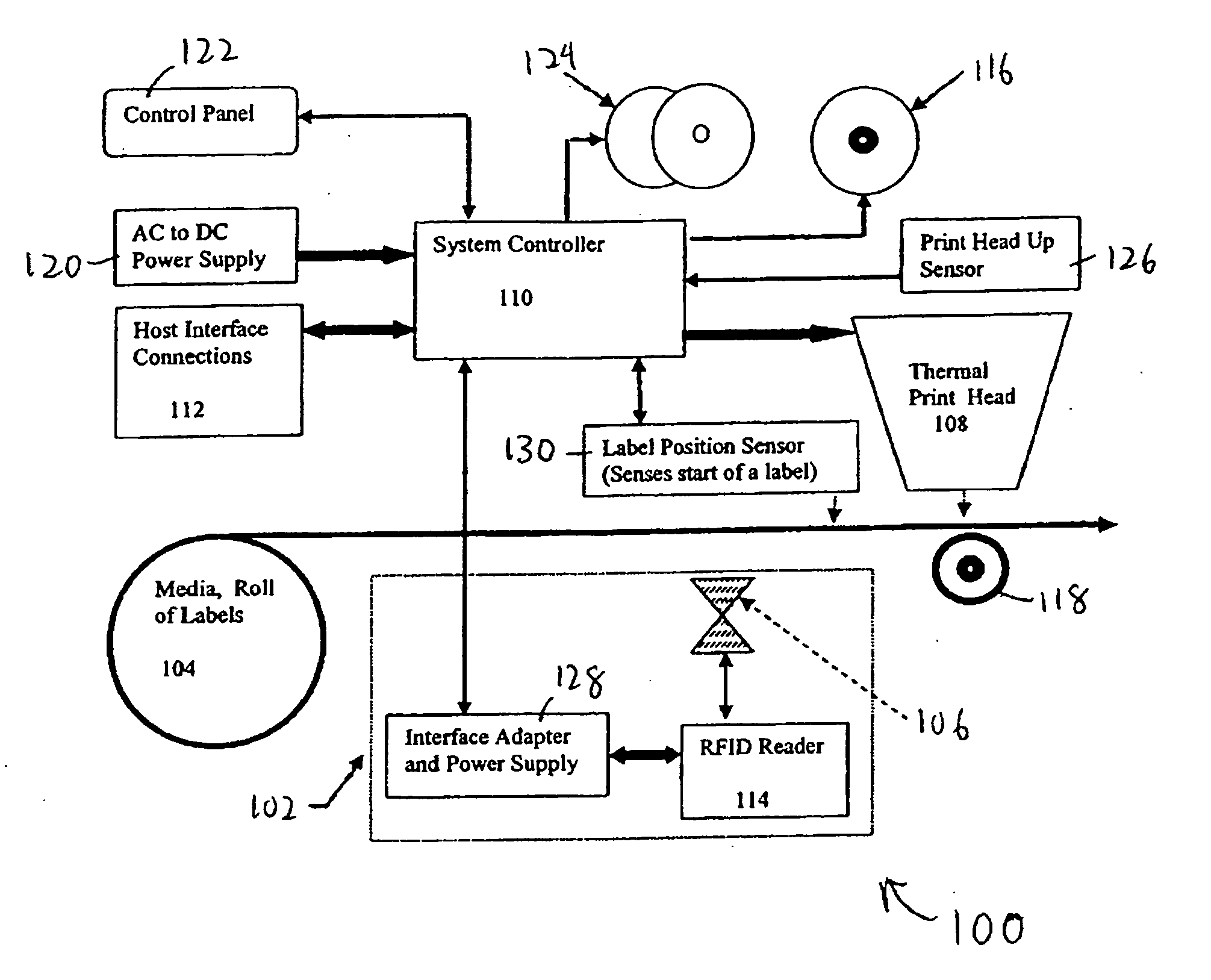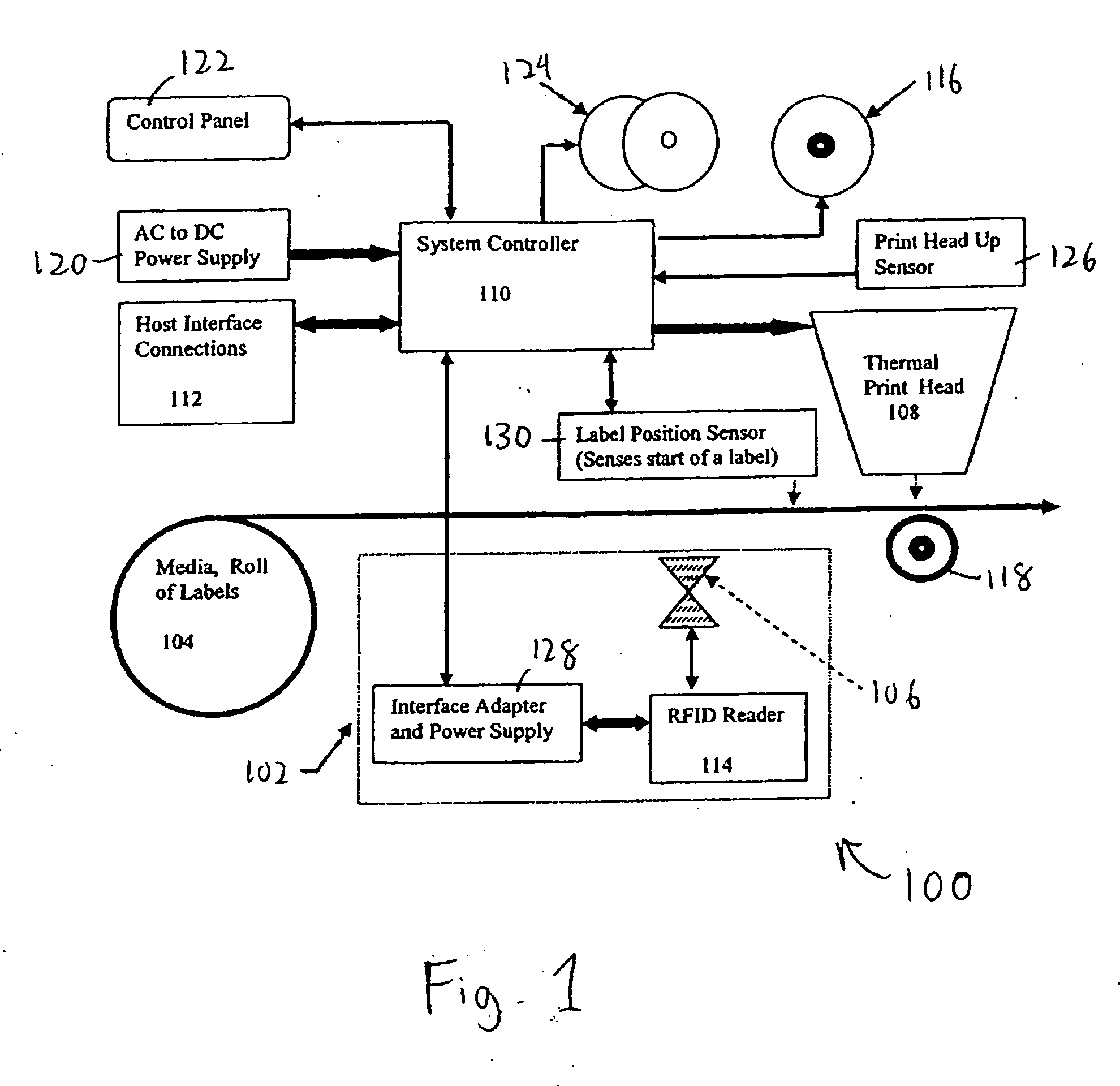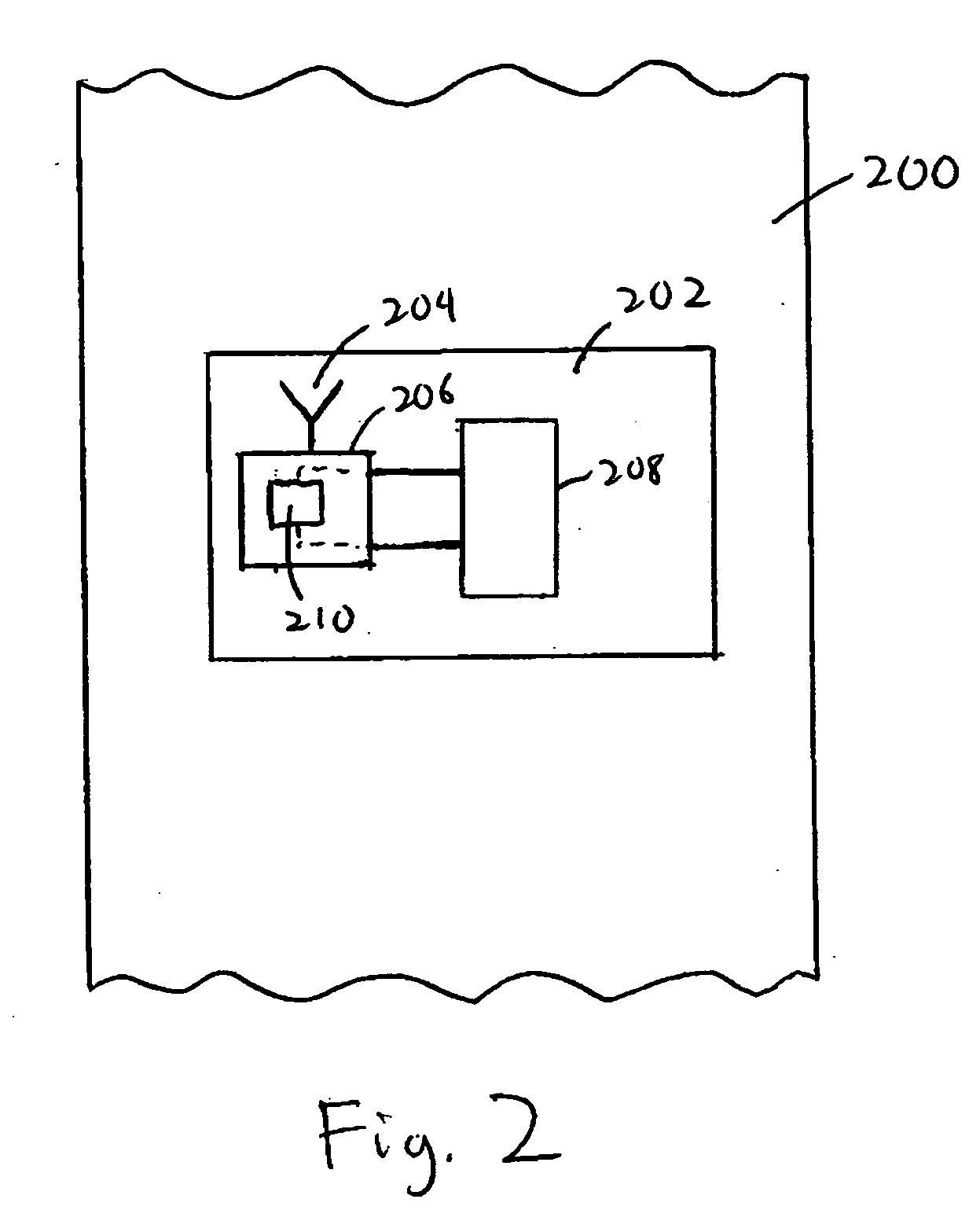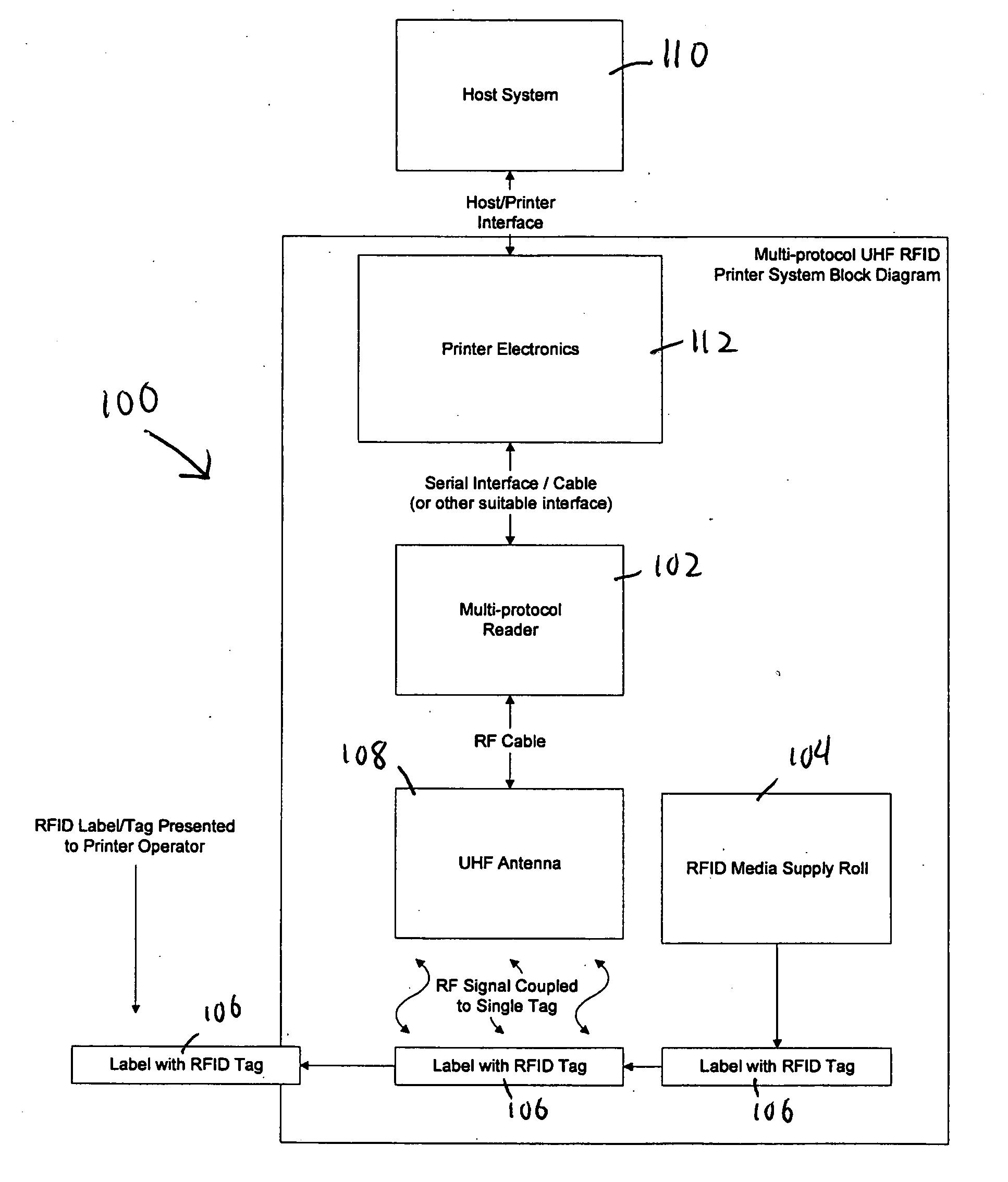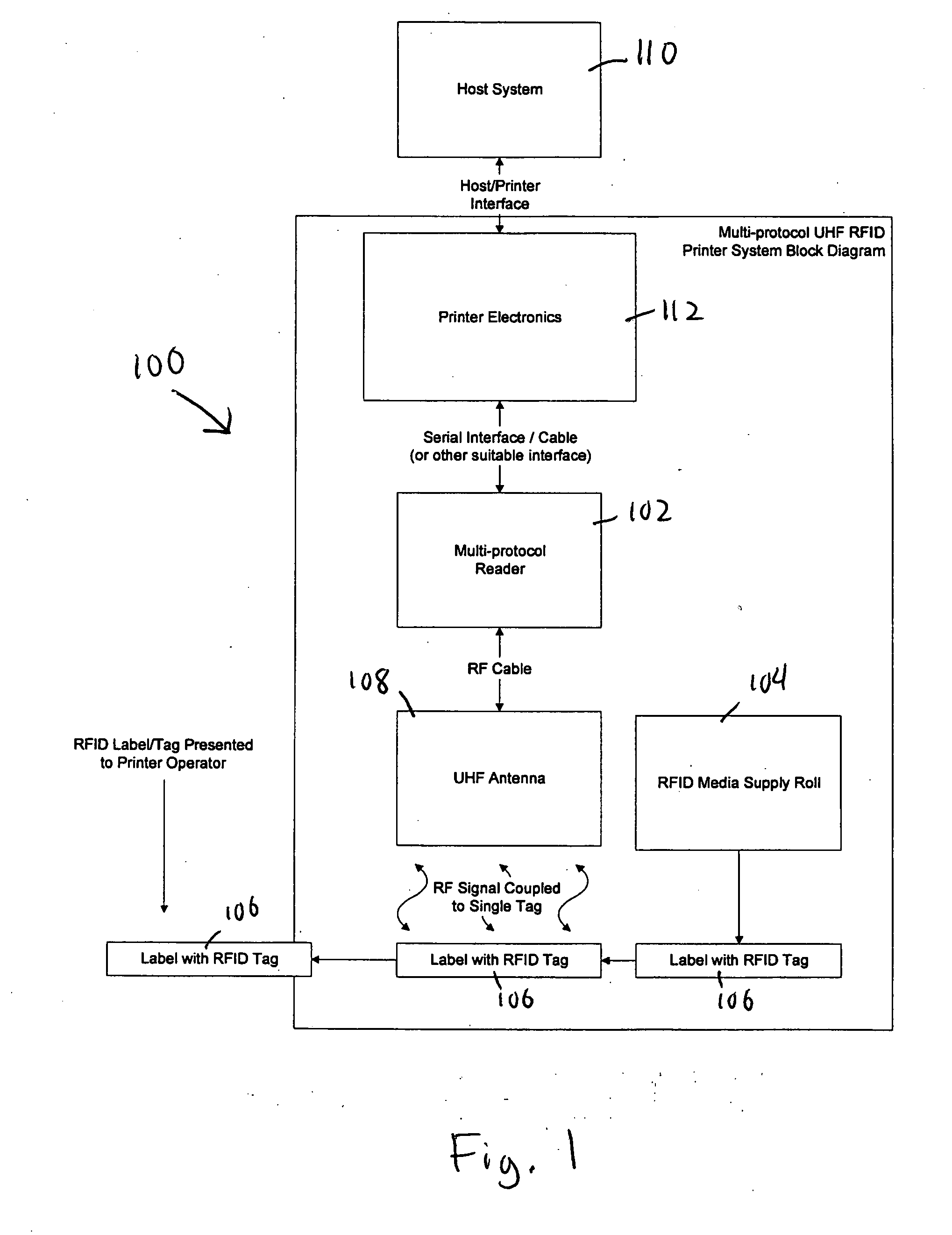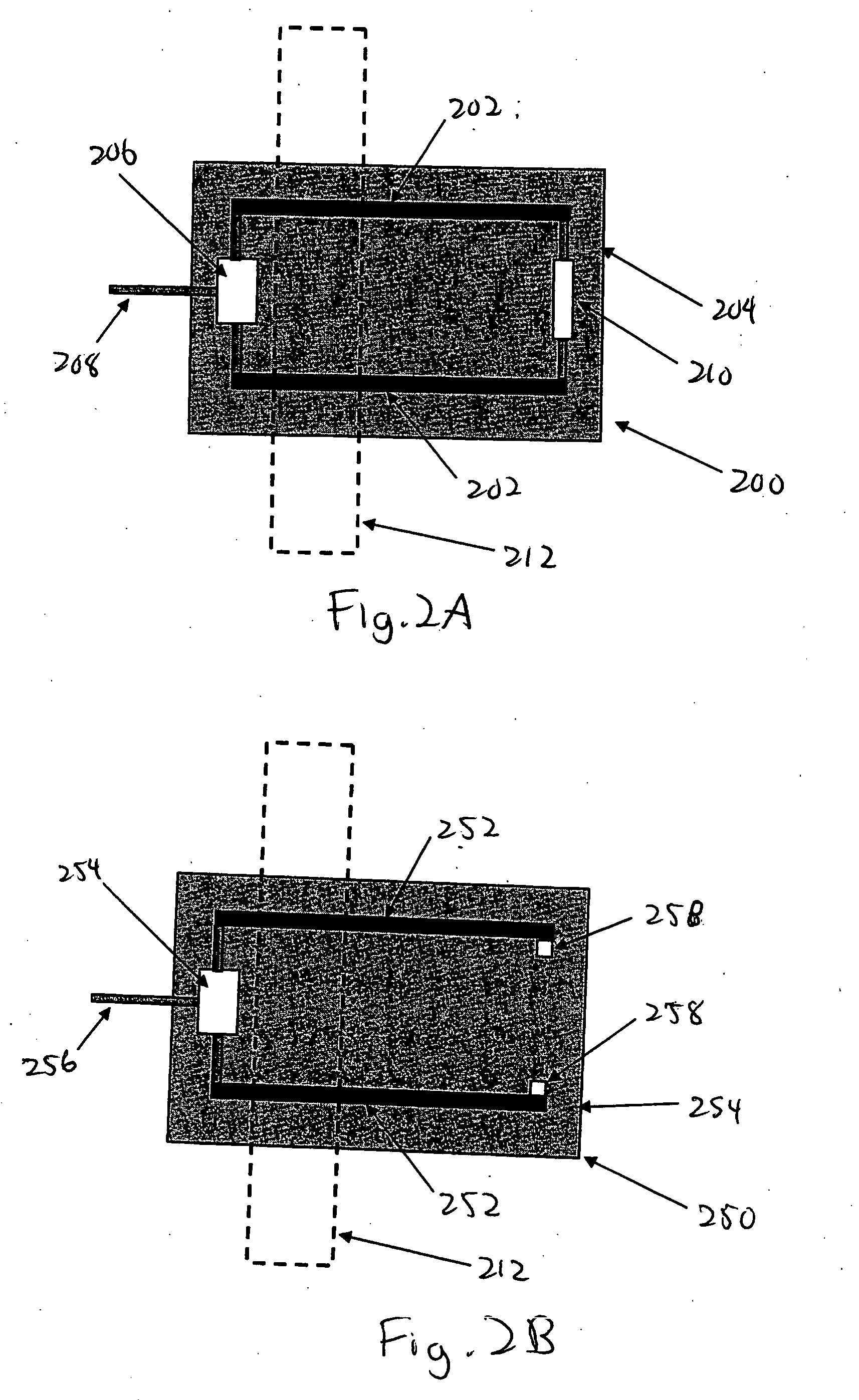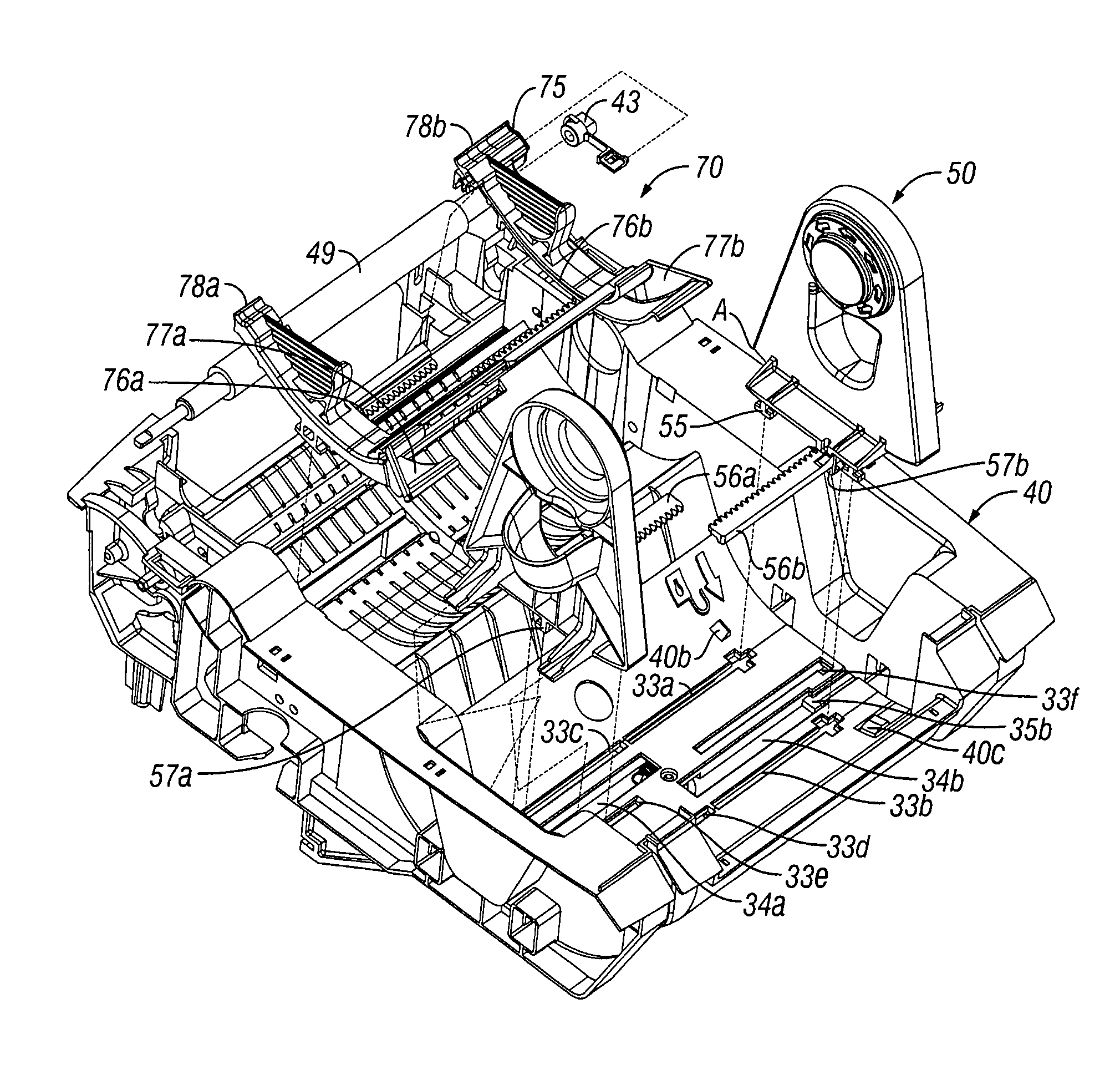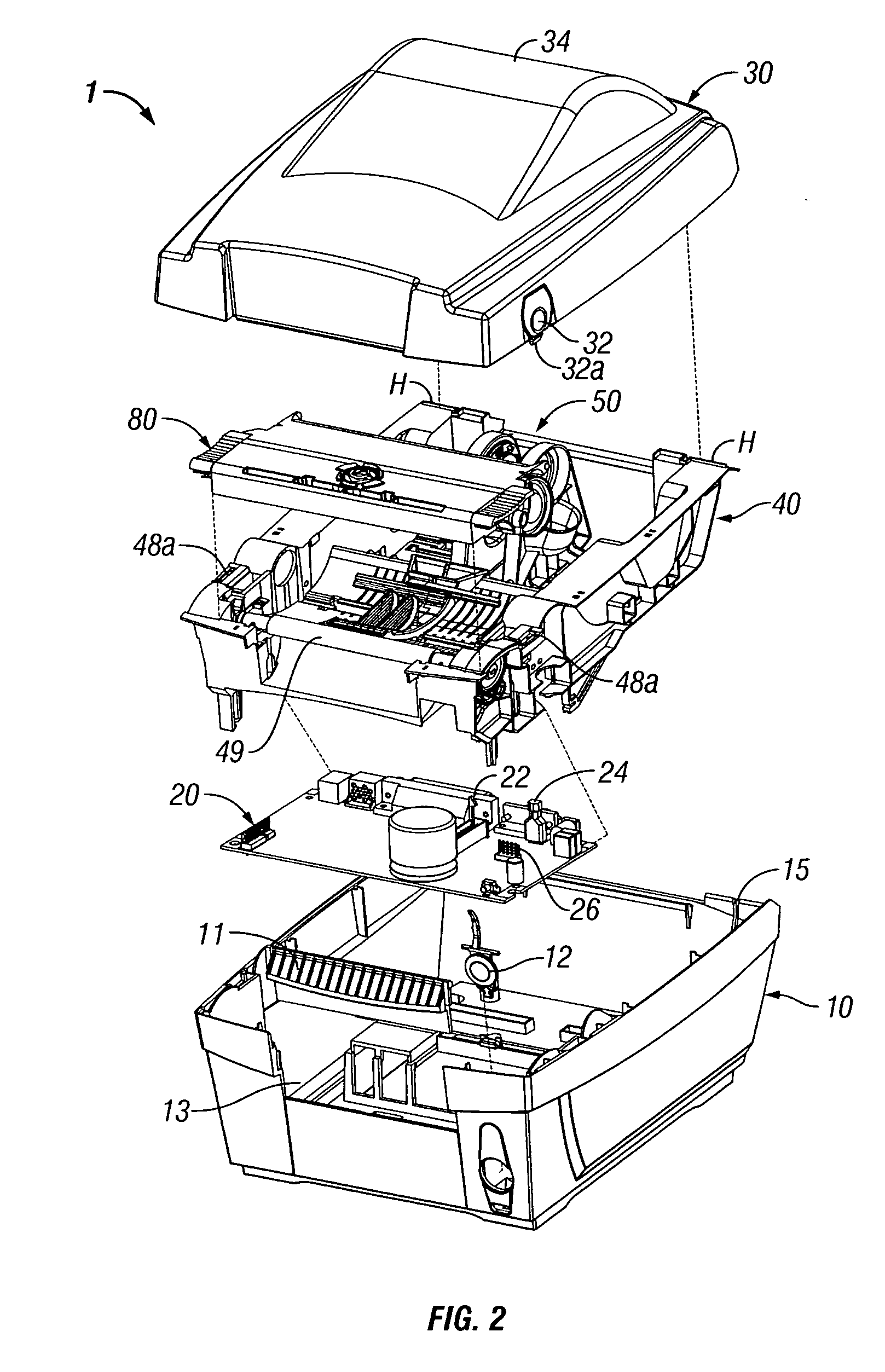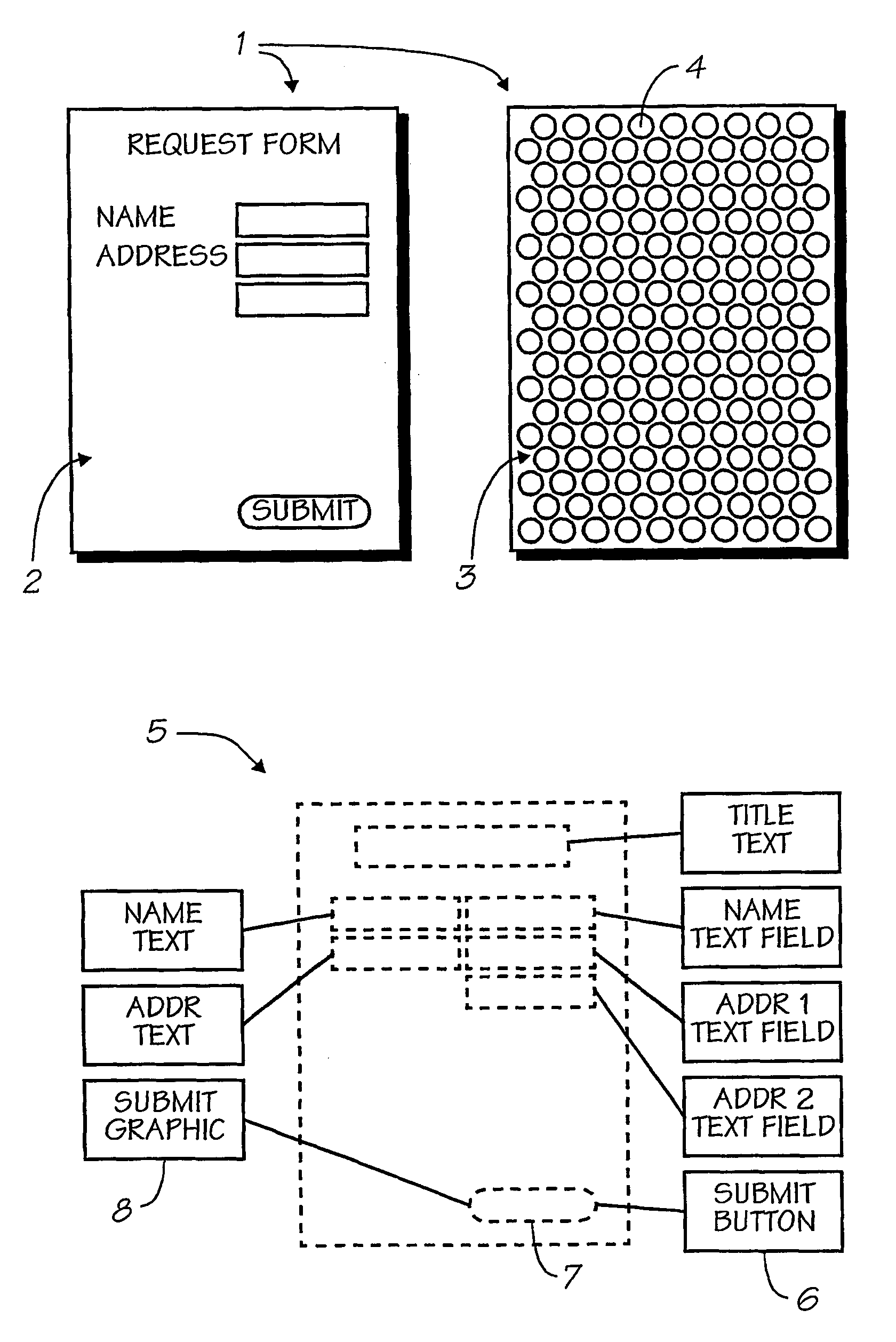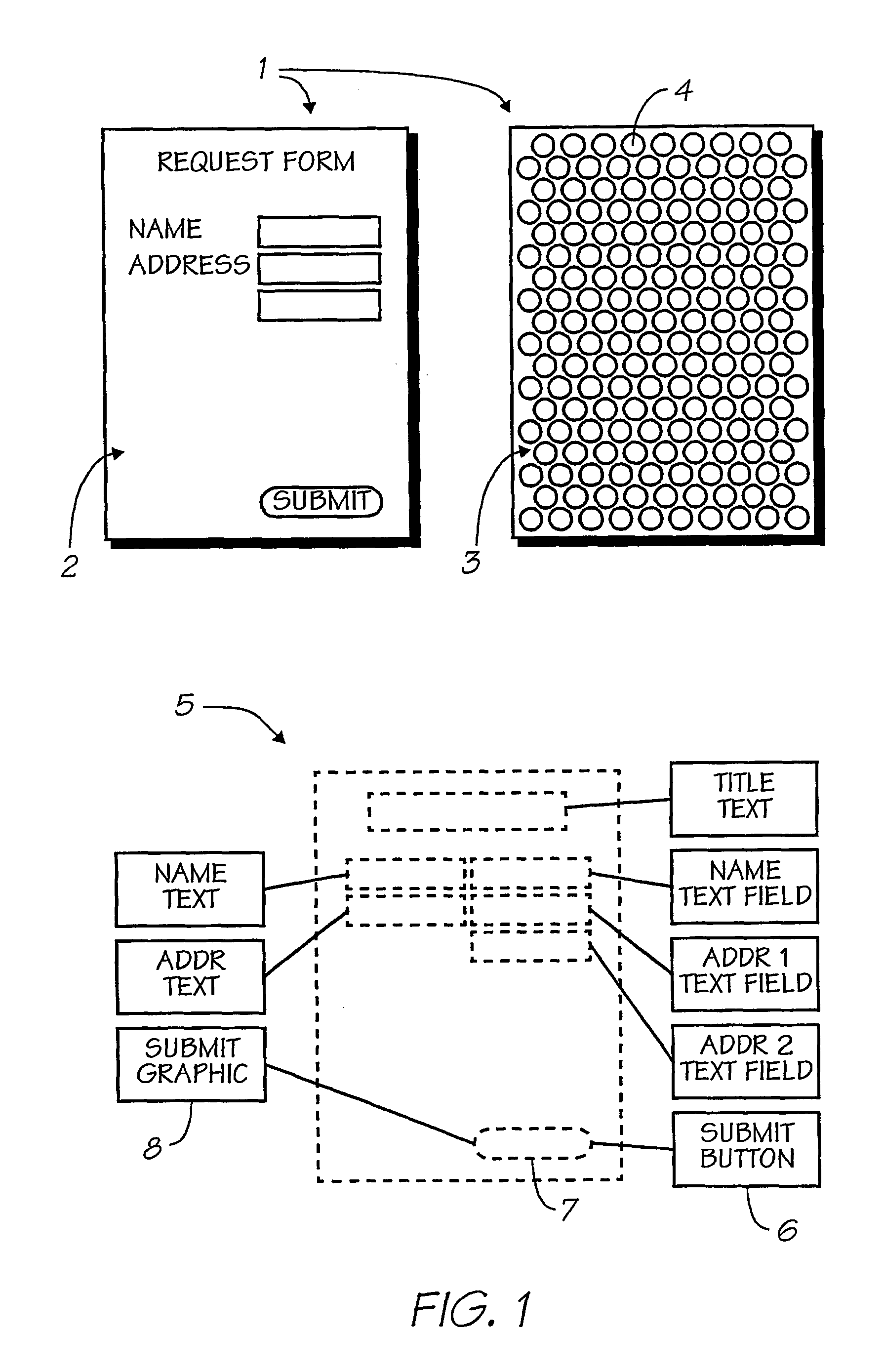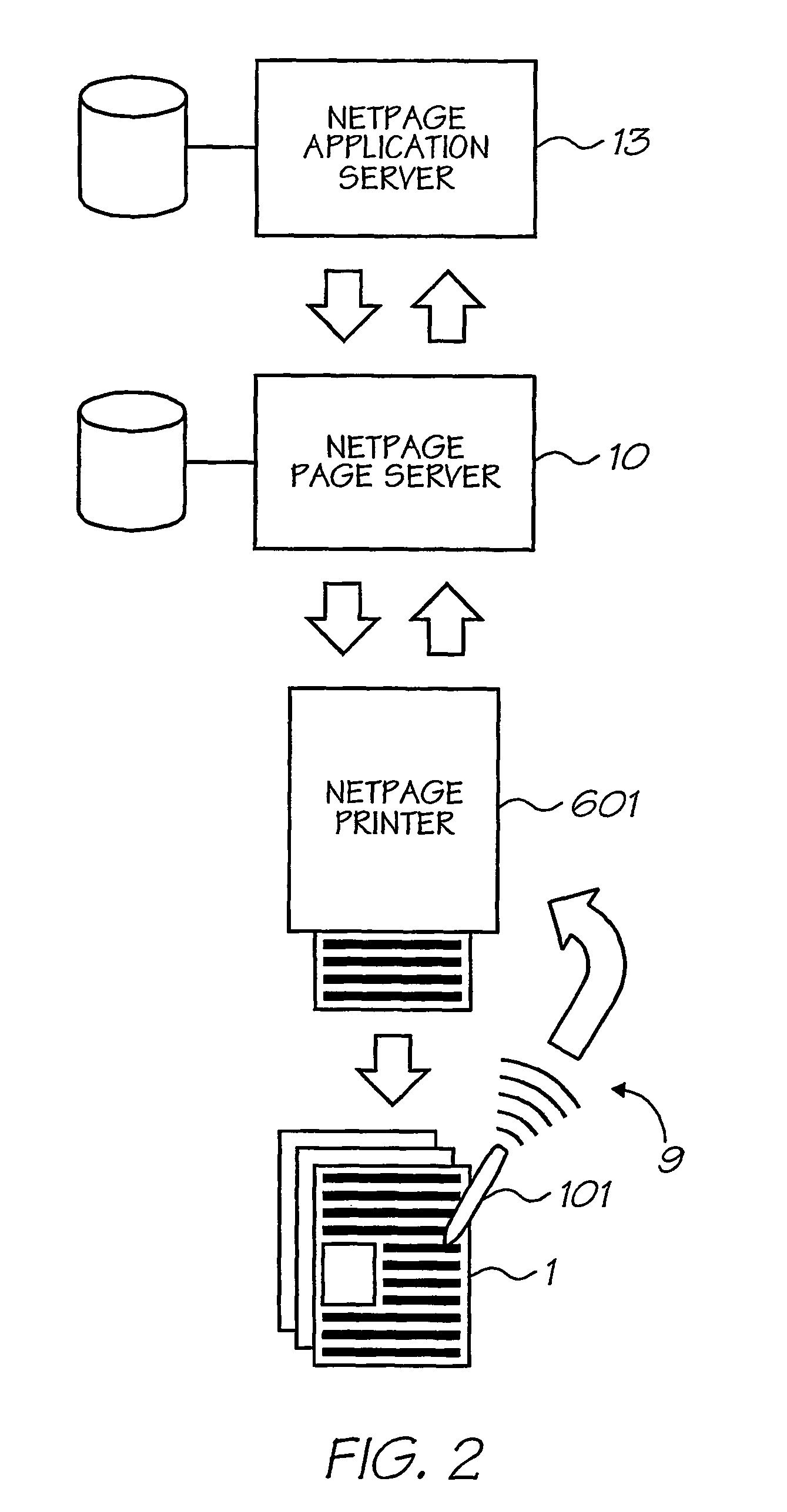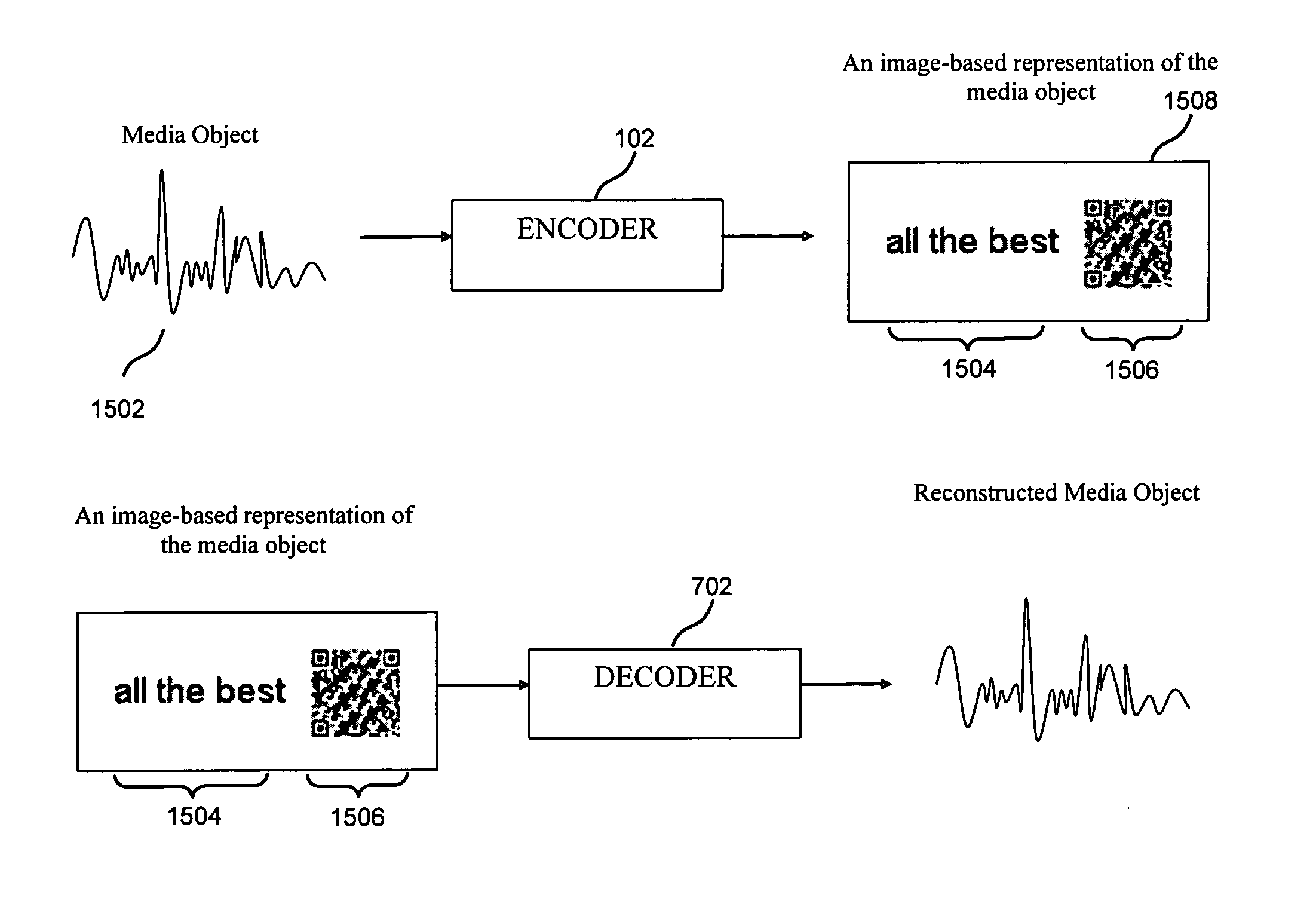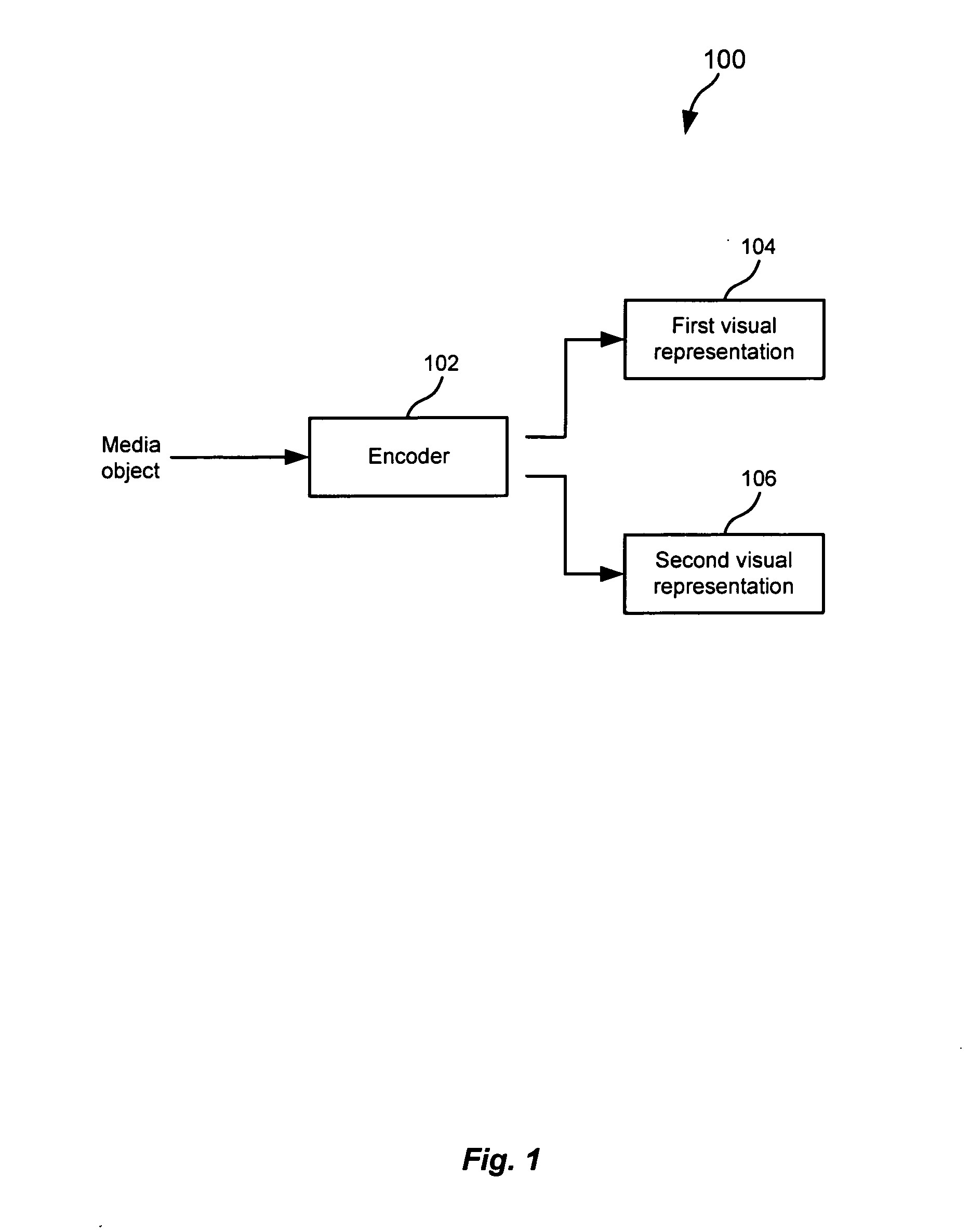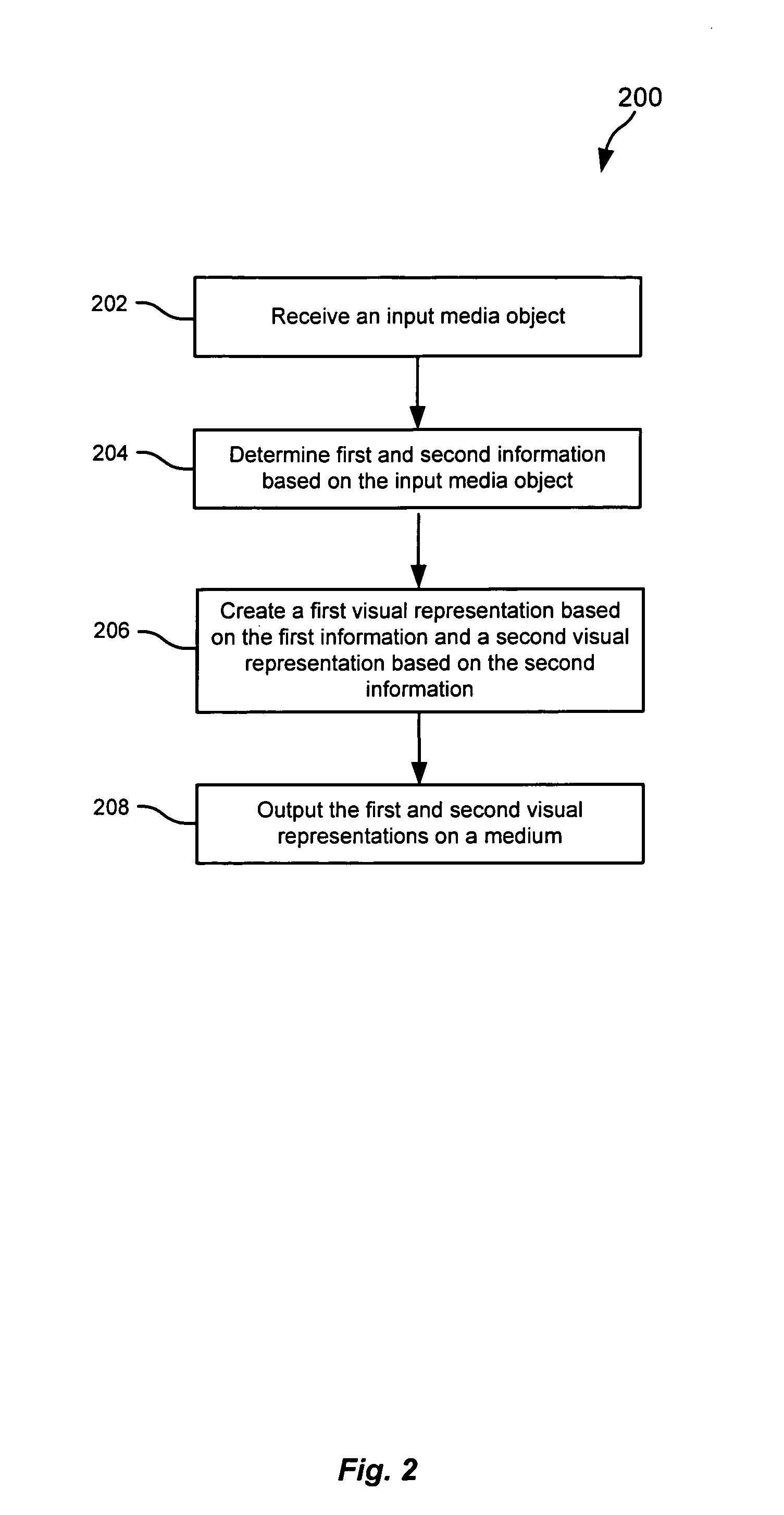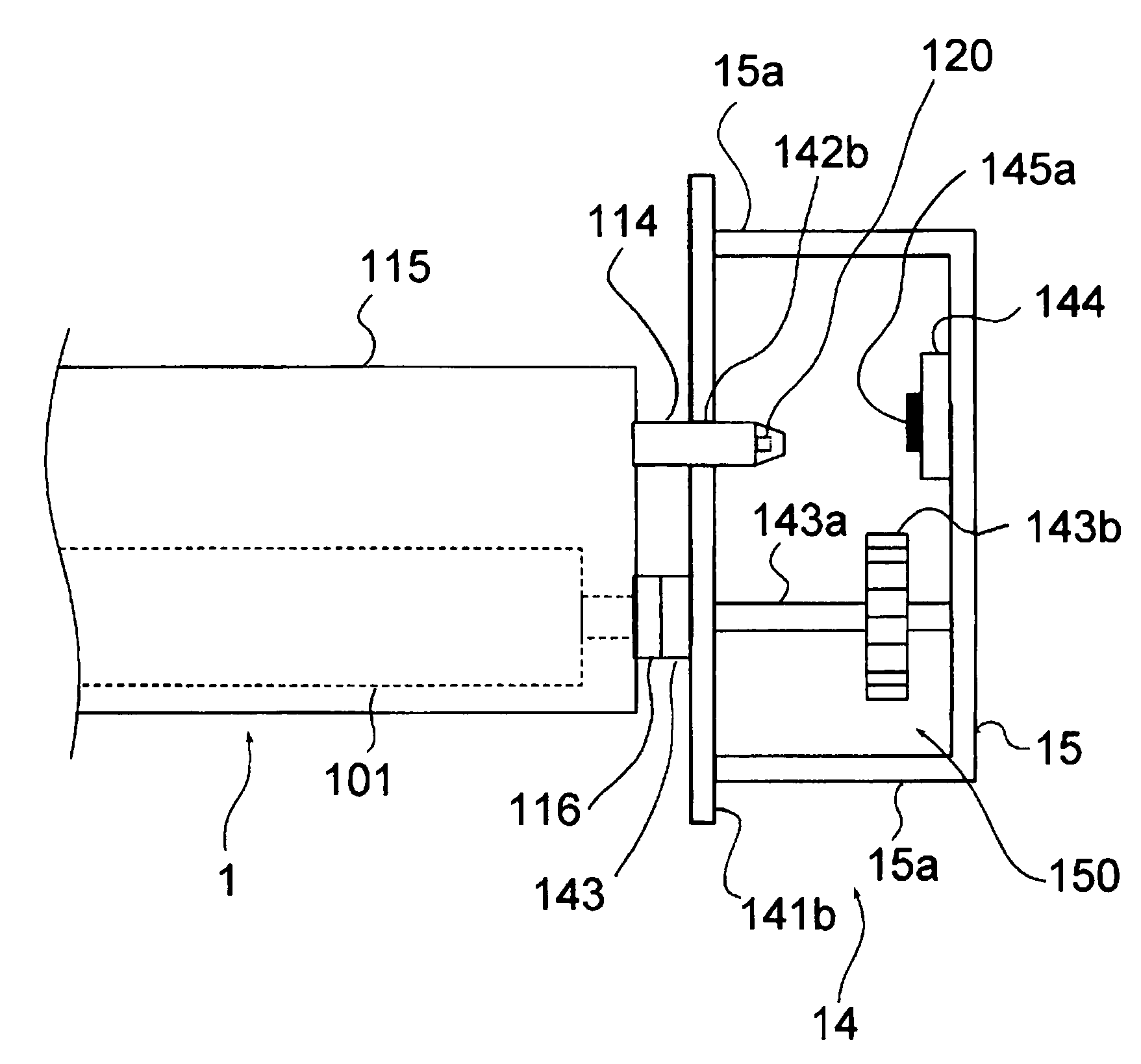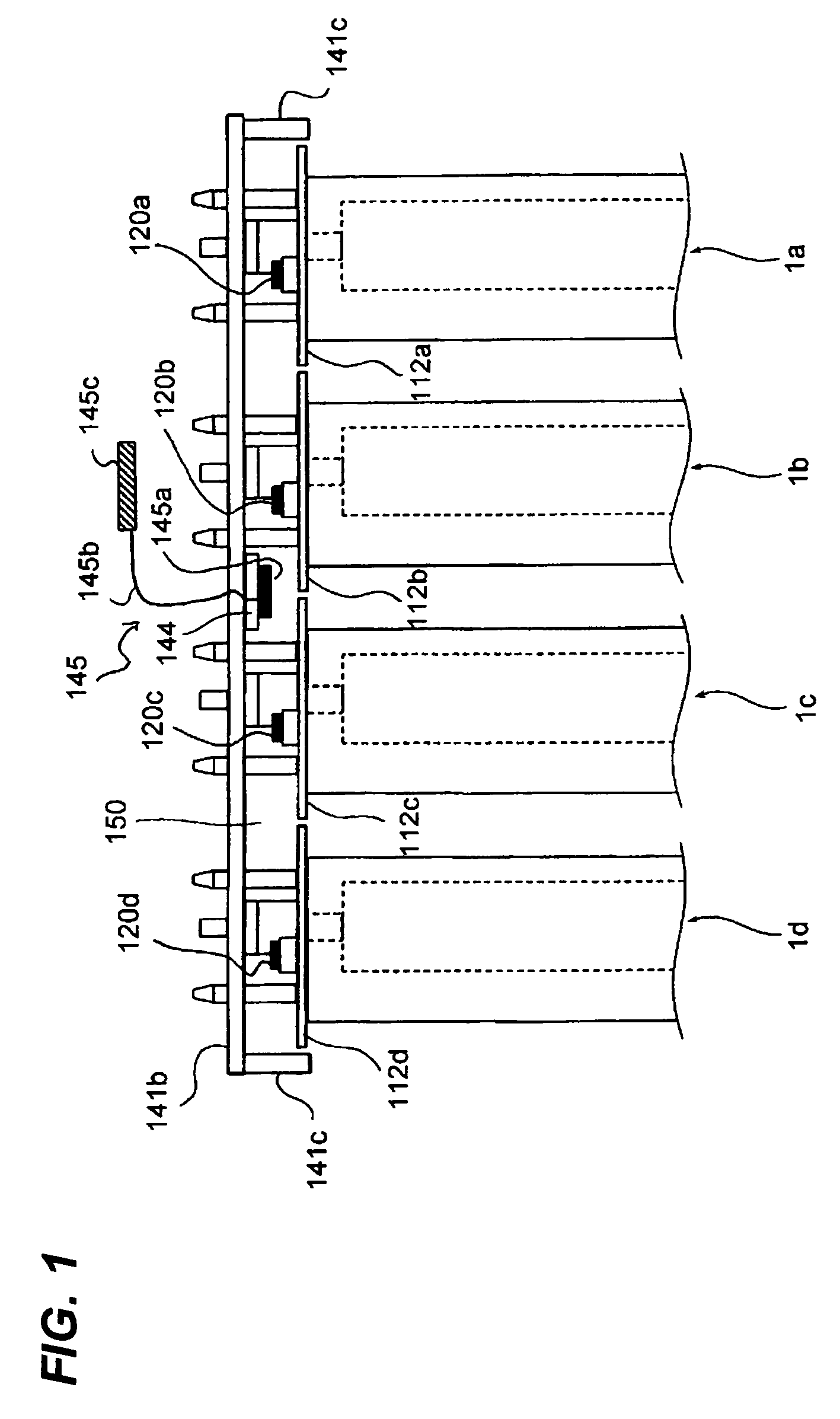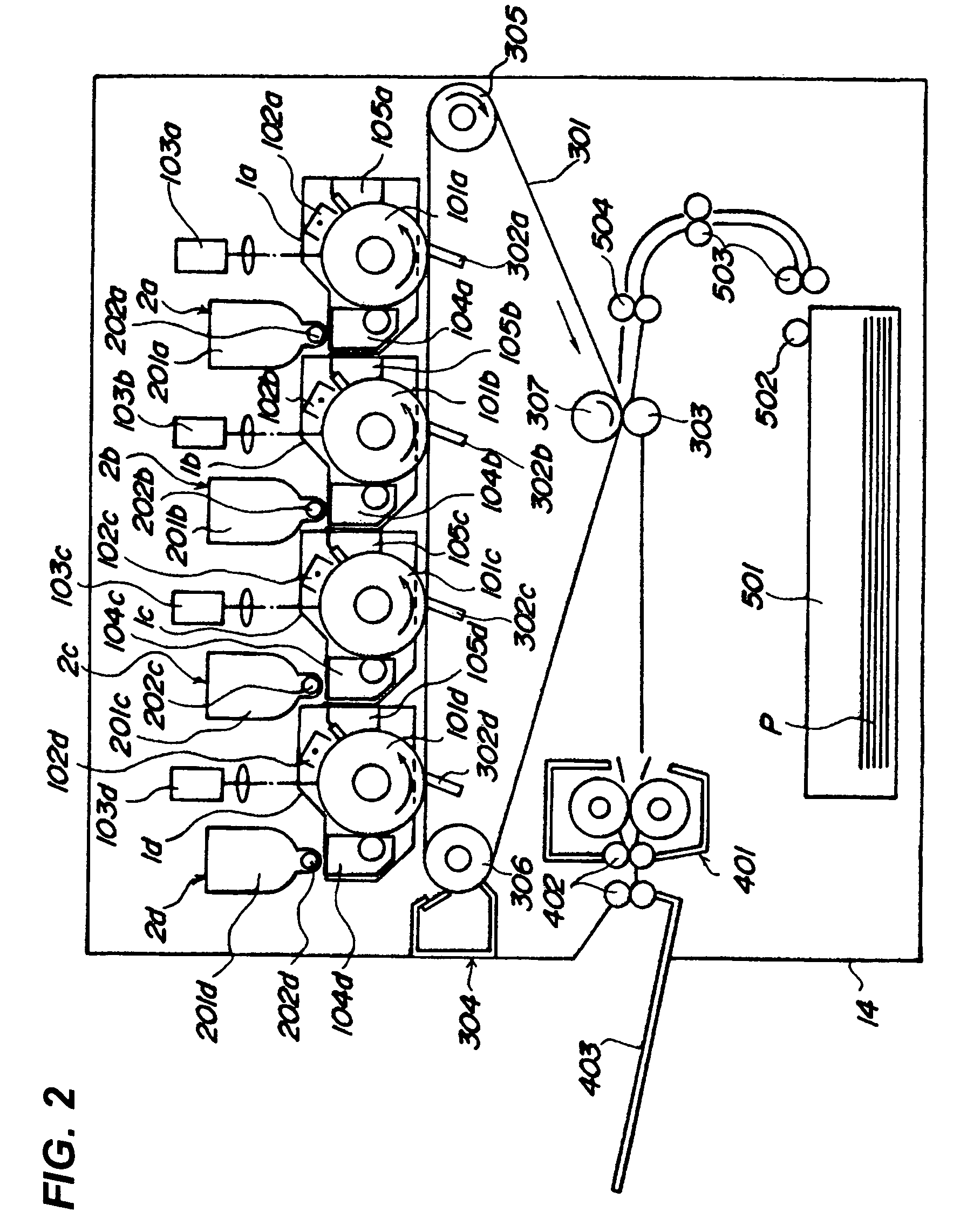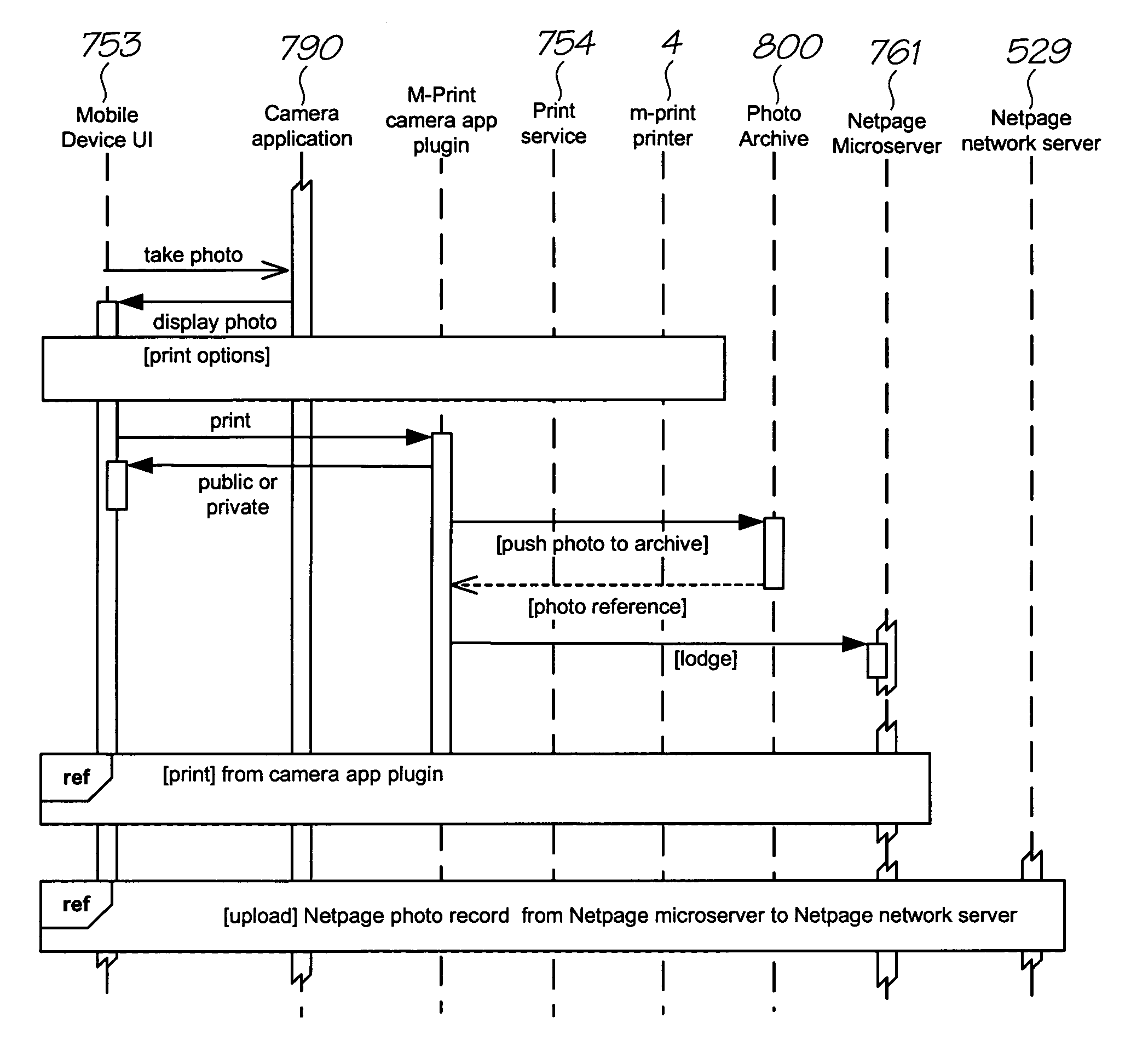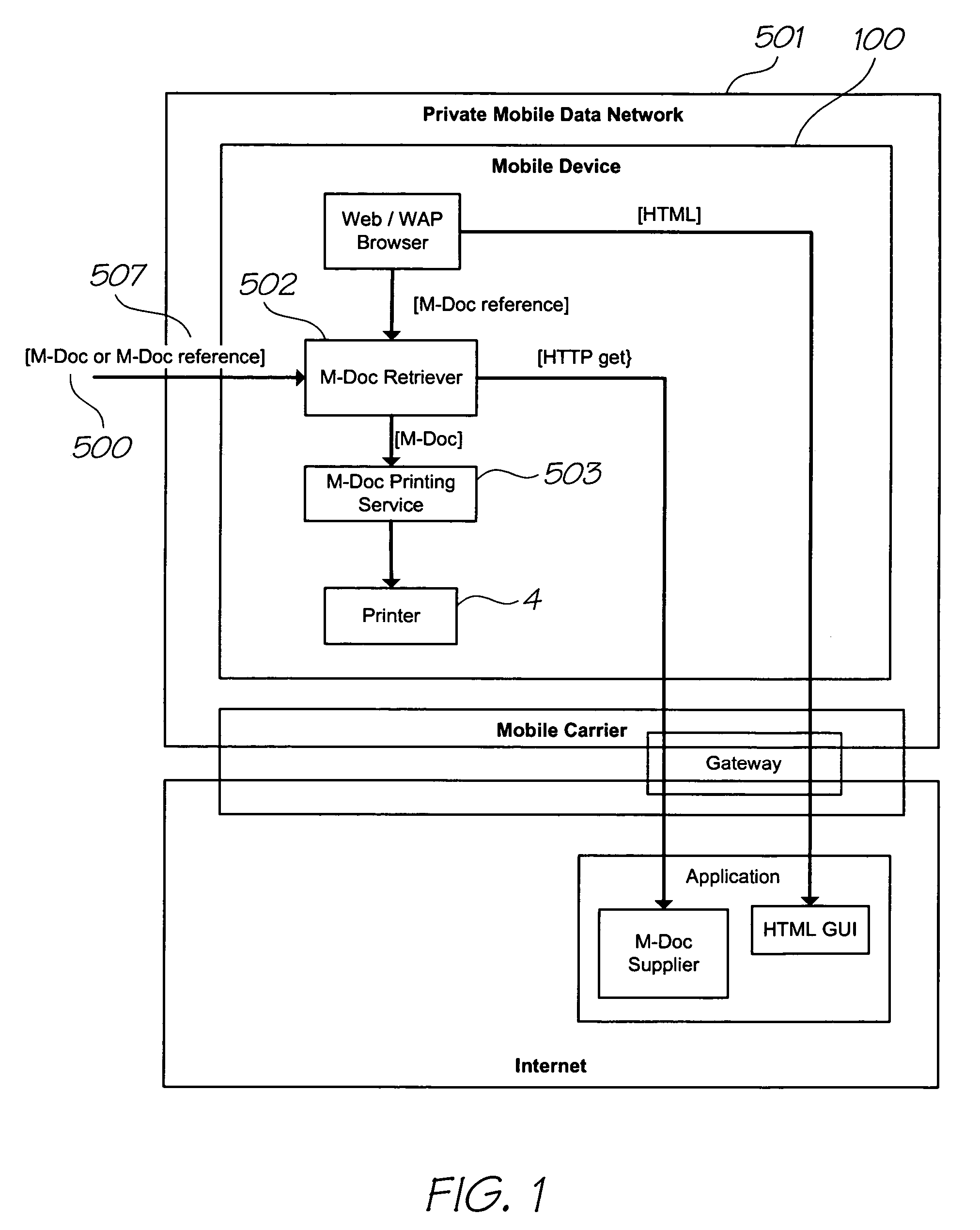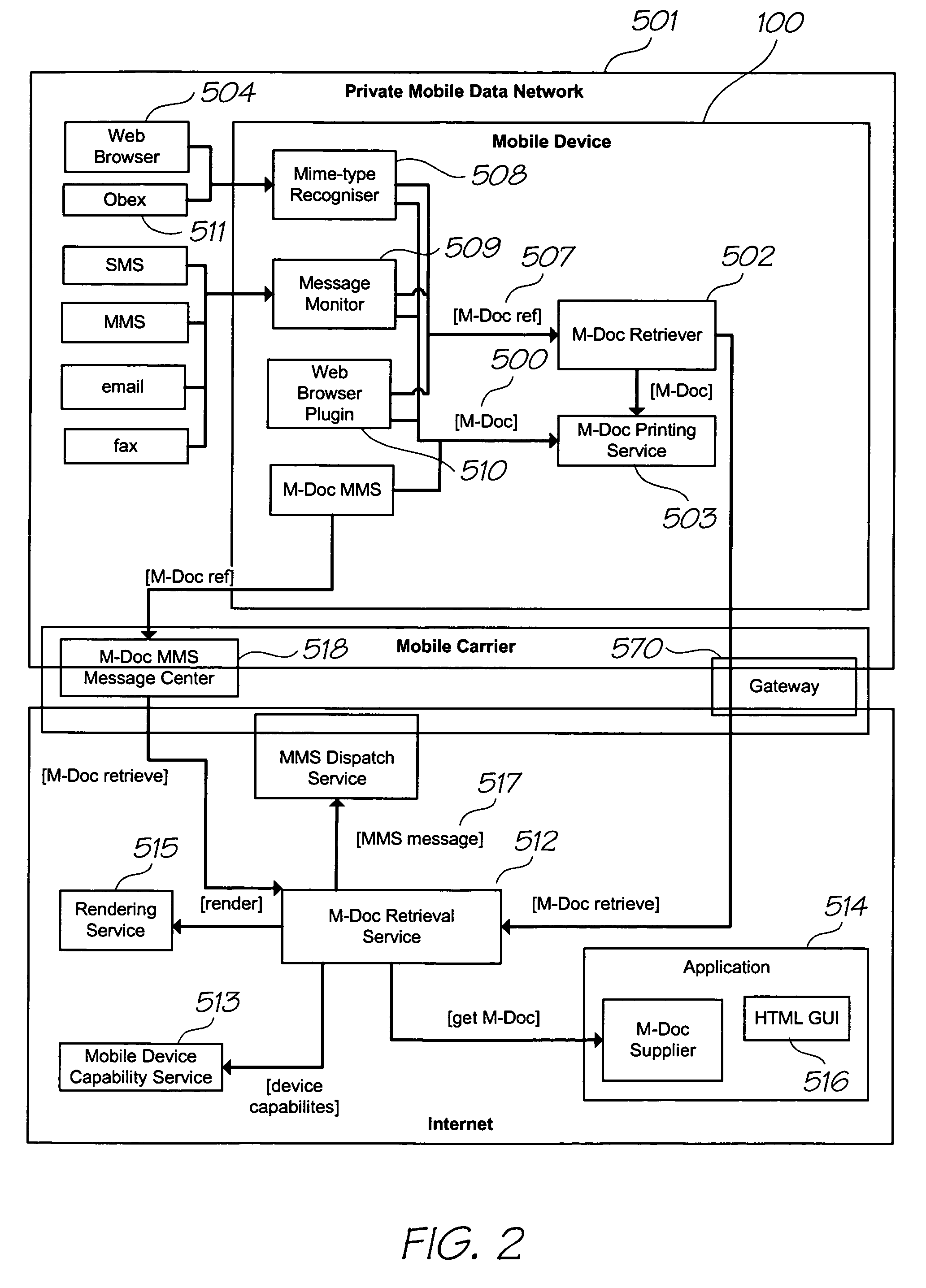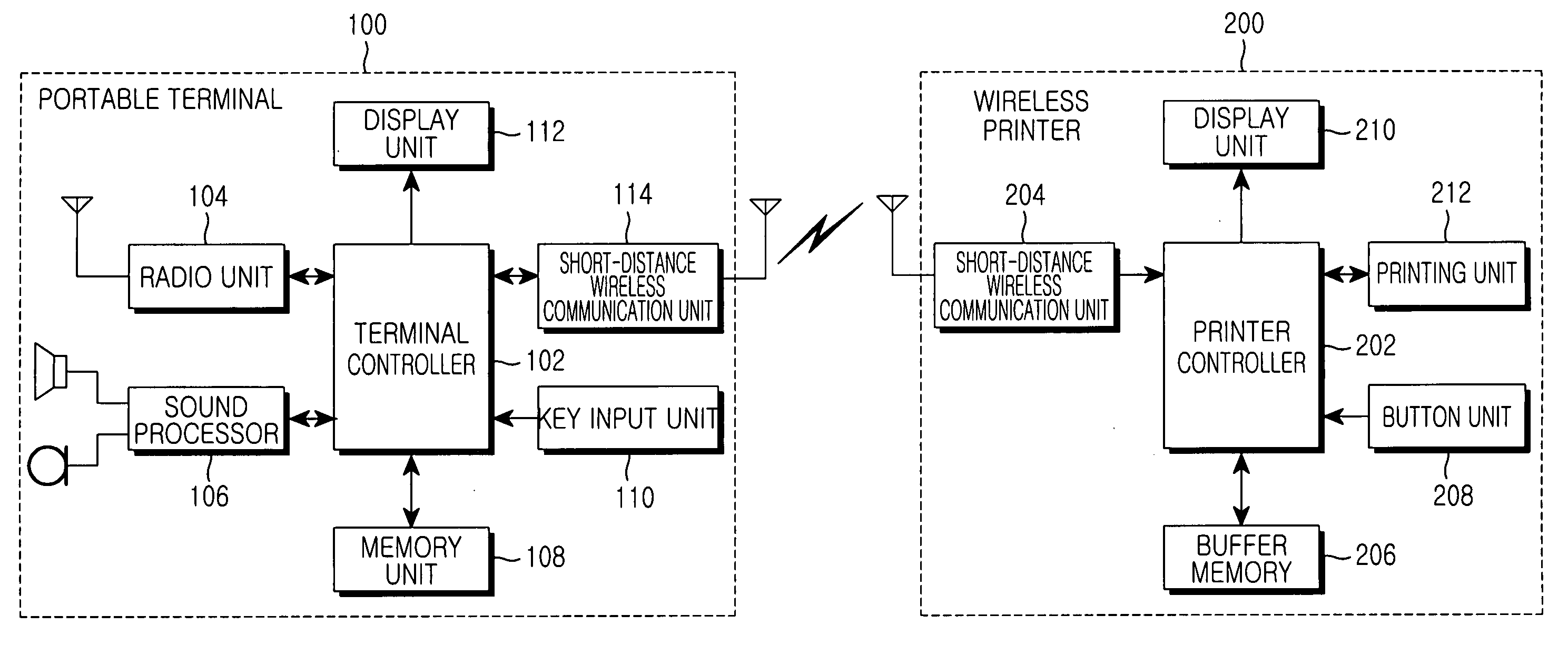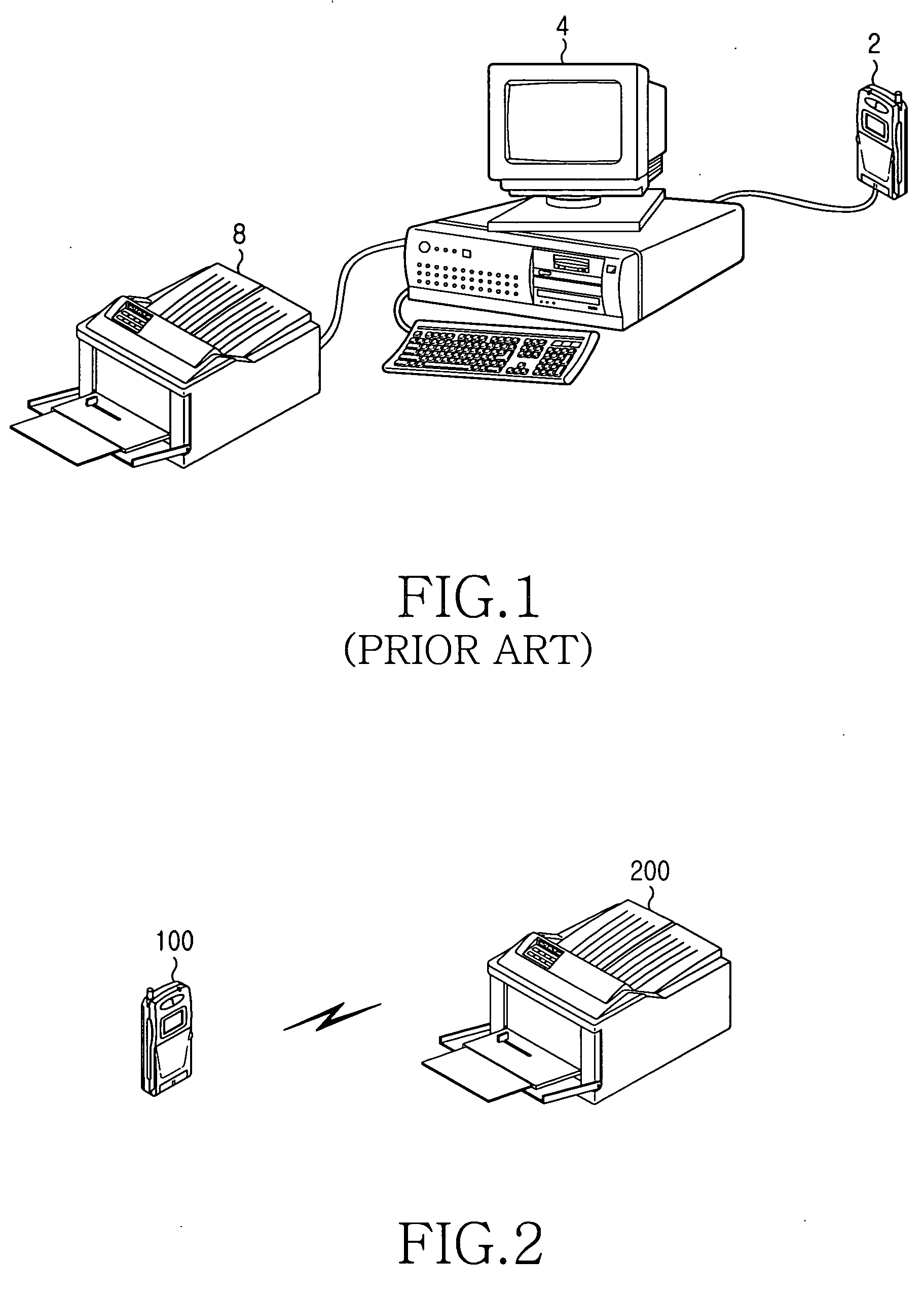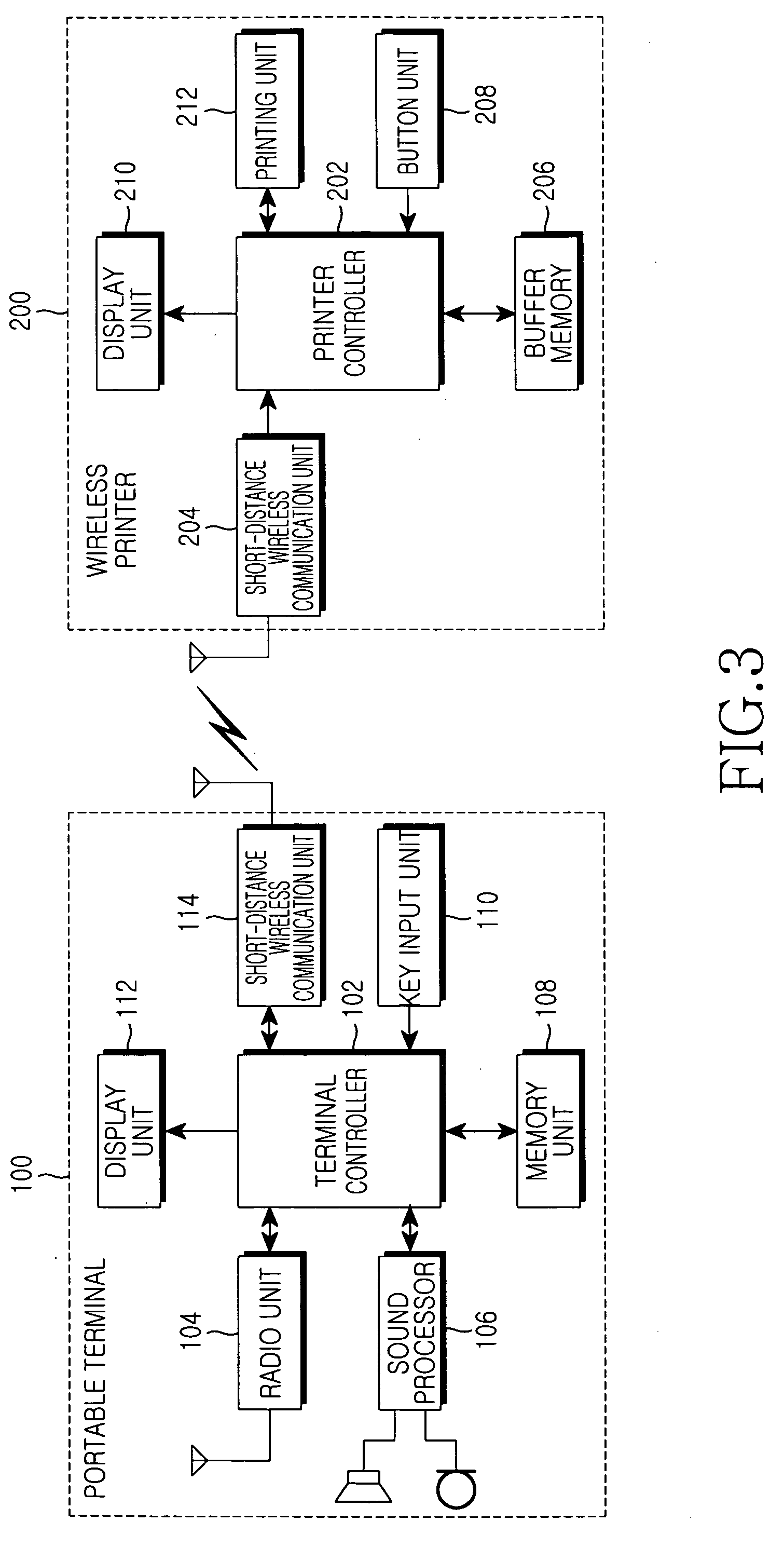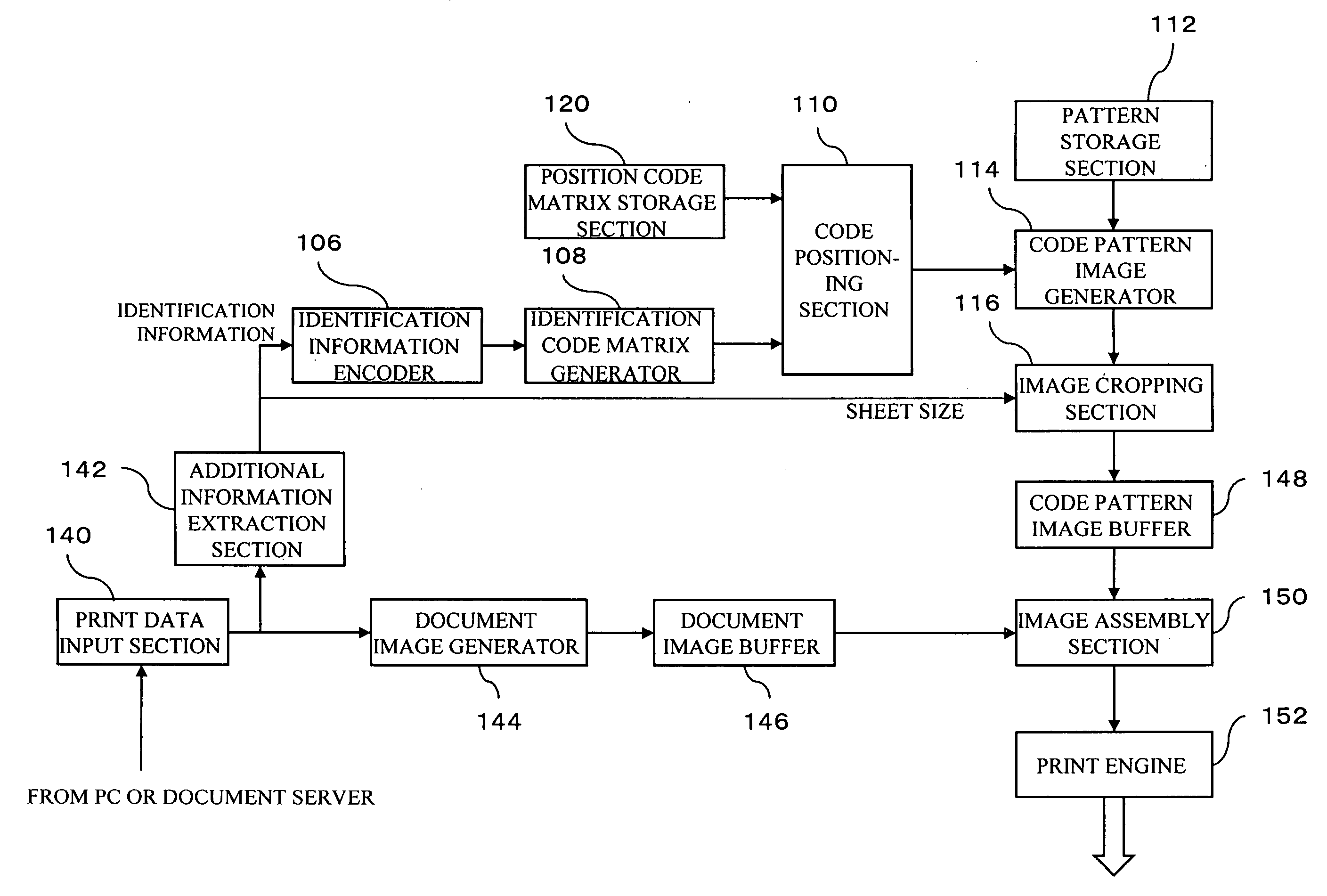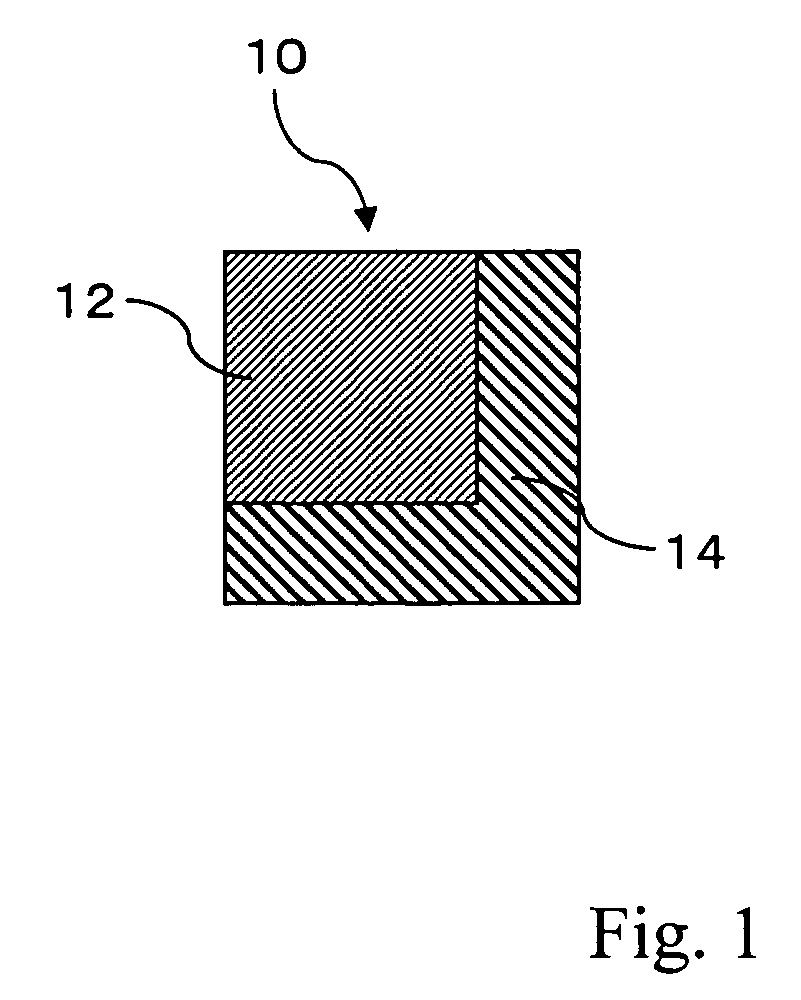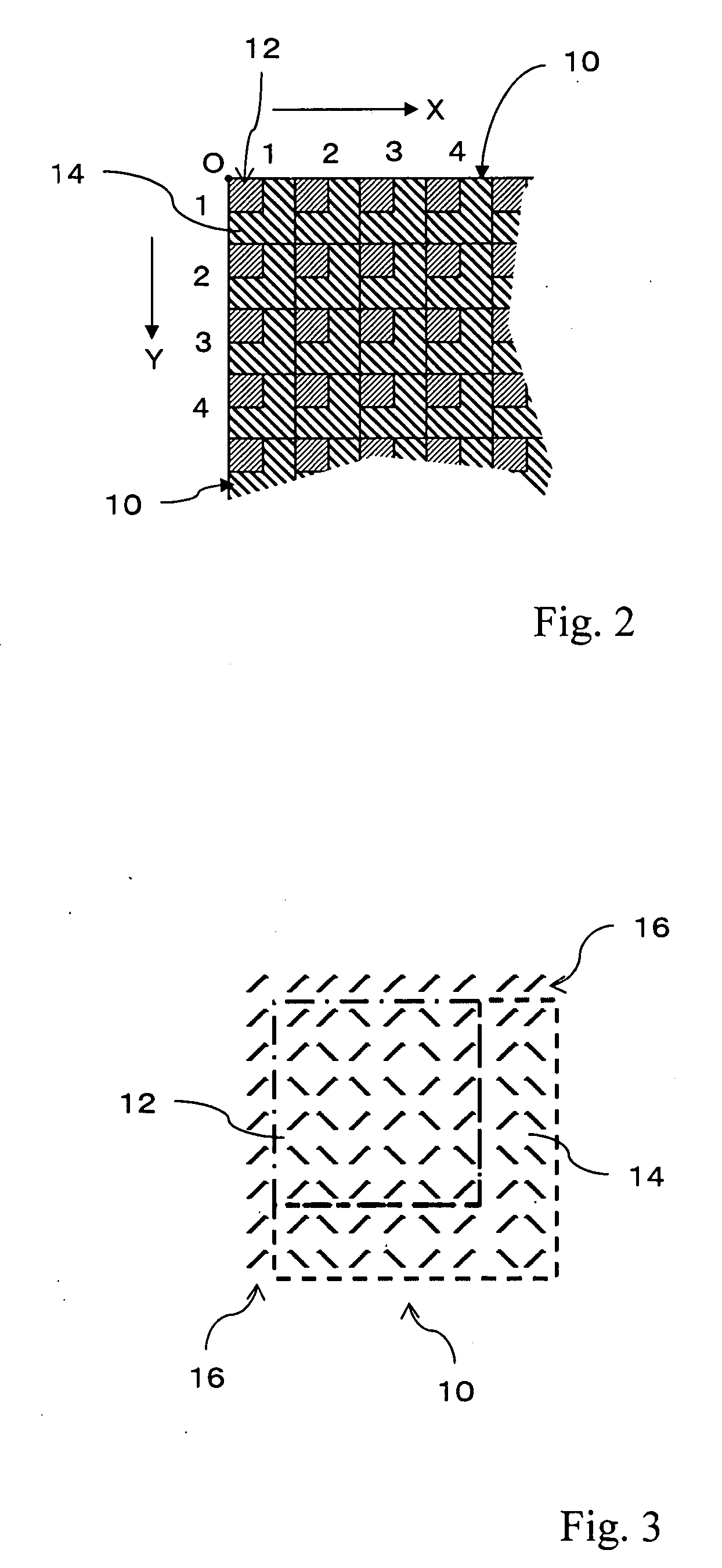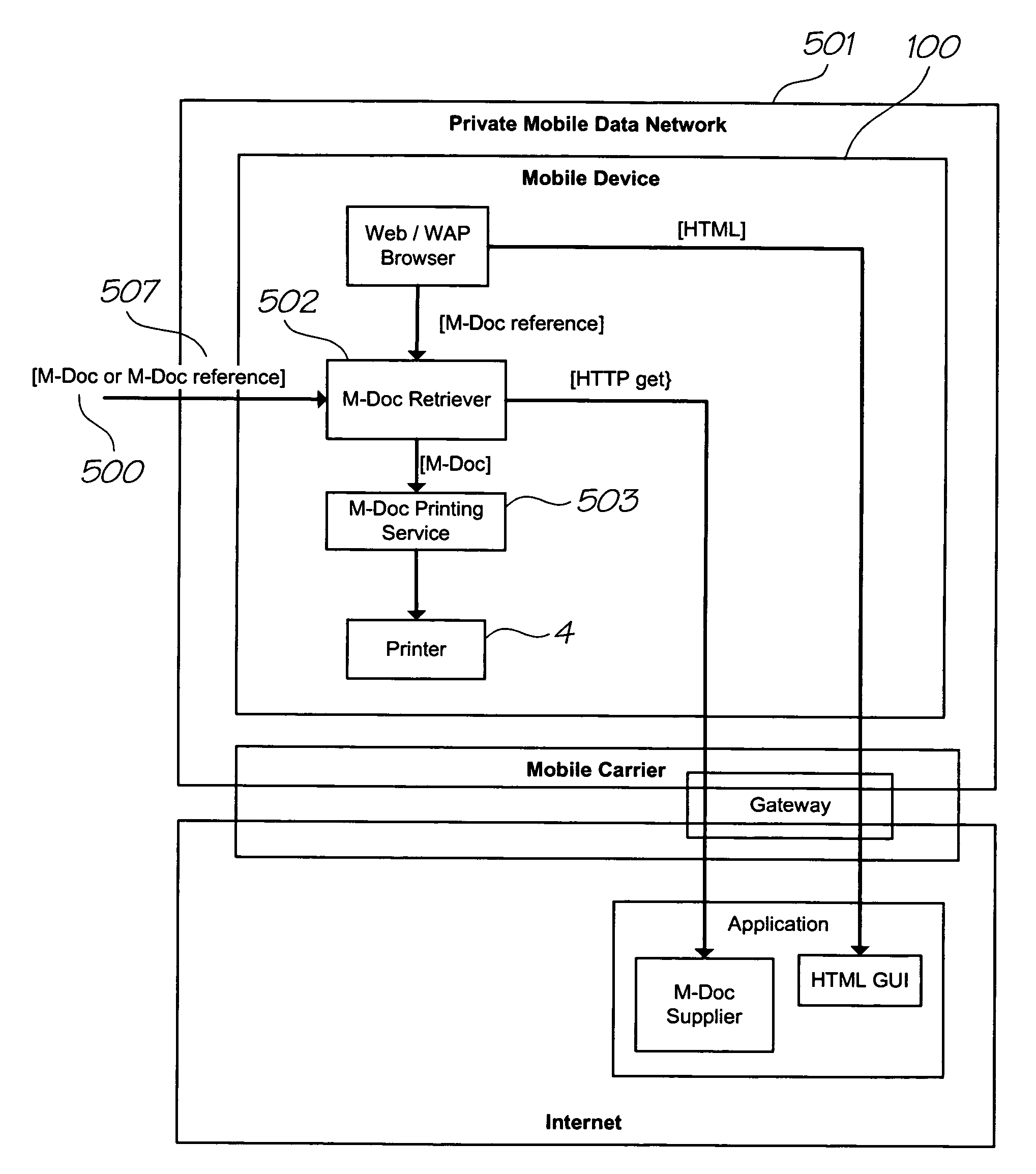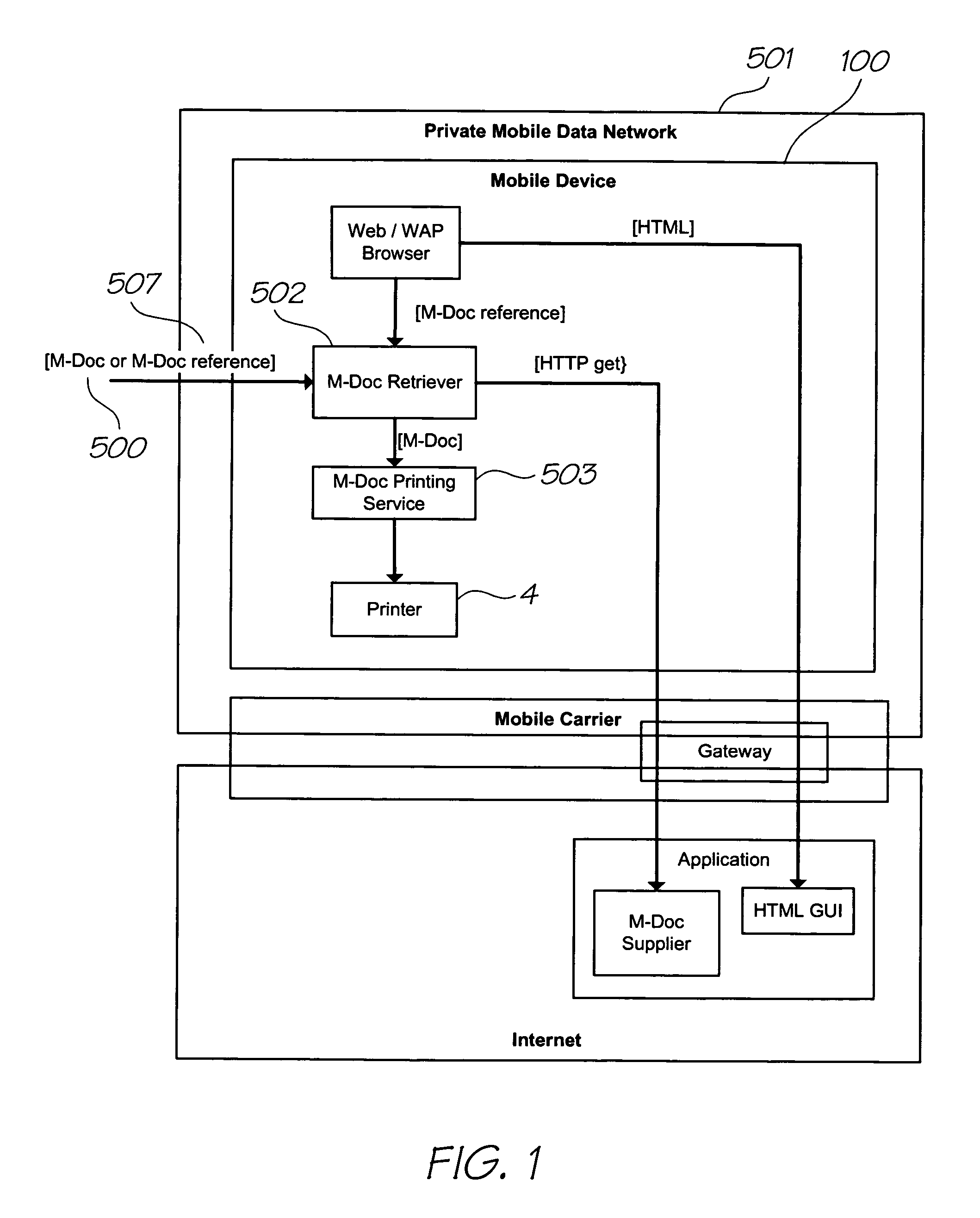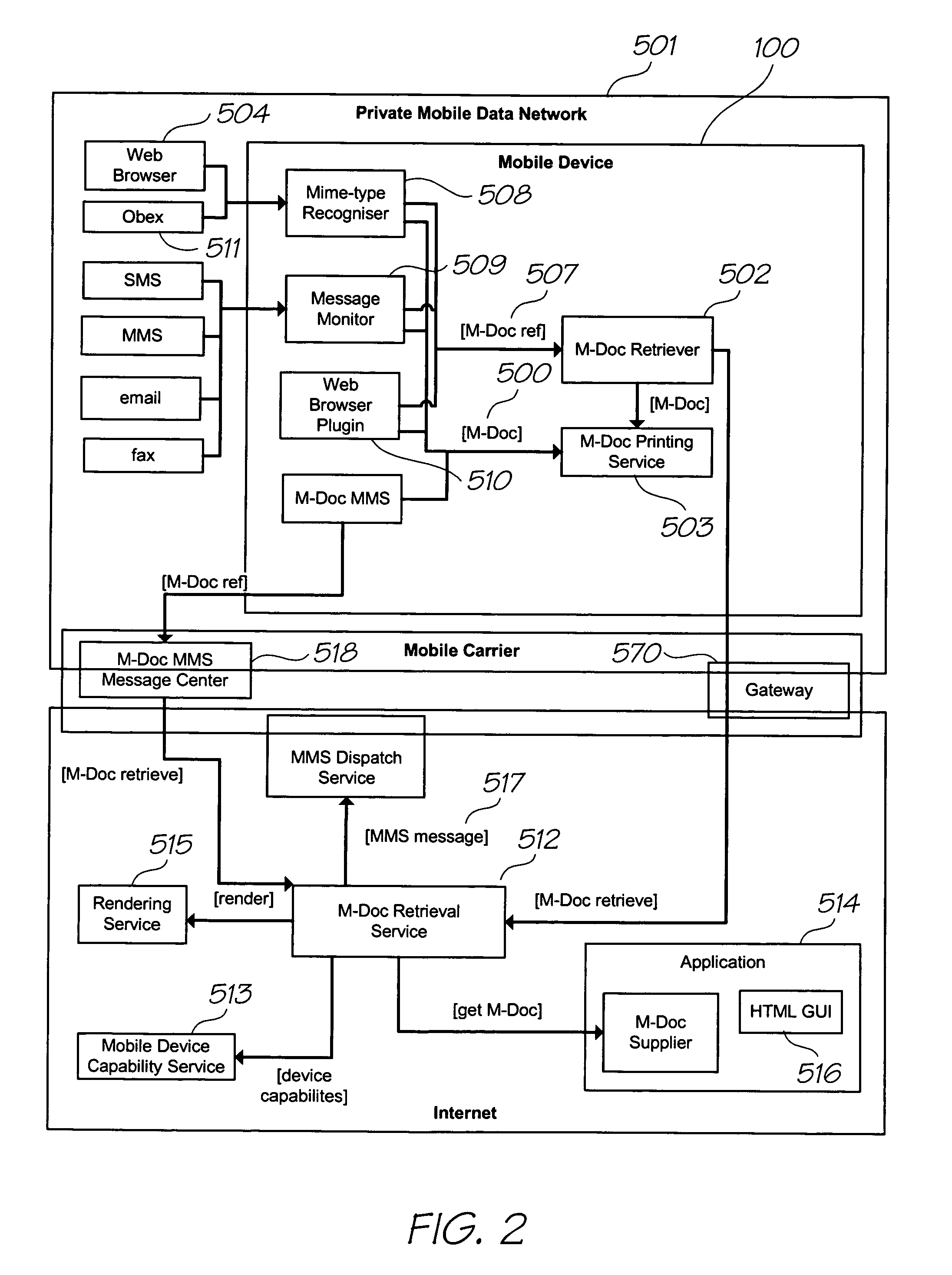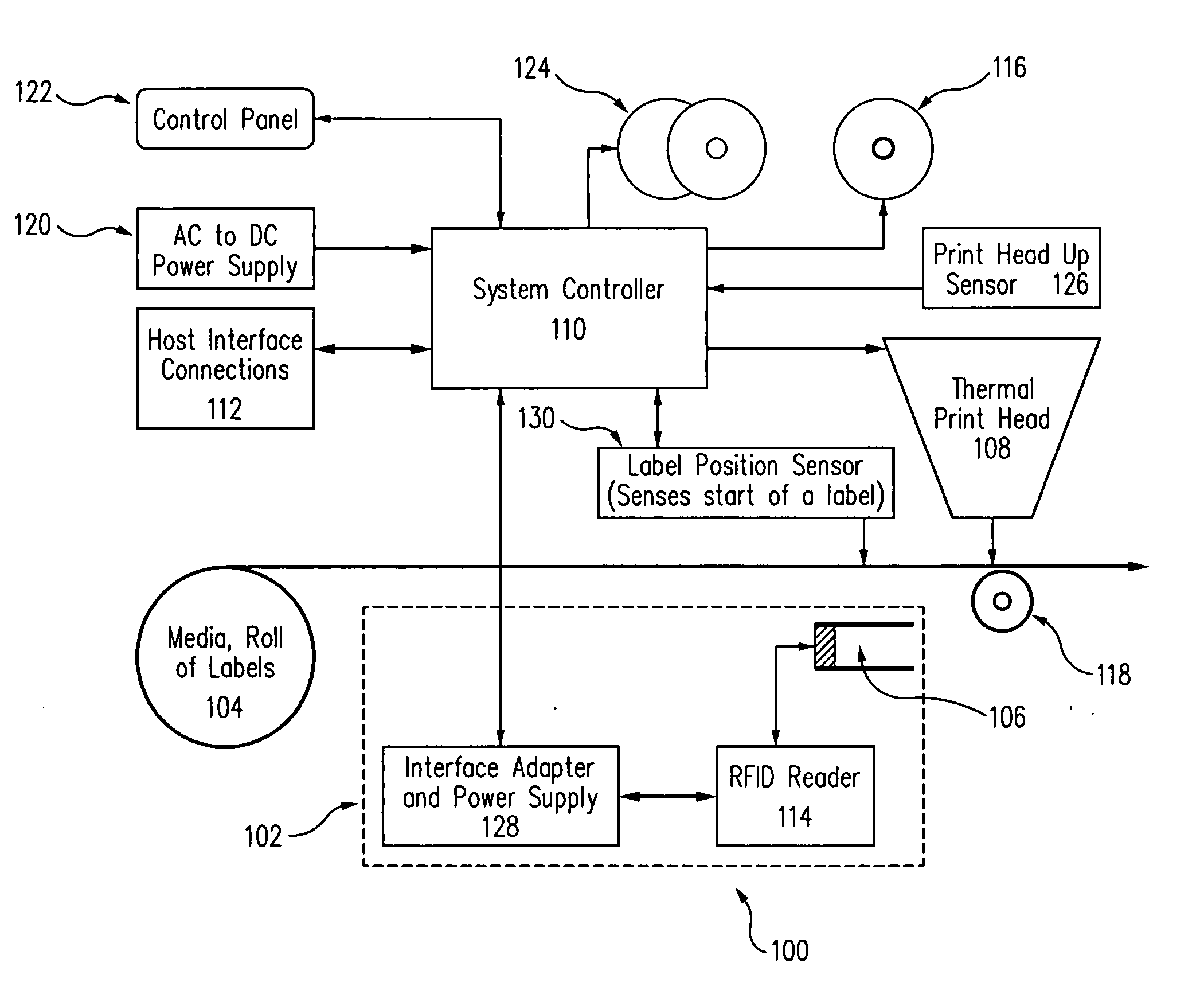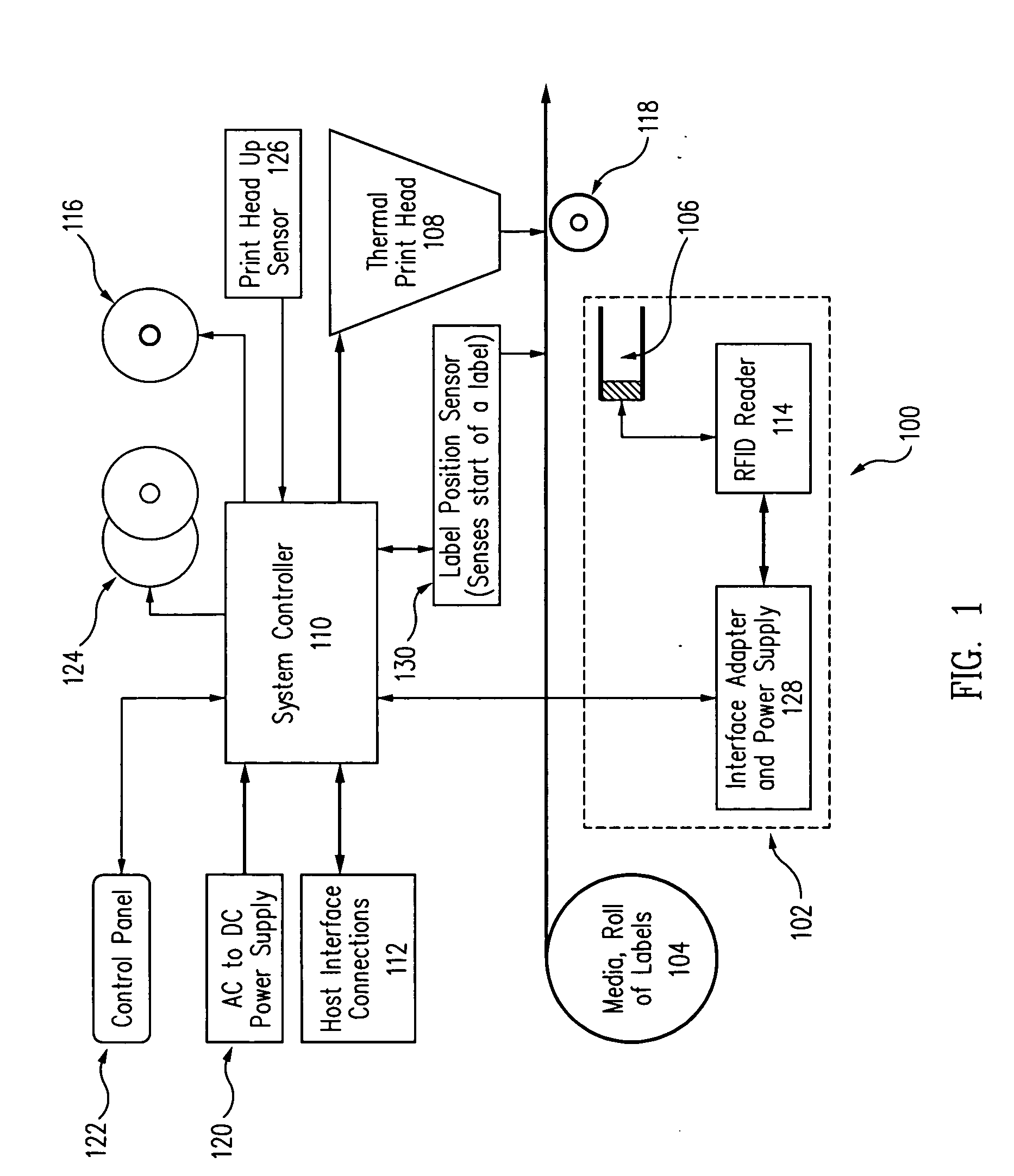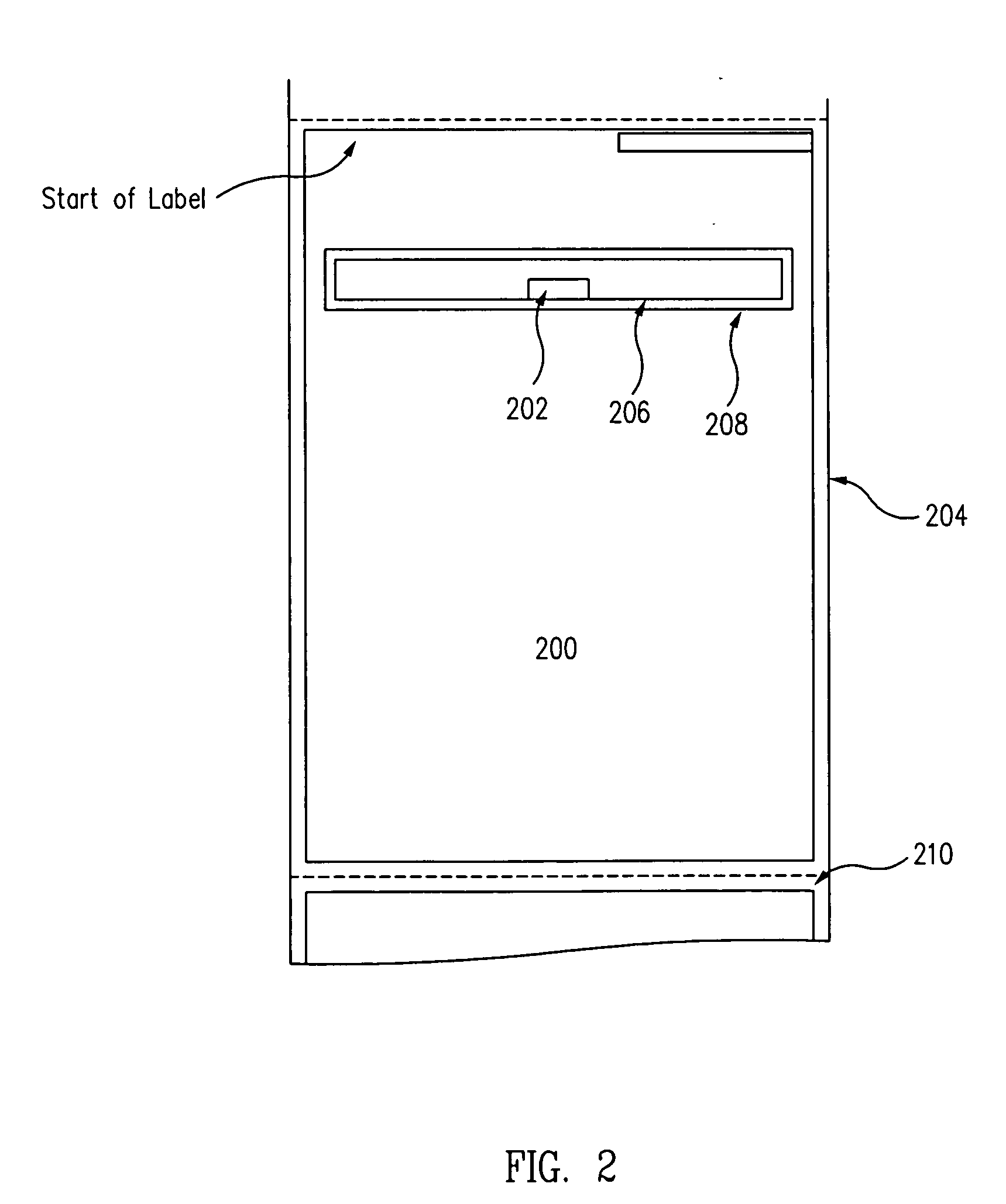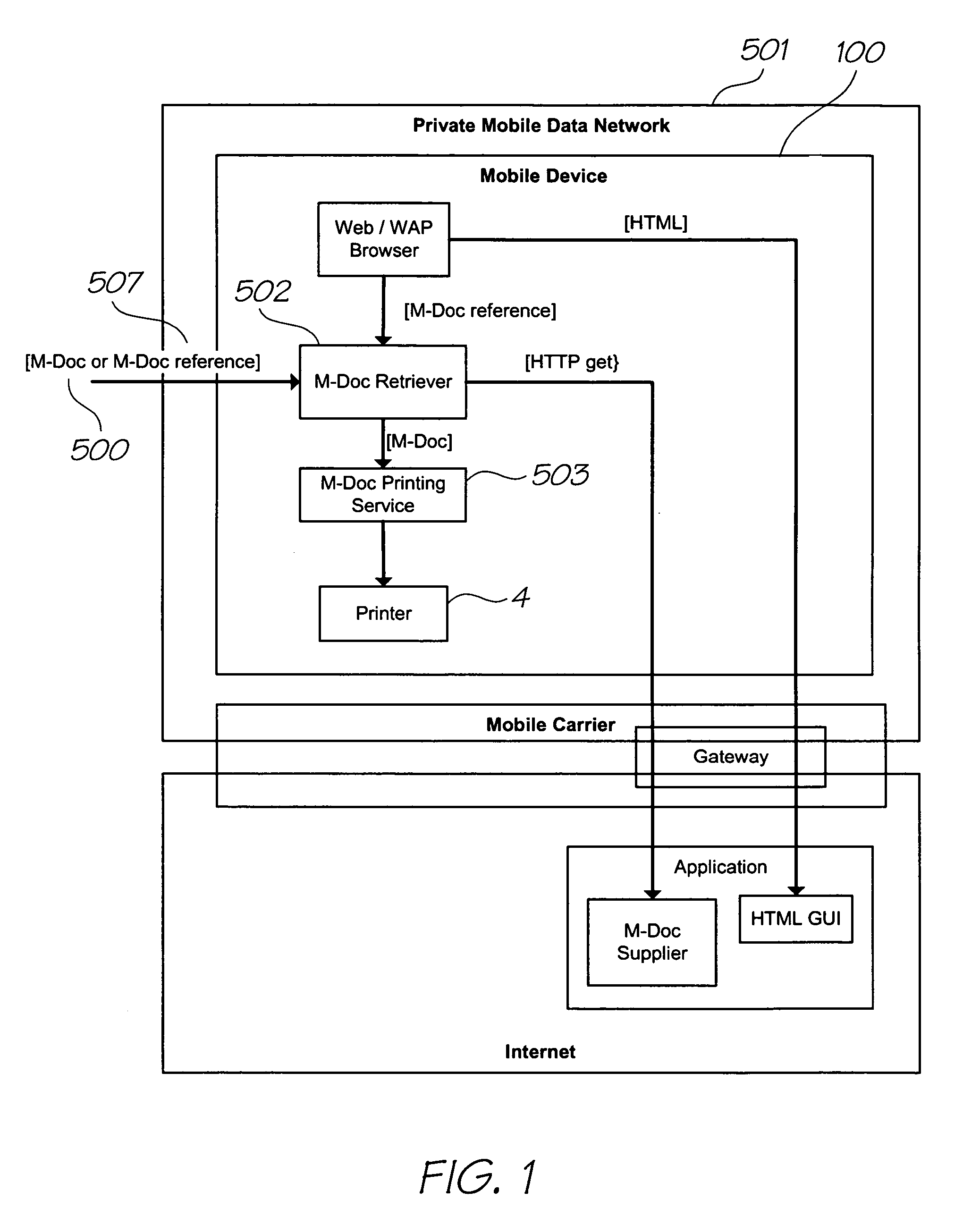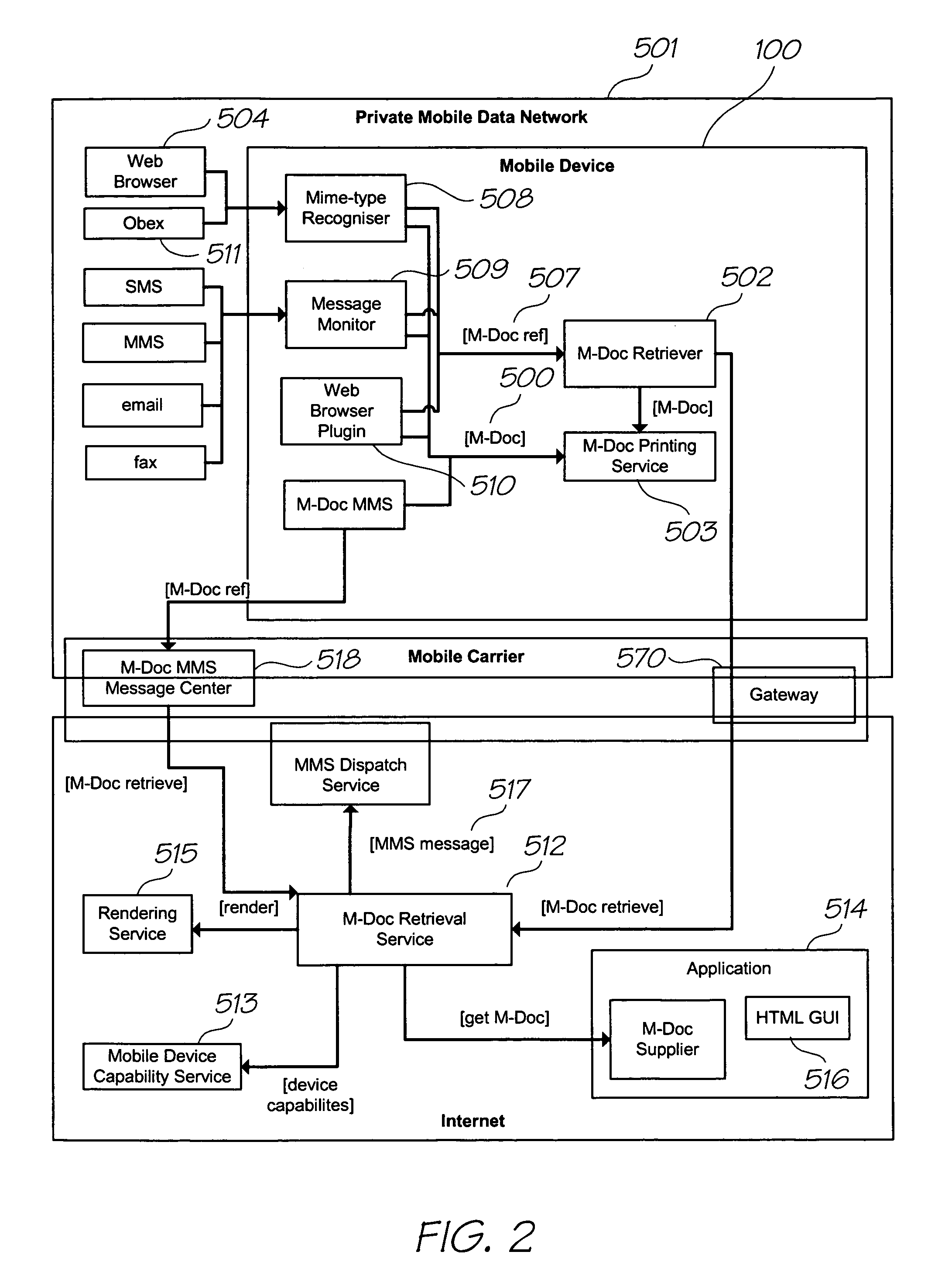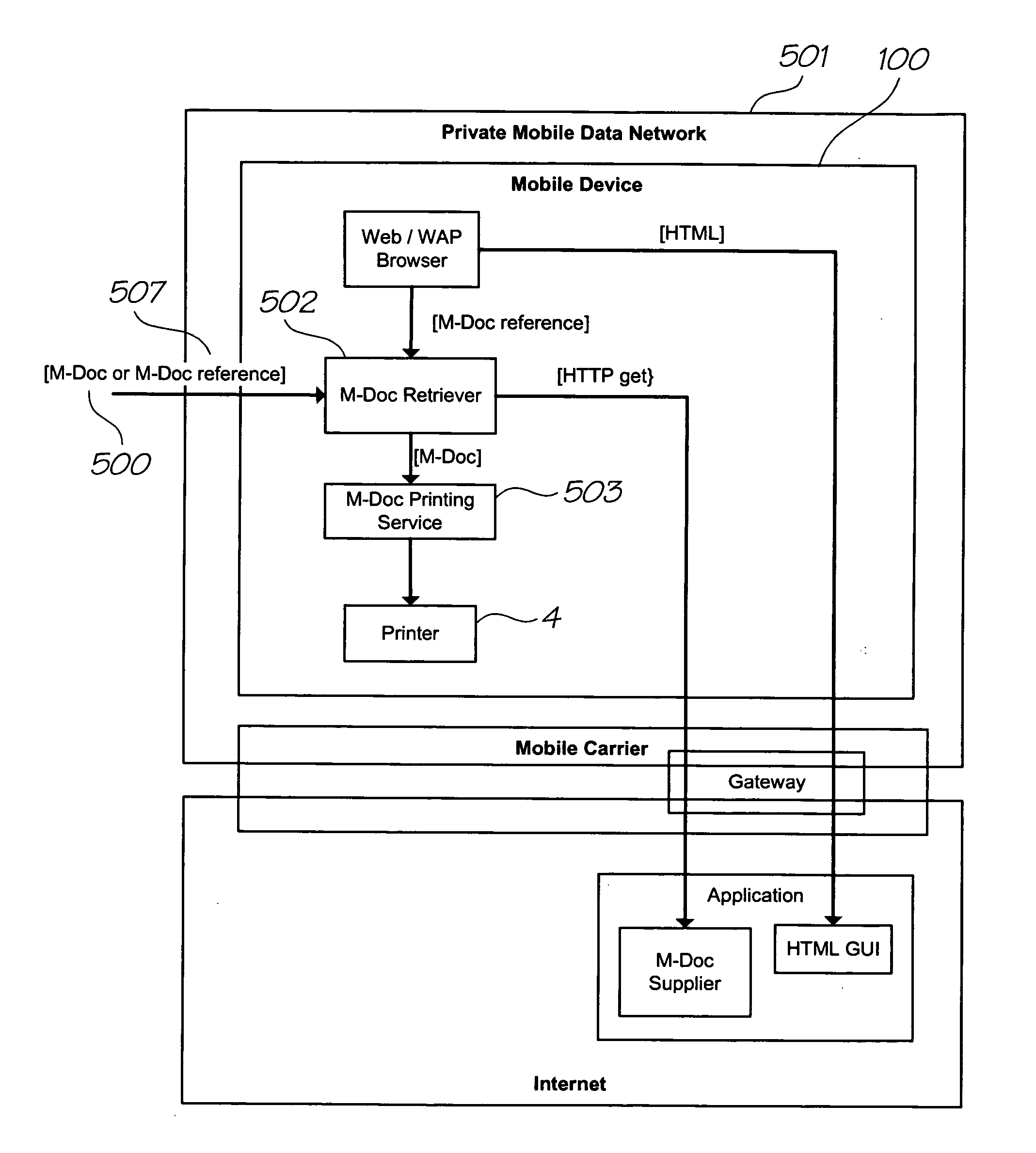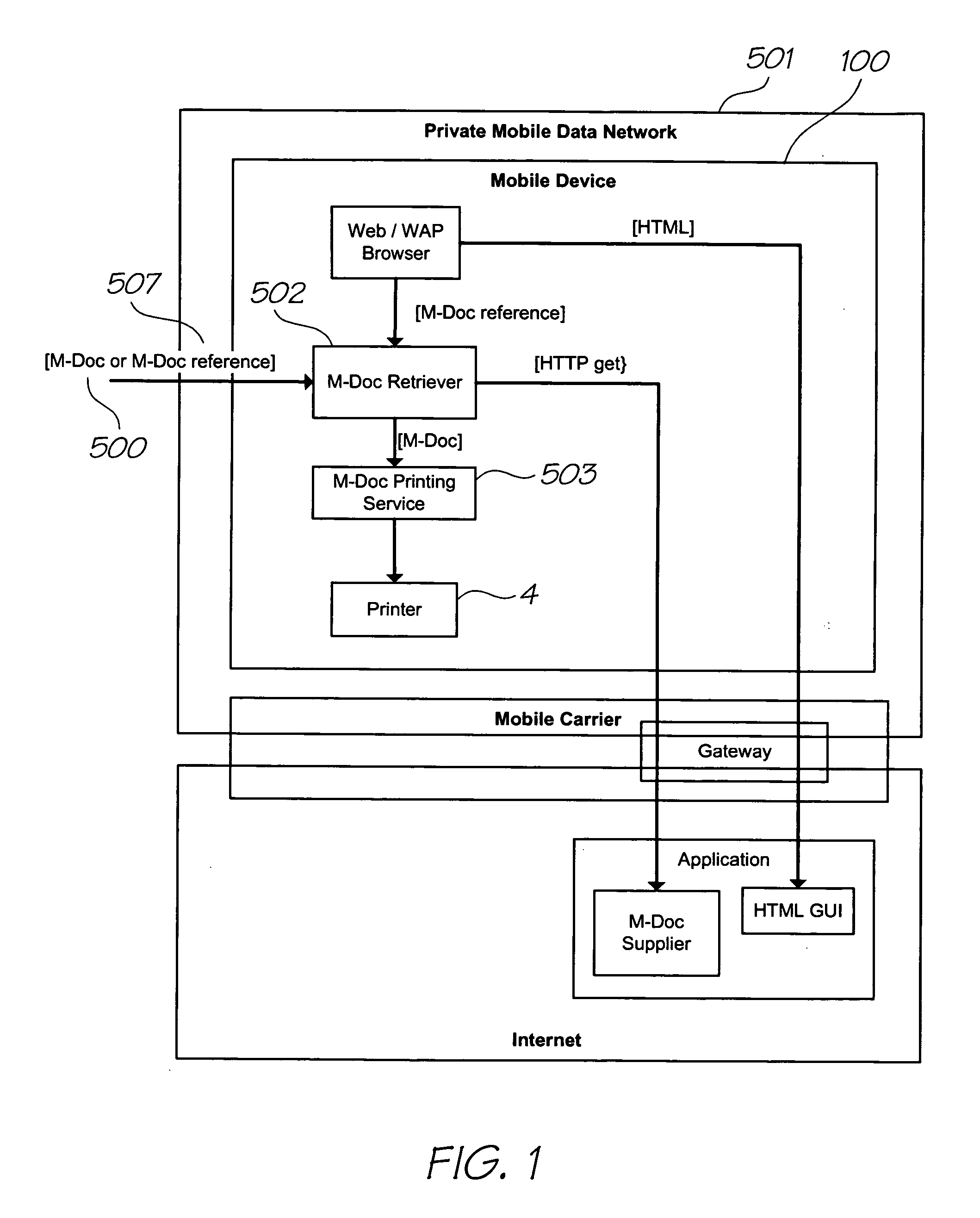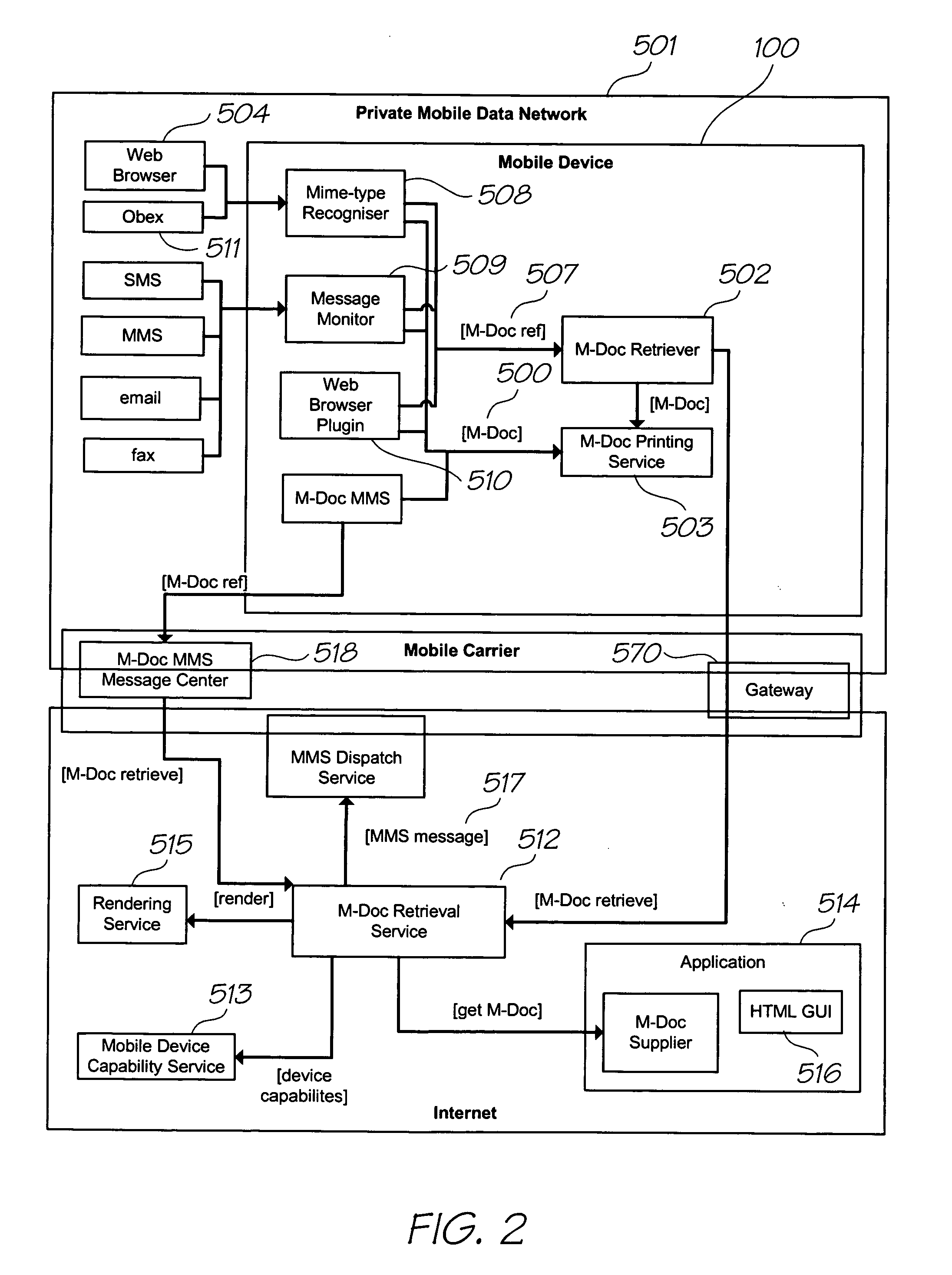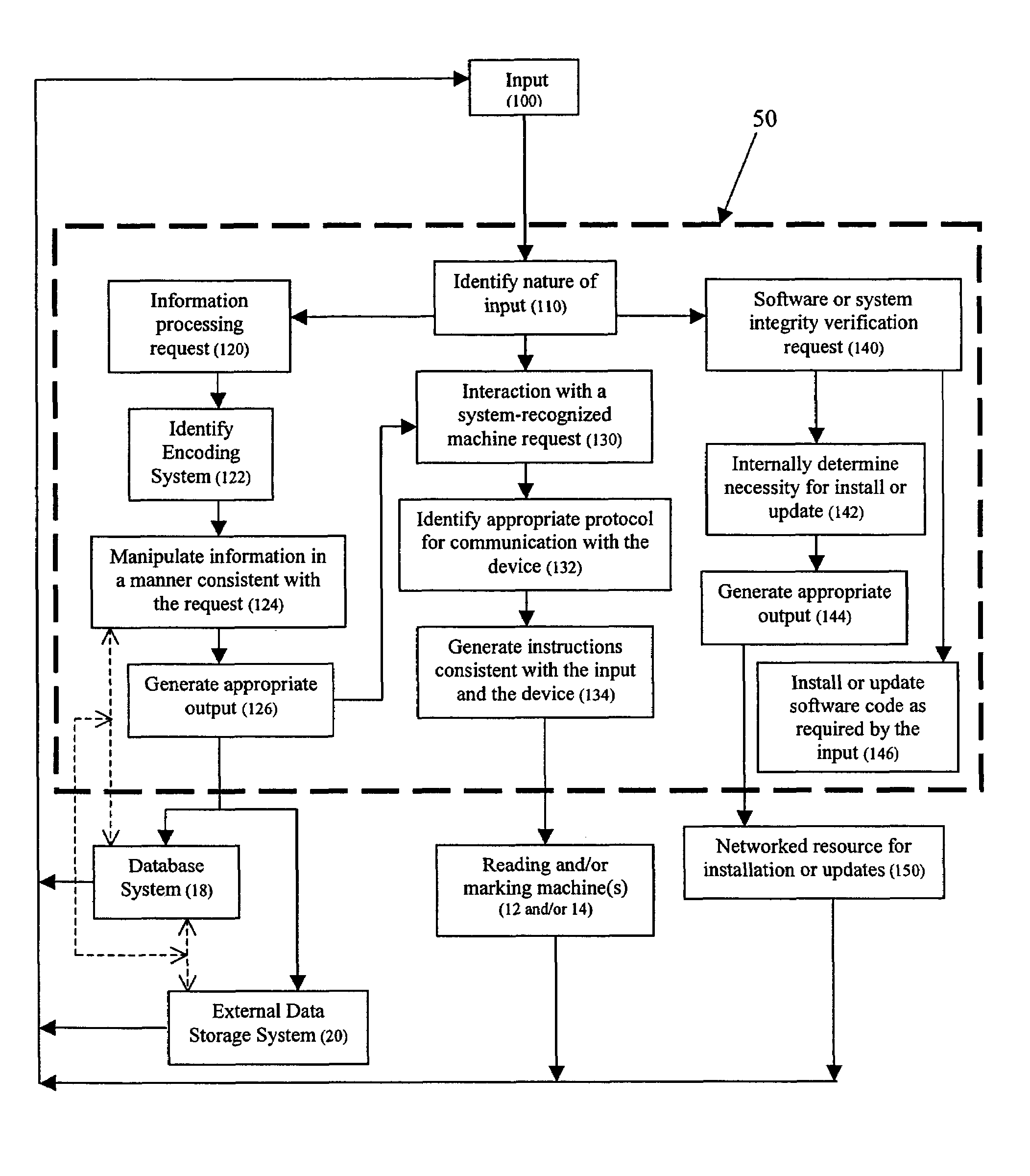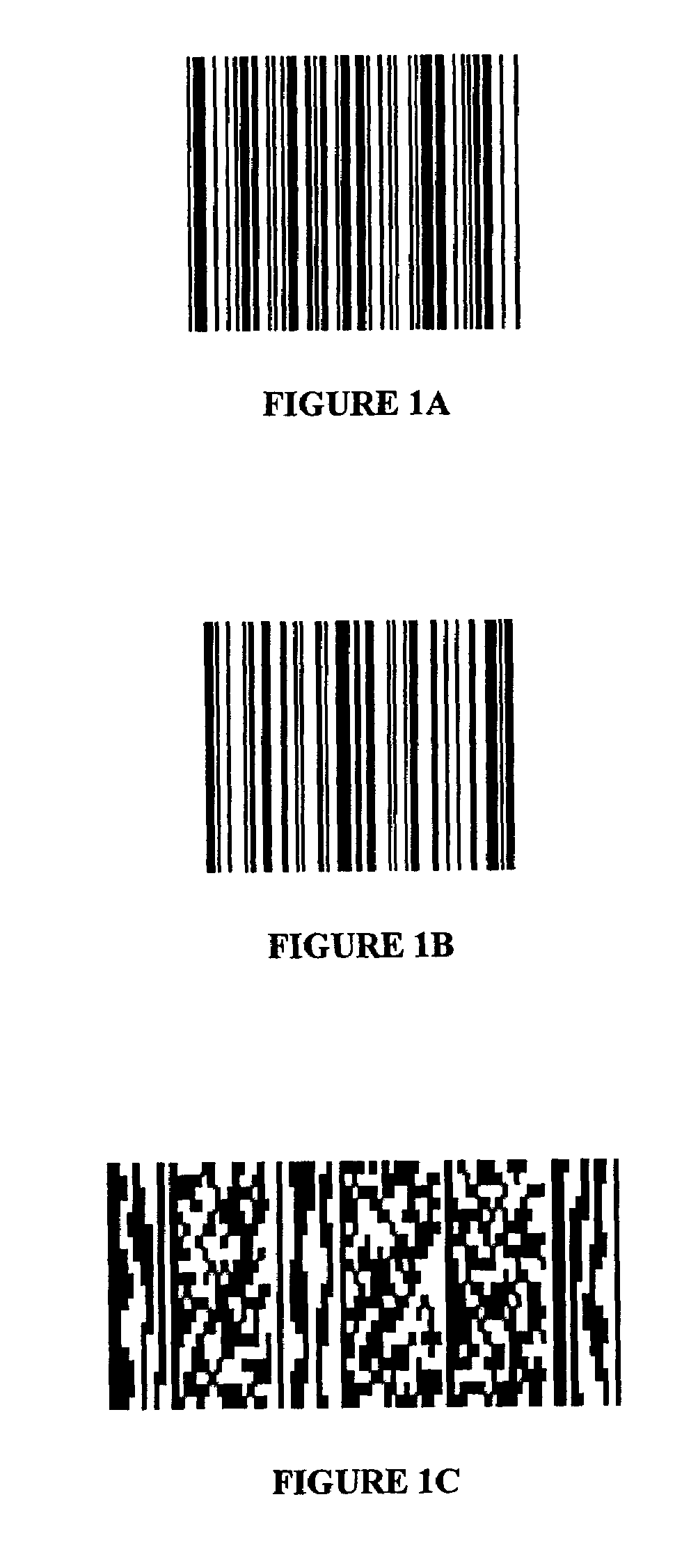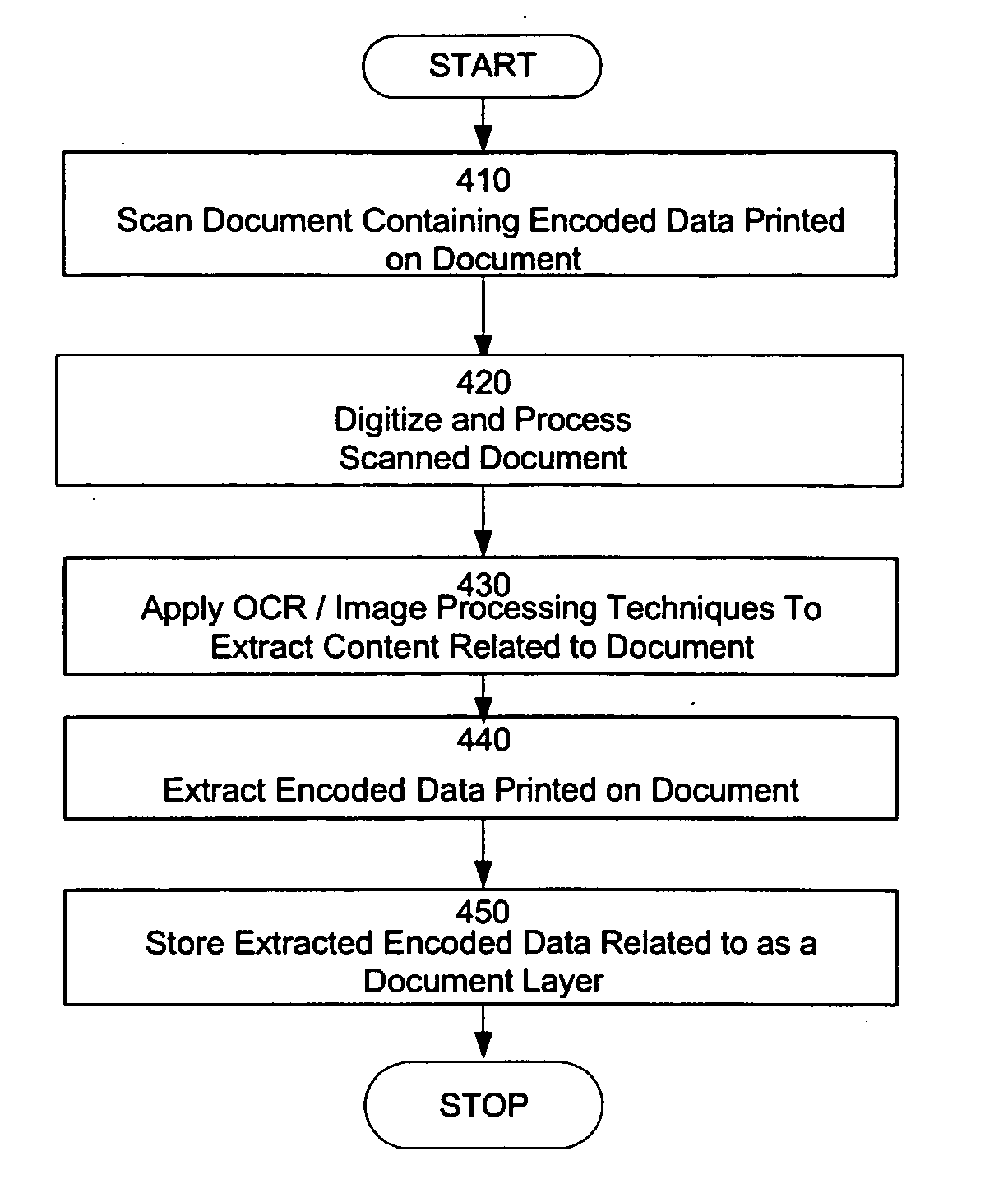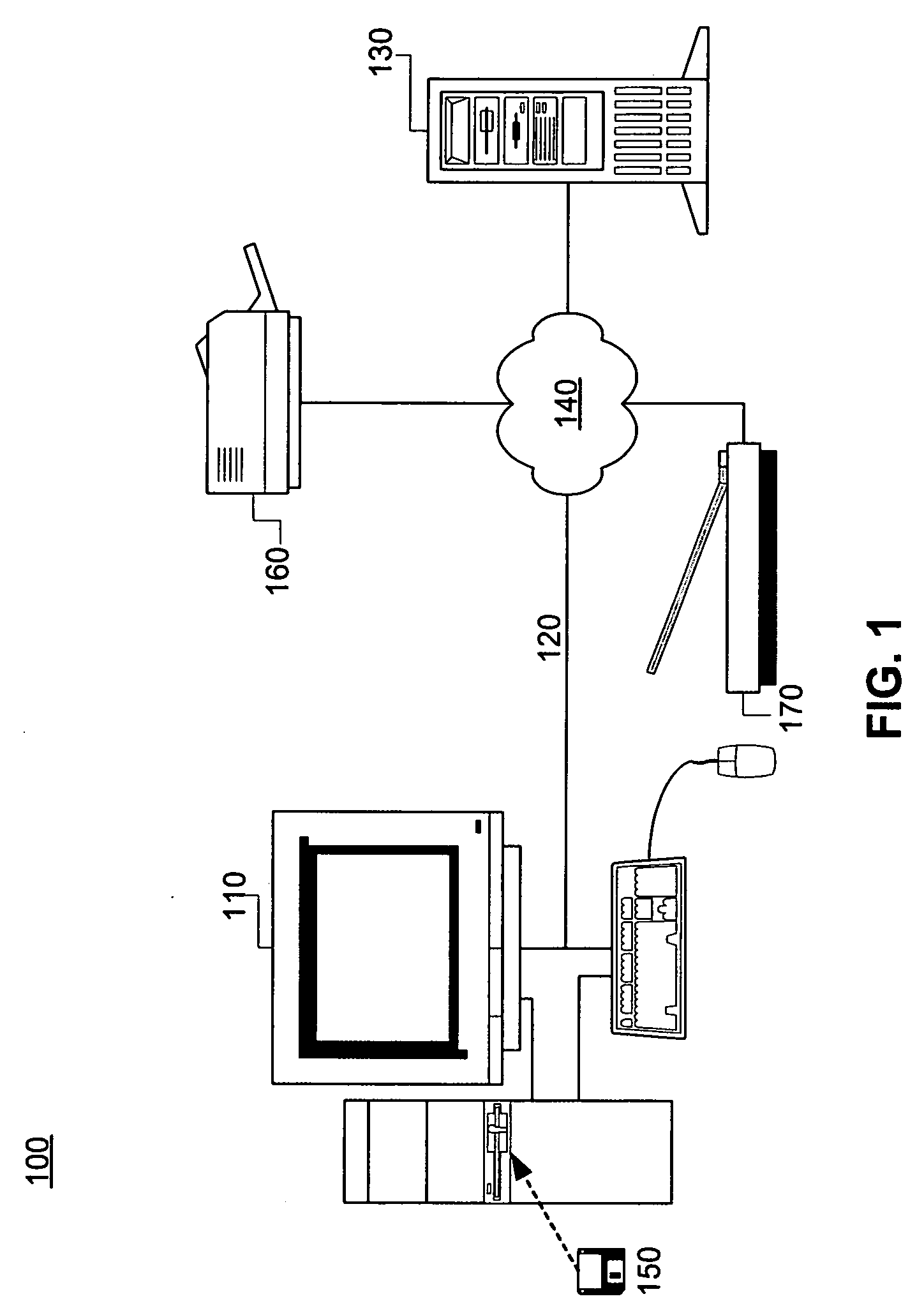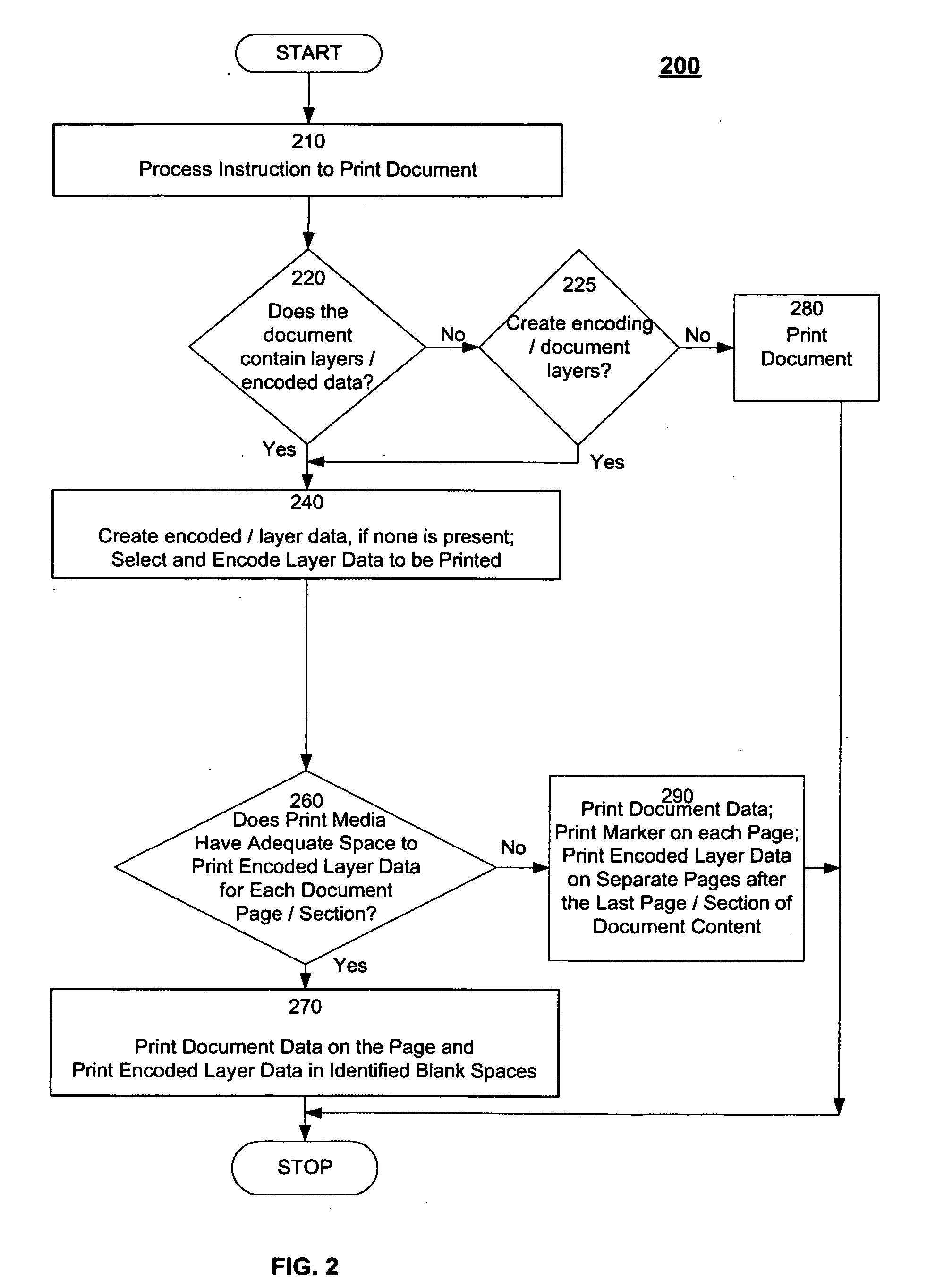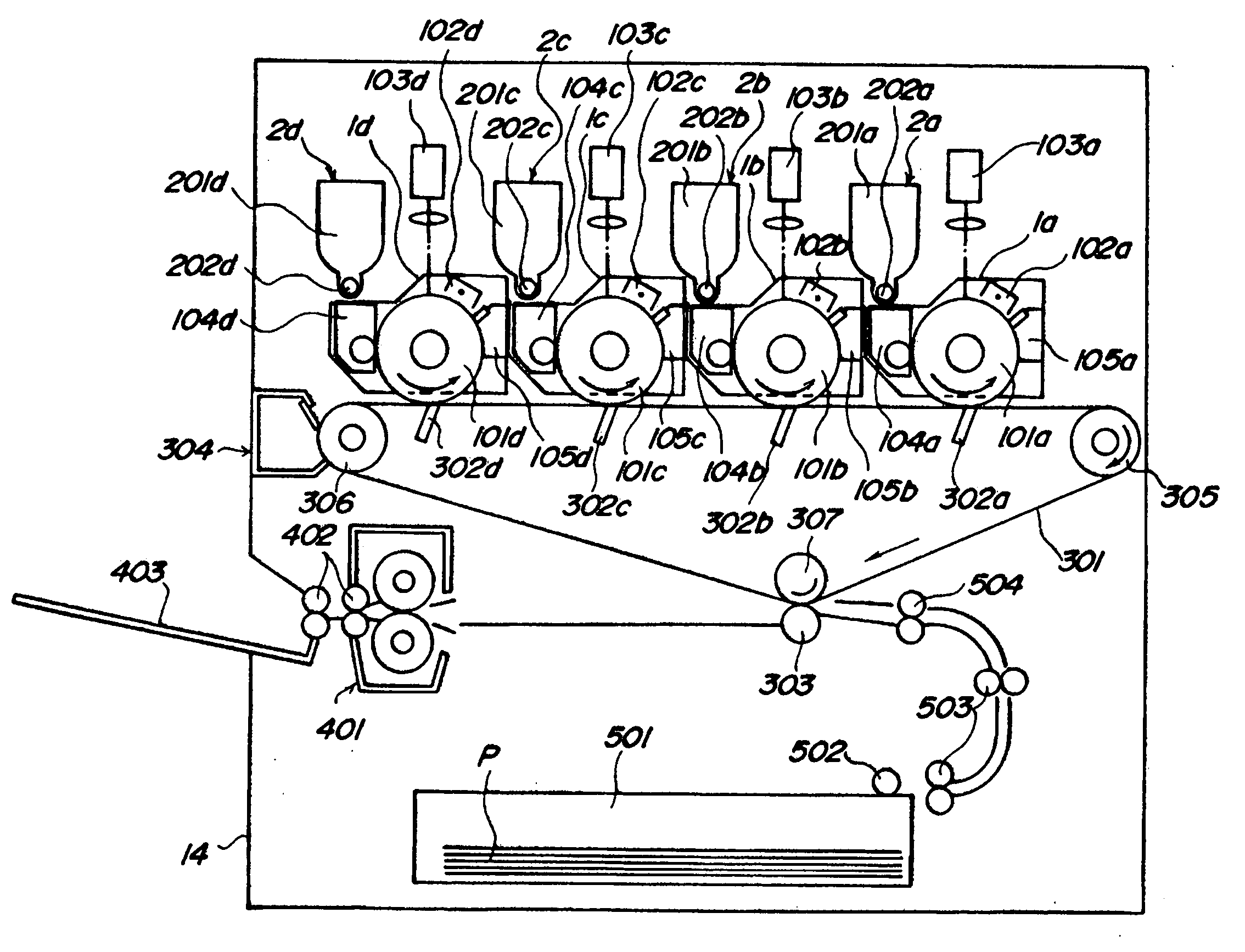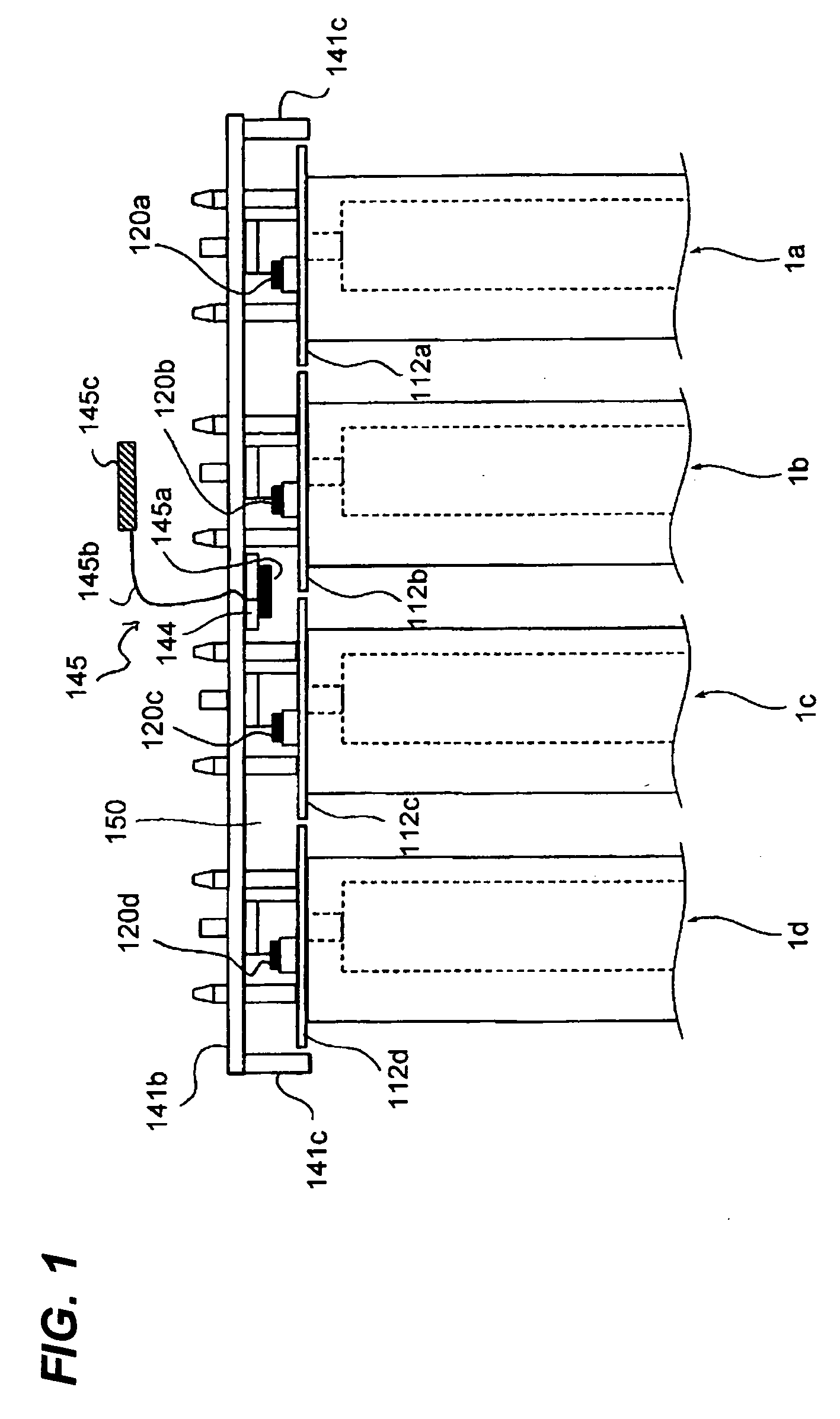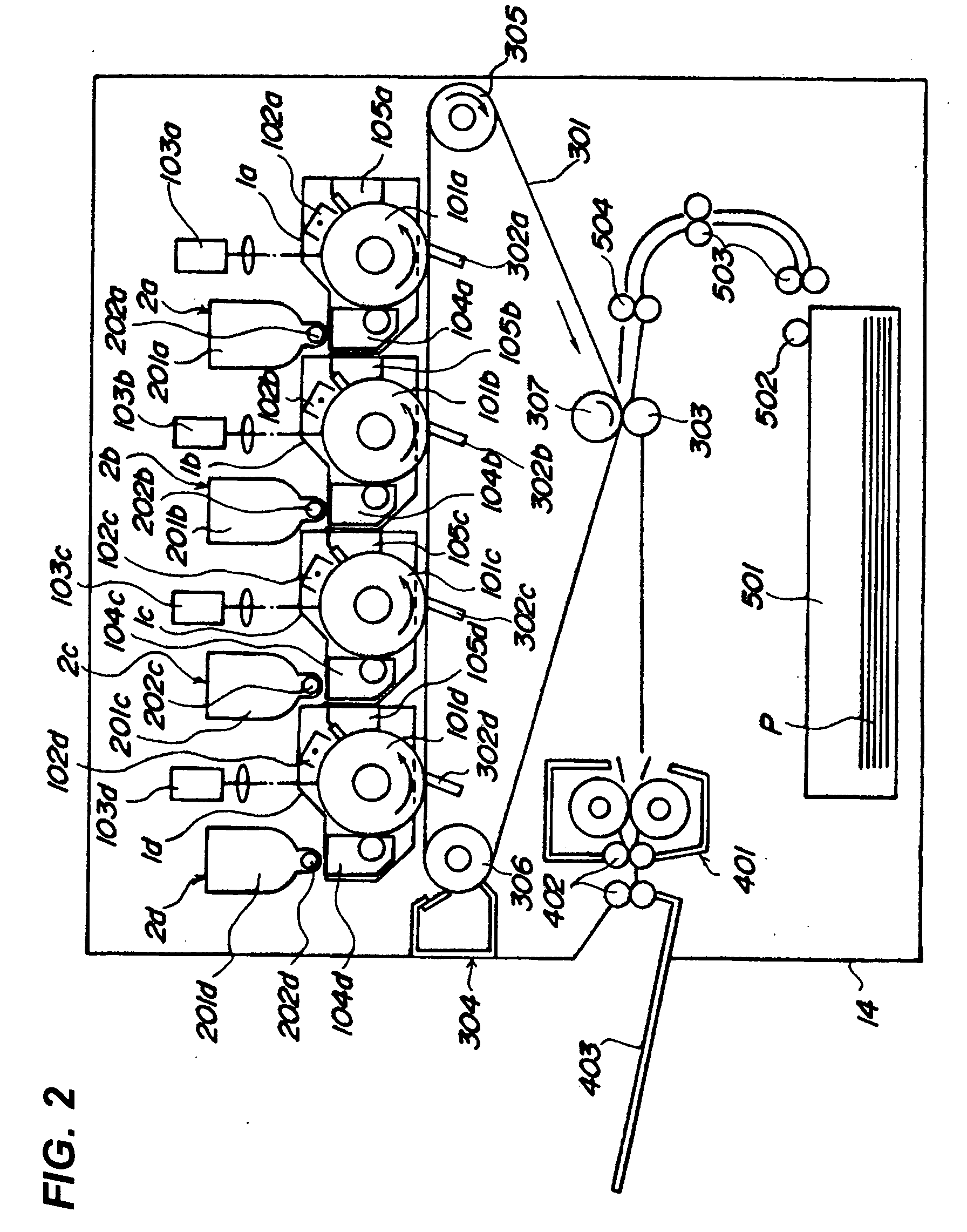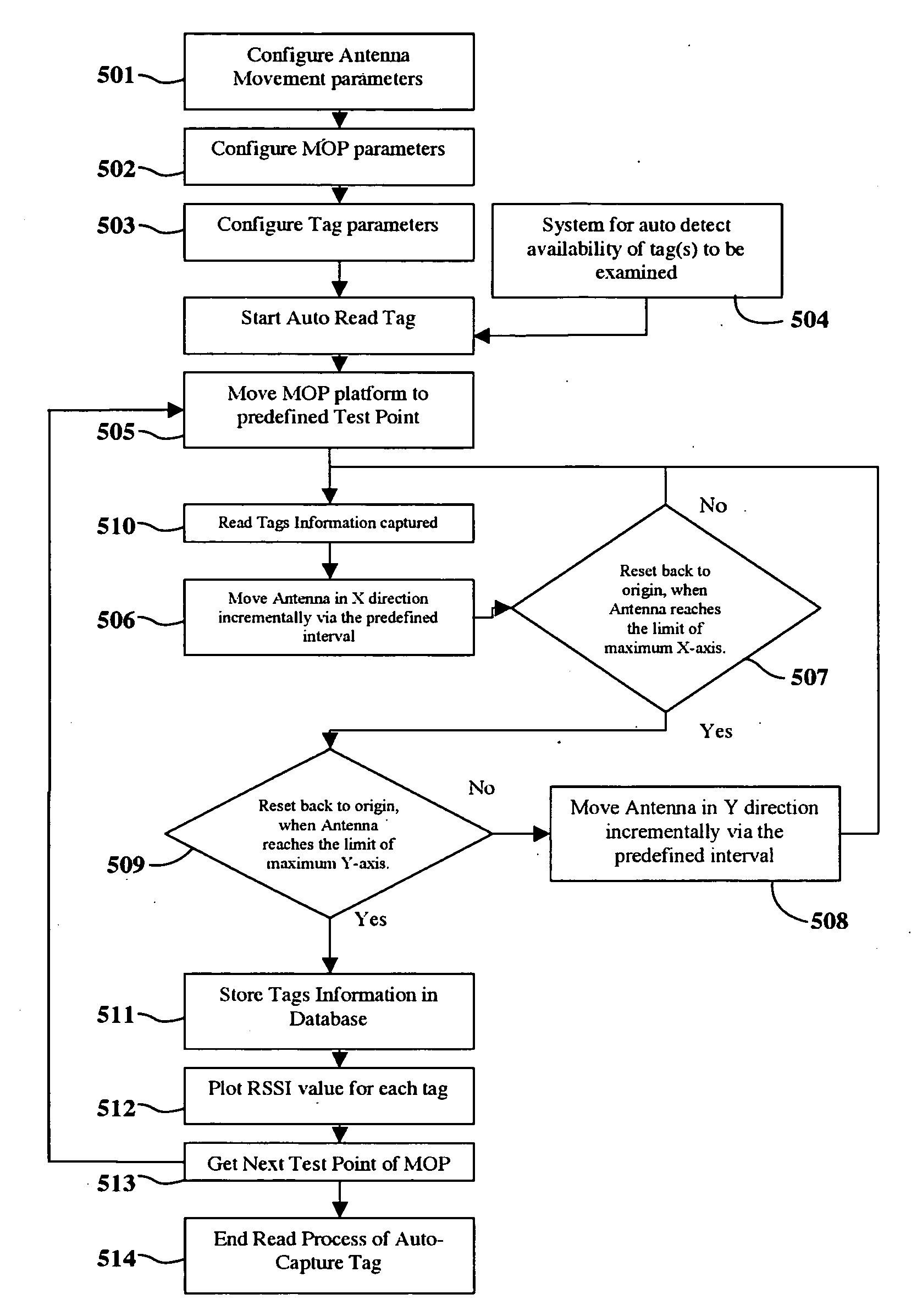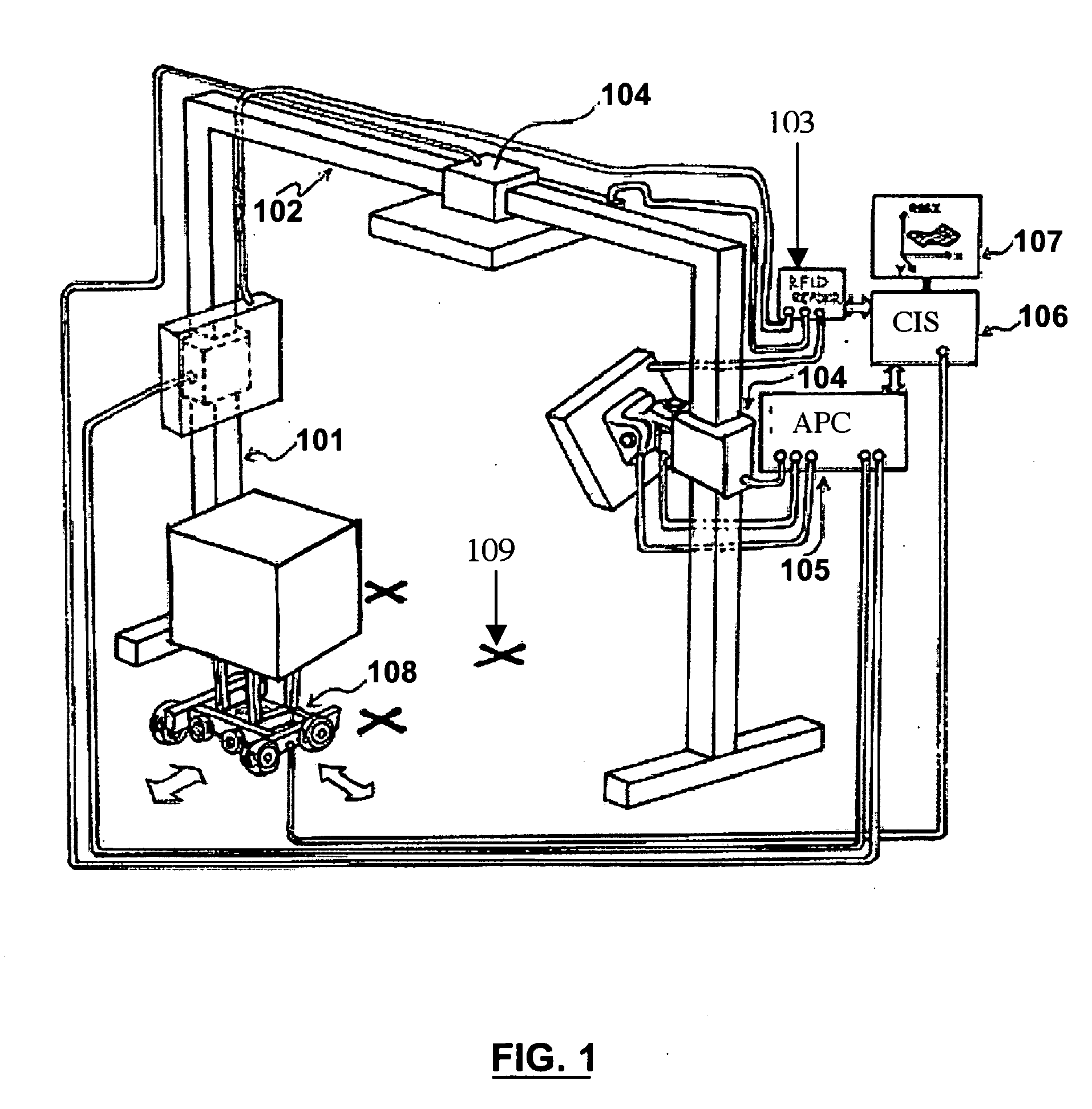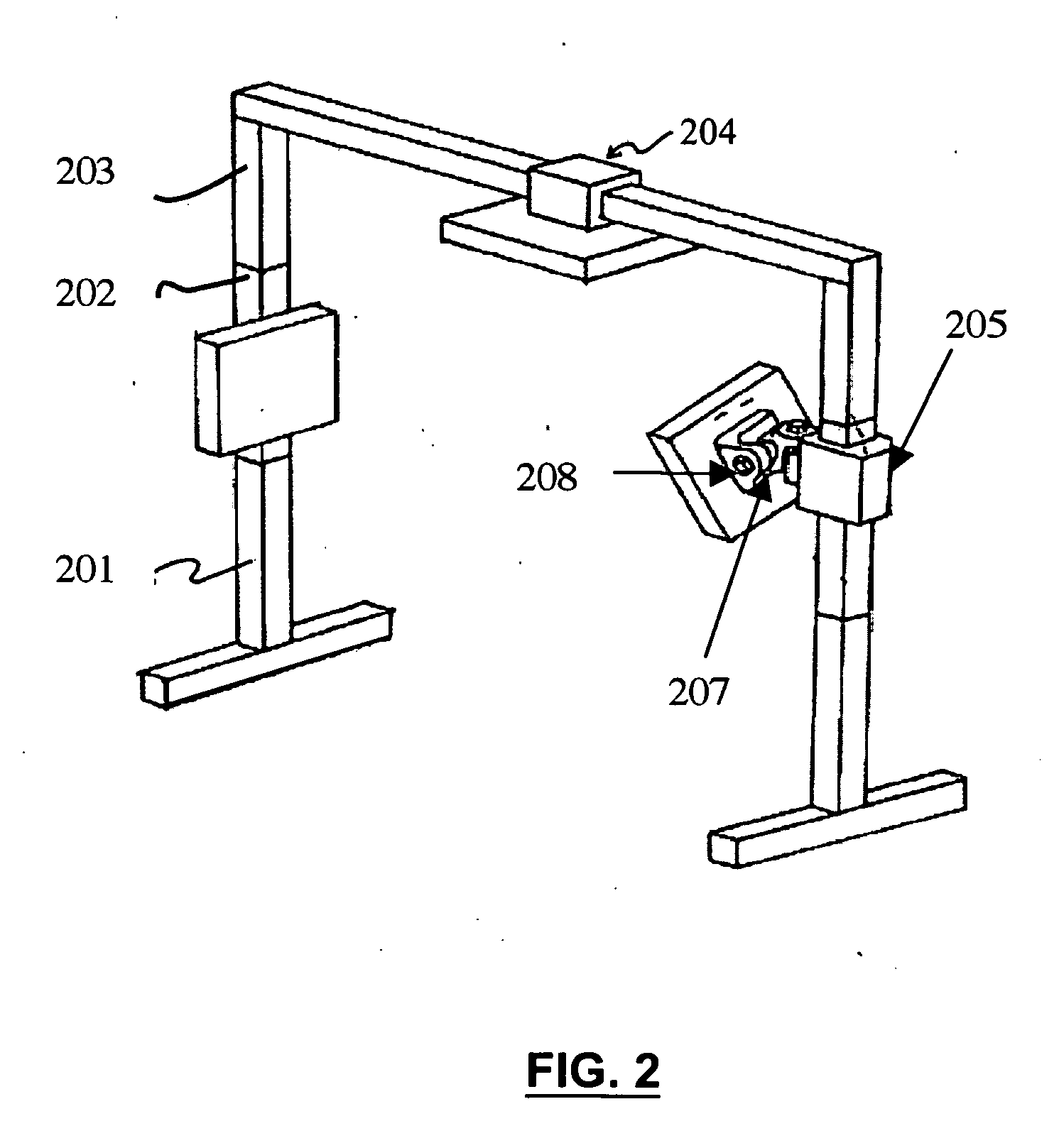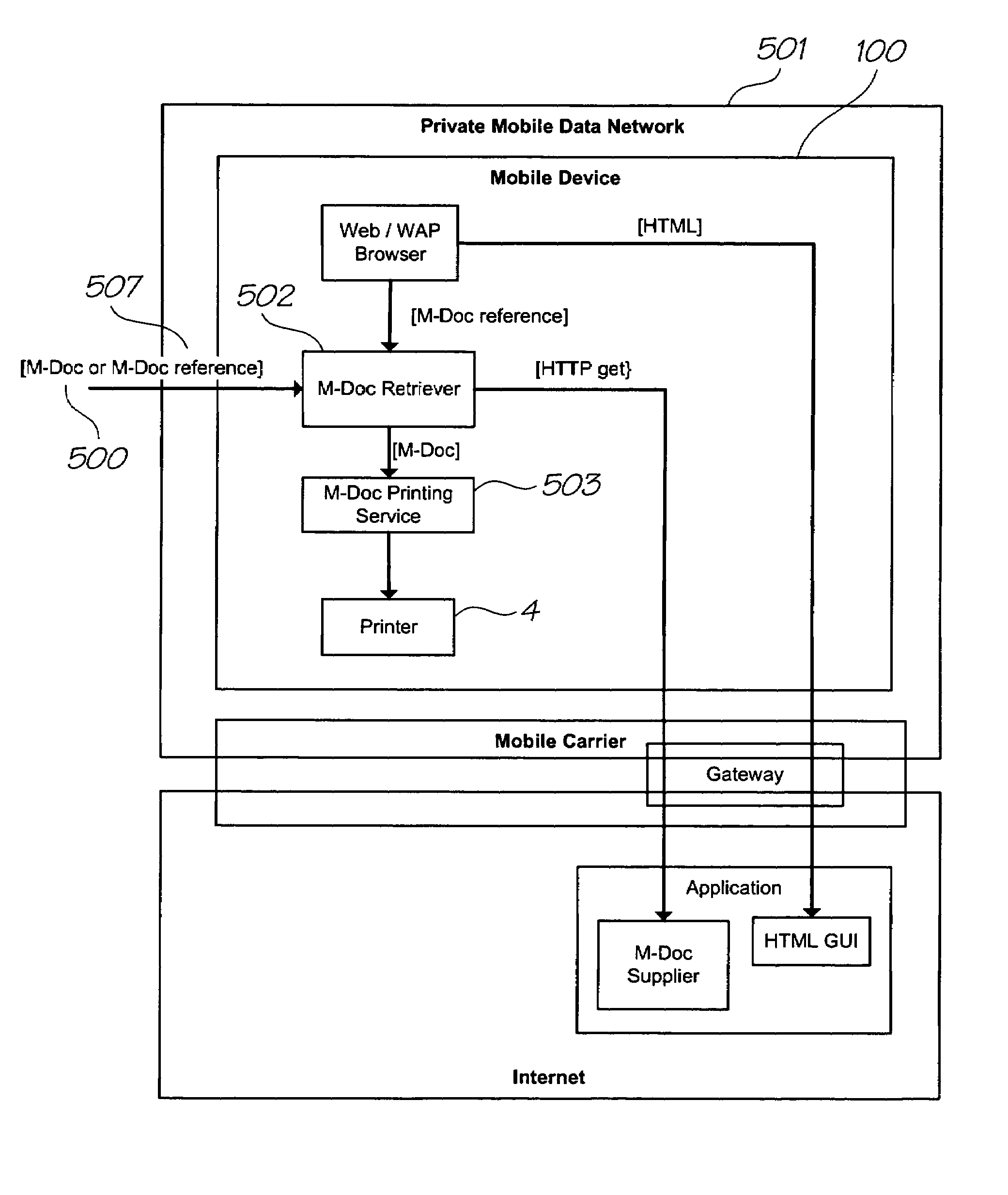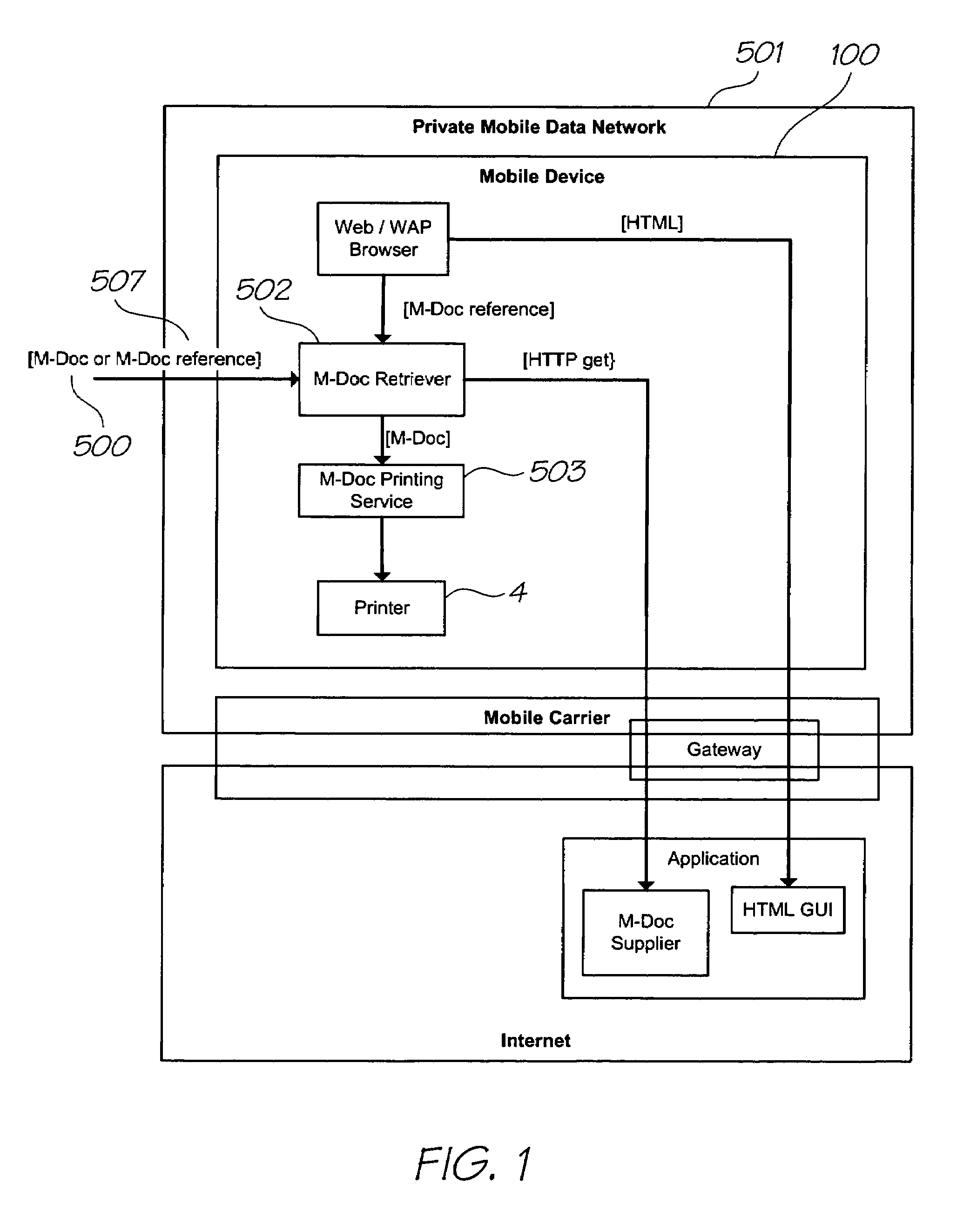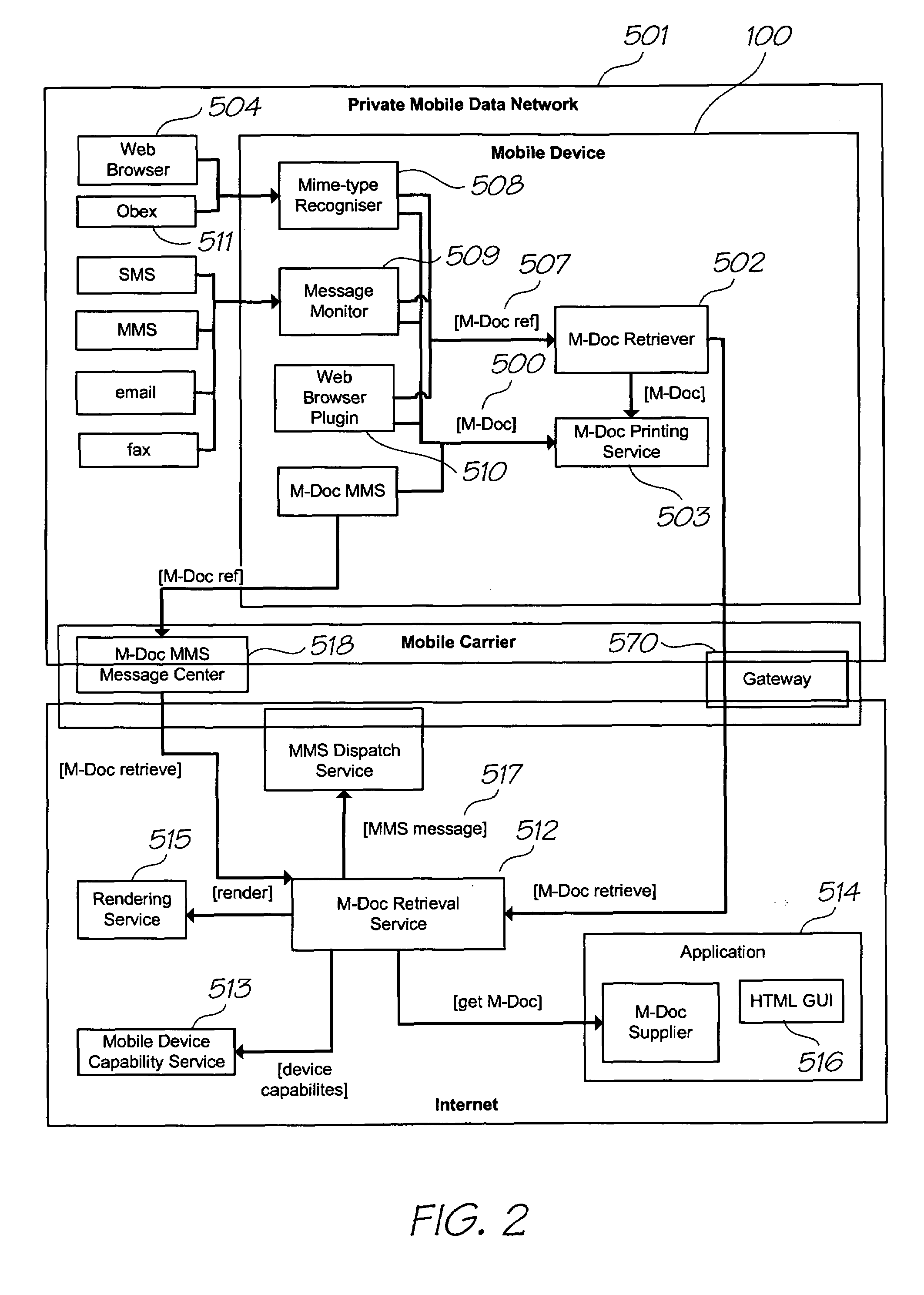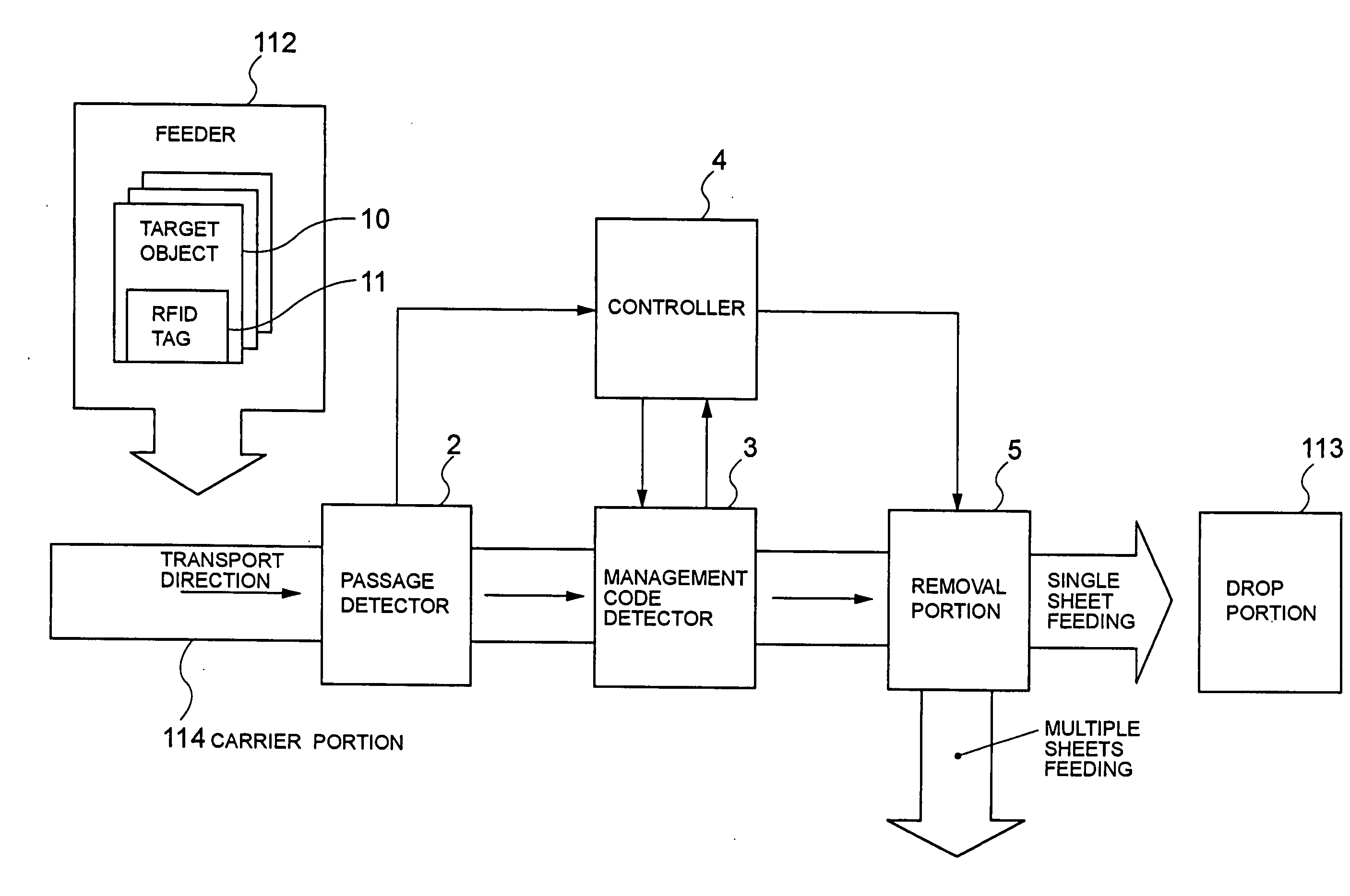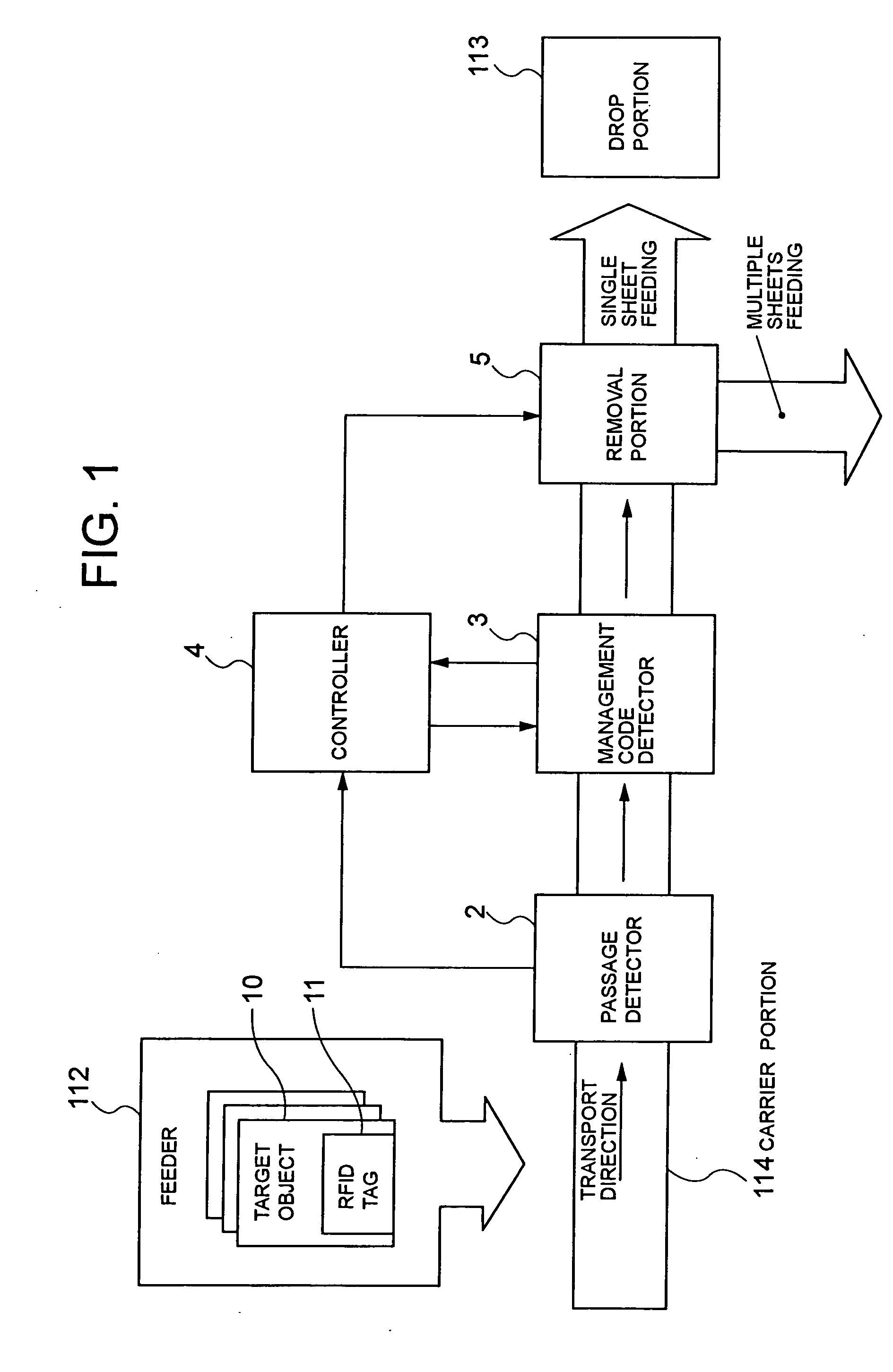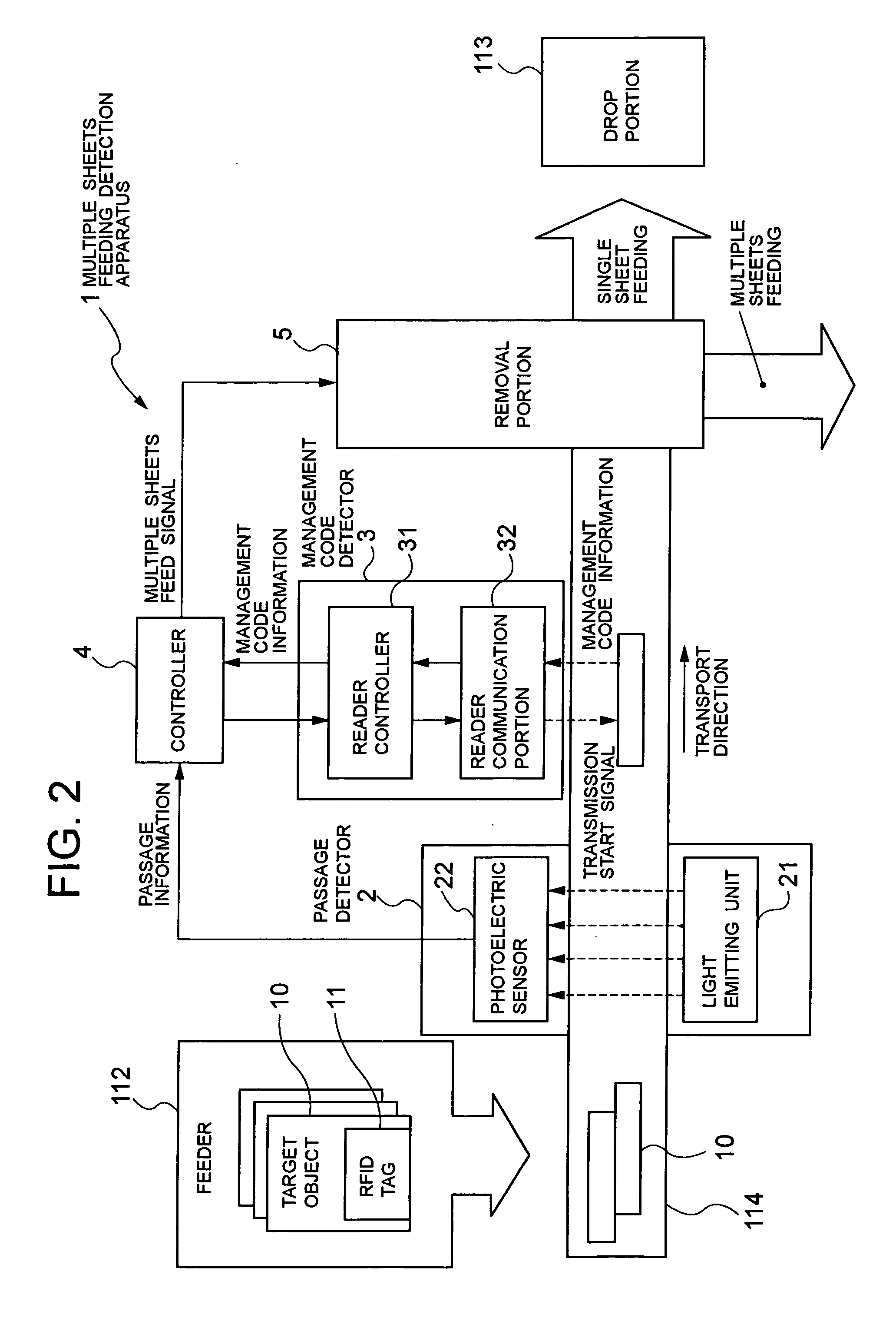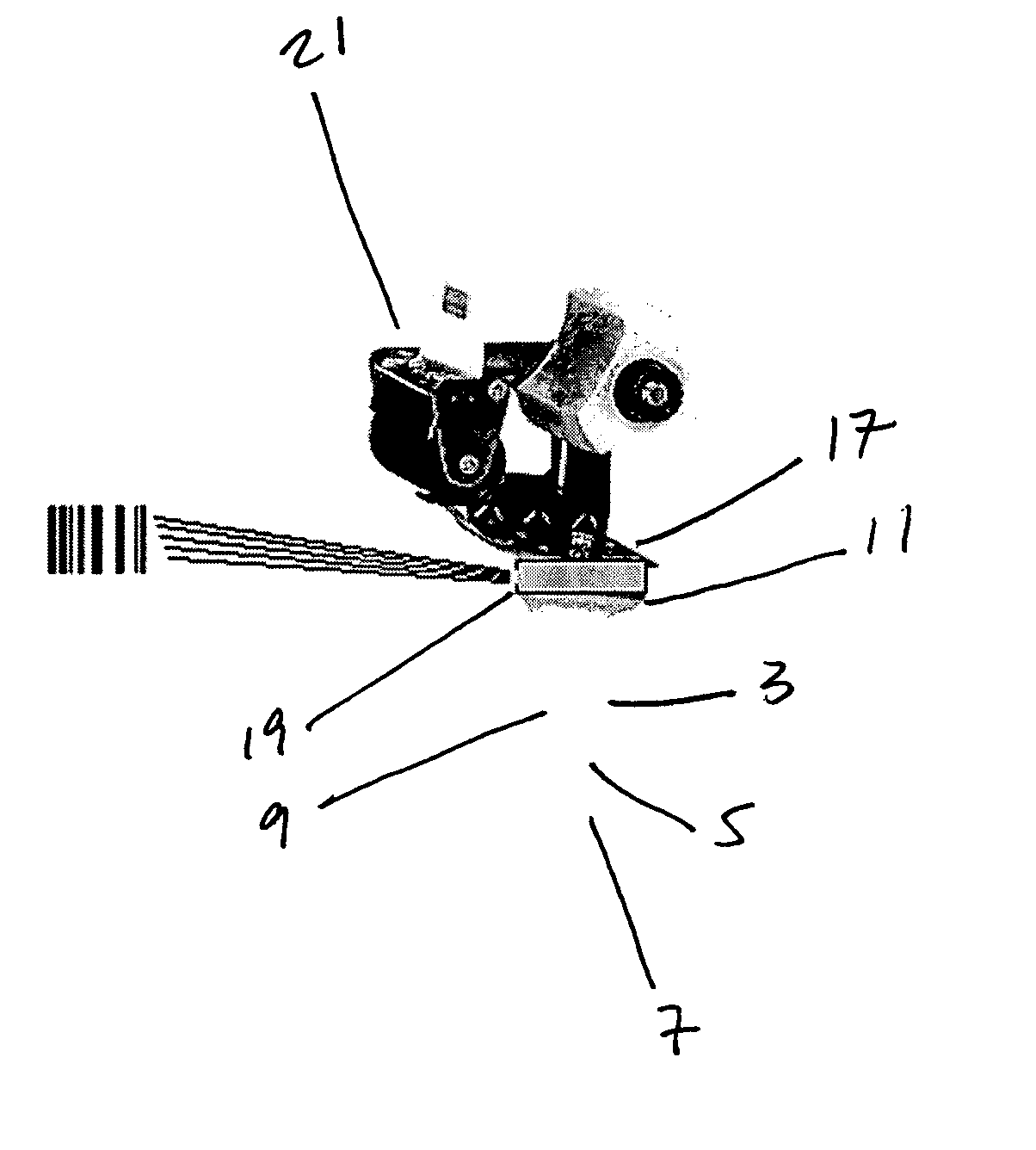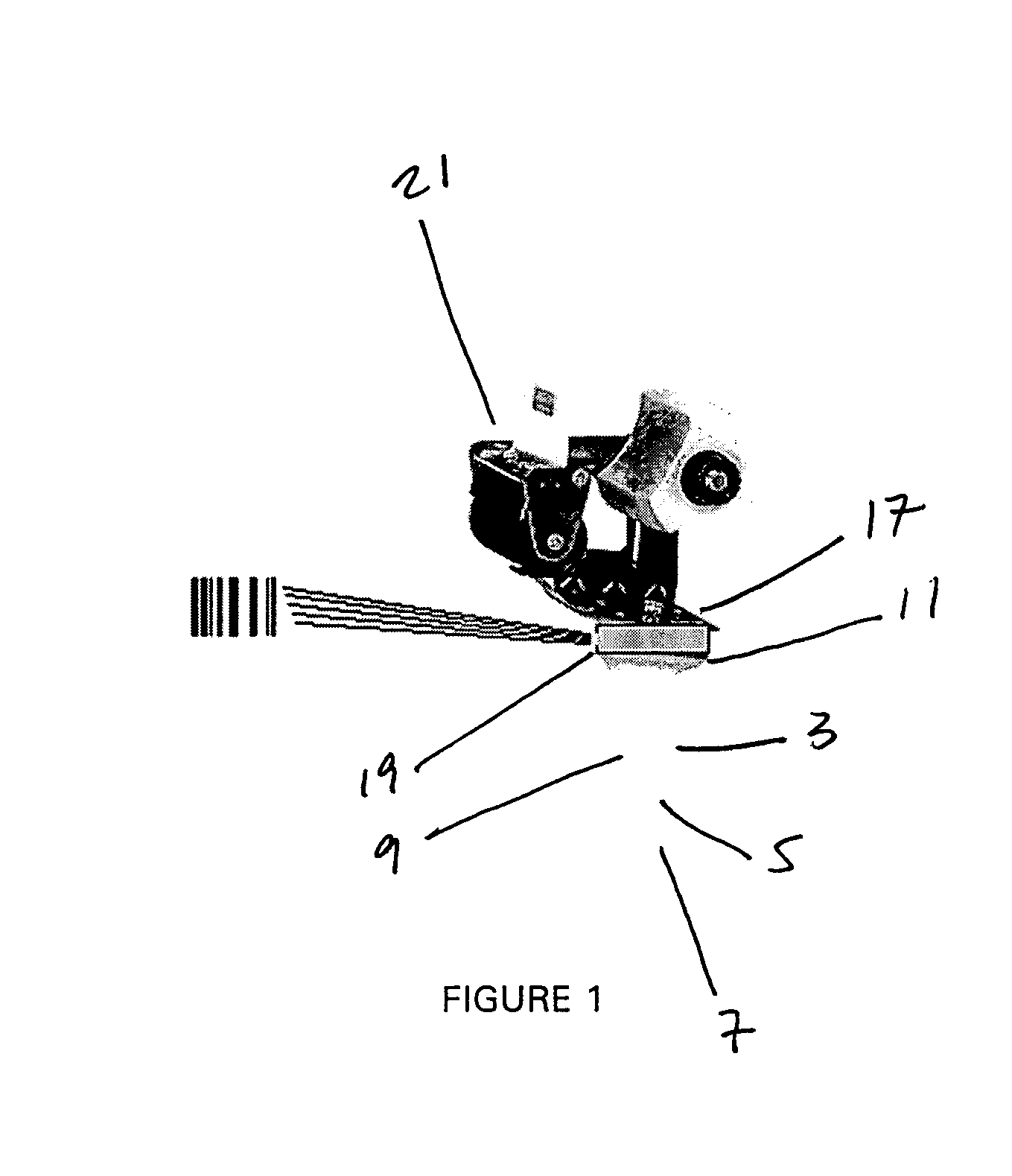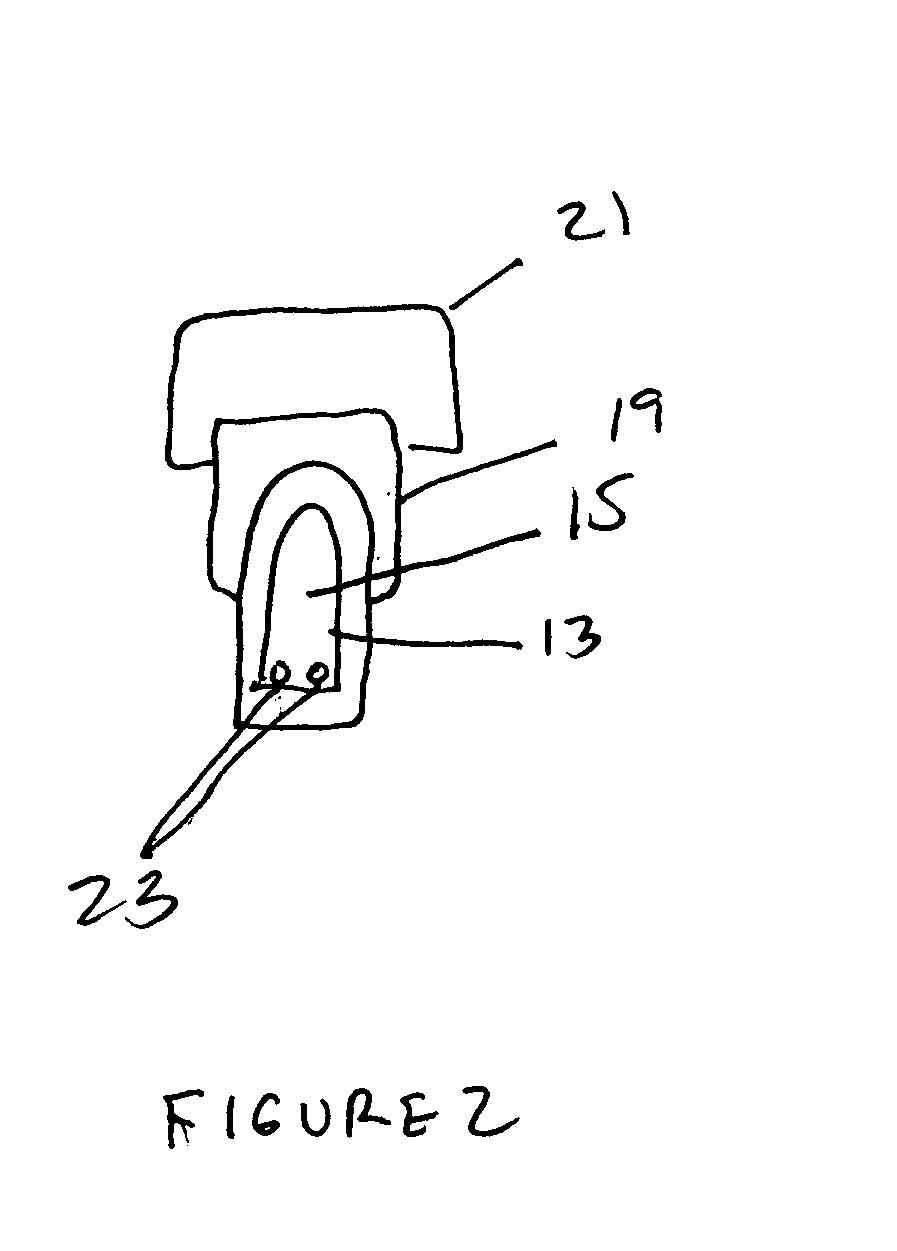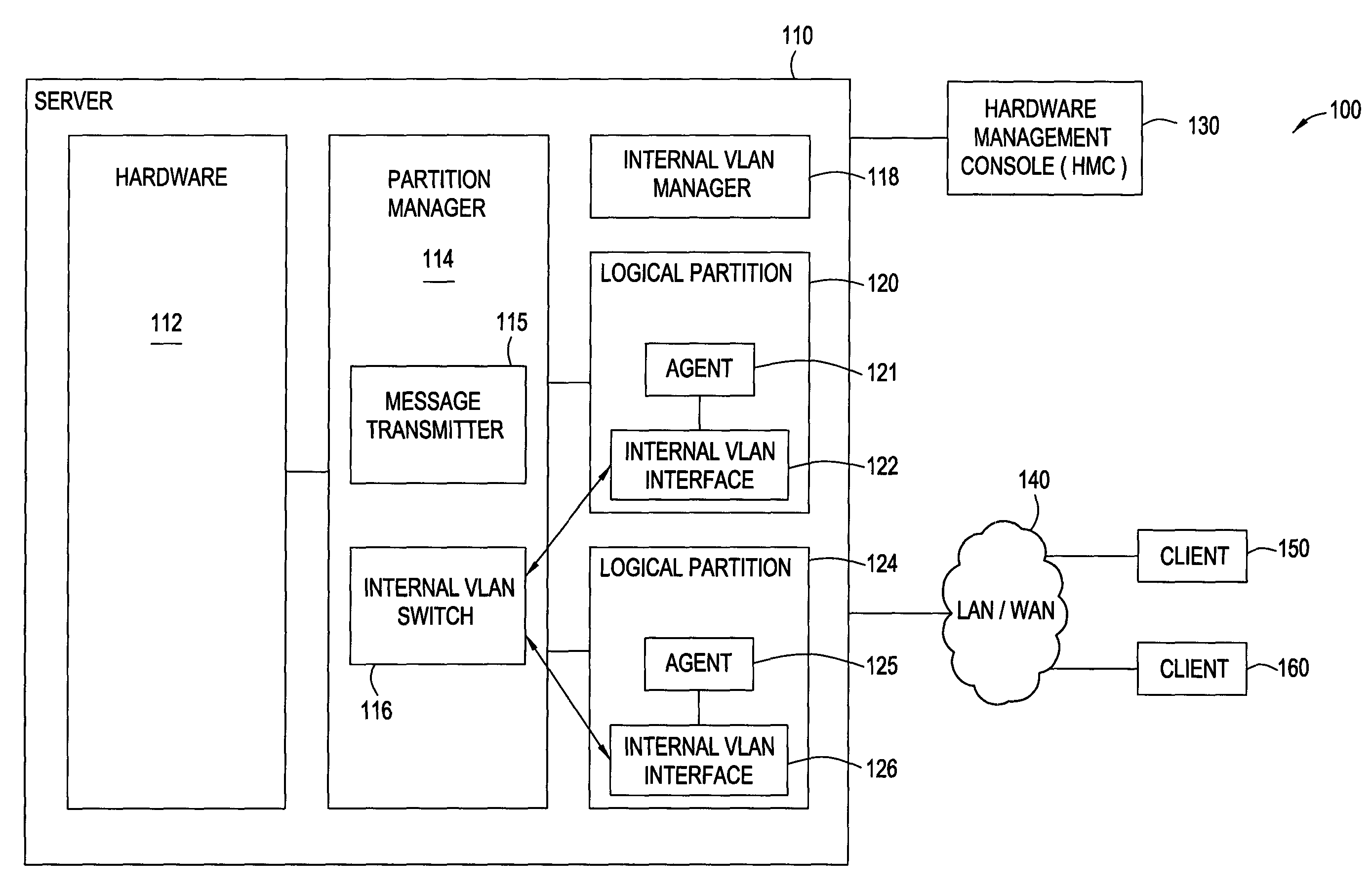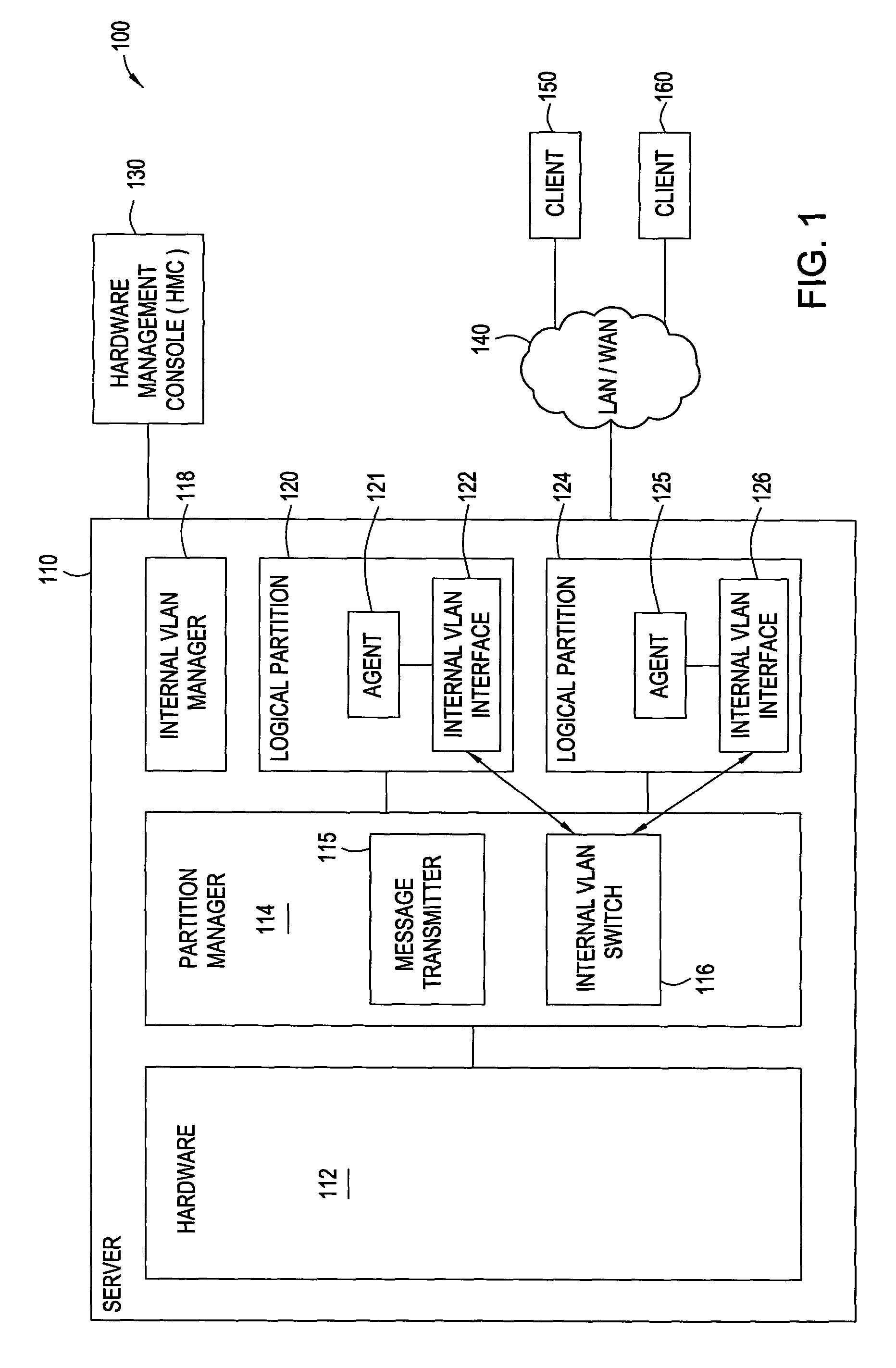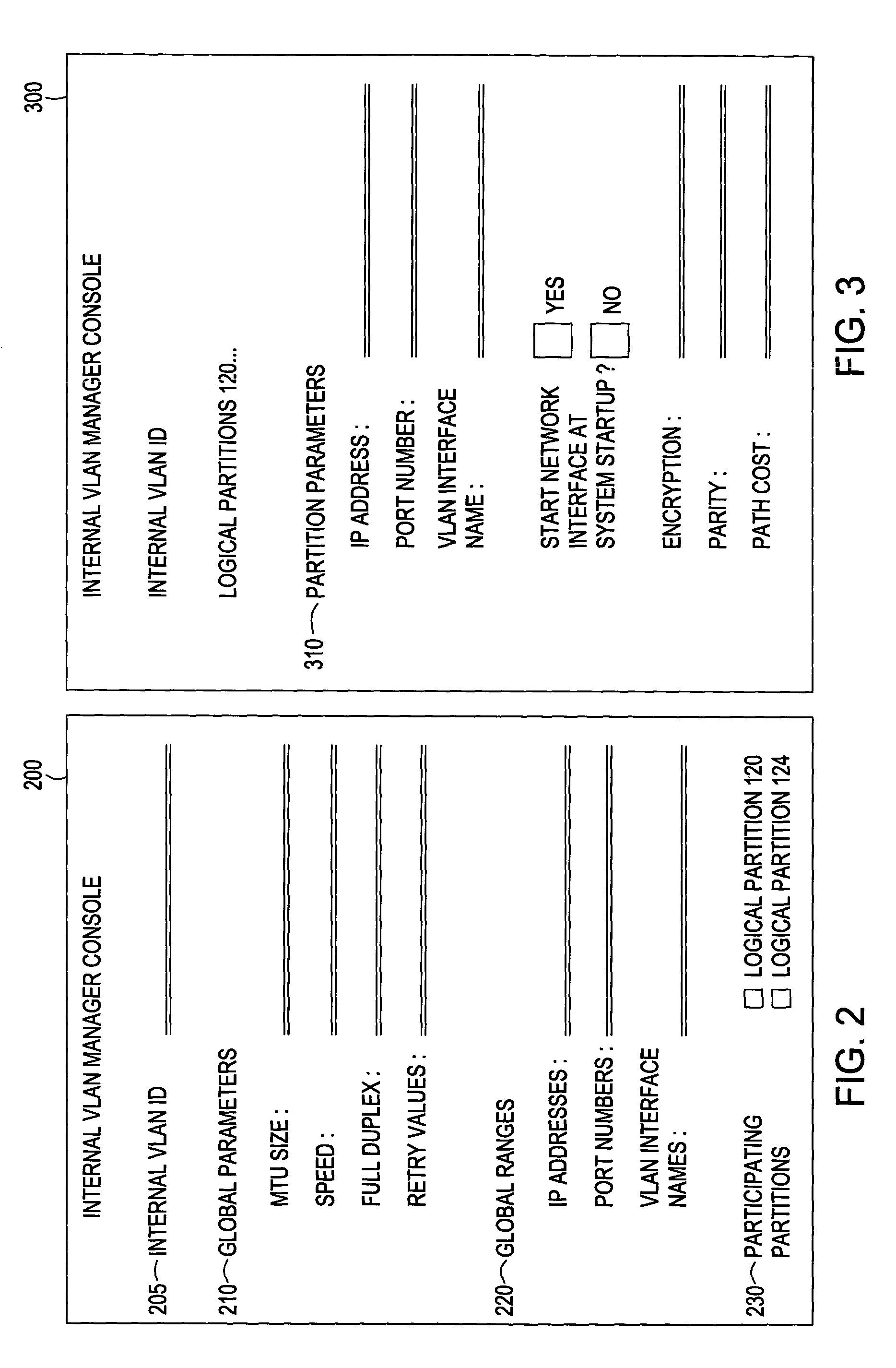Patents
Literature
120results about "Tabulators" patented technology
Efficacy Topic
Property
Owner
Technical Advancement
Application Domain
Technology Topic
Technology Field Word
Patent Country/Region
Patent Type
Patent Status
Application Year
Inventor
System and method for selective communication with RFID transponders
InactiveUS6848616B2Minimizing creationSmall sizeMemory record carrier reading problemsCo-operative working arrangementsTransceiverCoupling
A system having an RFID transceiver is adapted to communicate exclusively with a single RFID transponder located in a predetermined confined transponder target area. The system includes a magnetic coupling device comprising a magnetic flux generator responsive to a radio frequency input signal and a magnetic field pattern former. The pattern former is configured to collect flux produced by the flux generator and to form a field pattern in the location of the transponder target area. The system establishes, at predetermined transceiver power levels, a mutual magnetic coupling which is selective exclusively for a single transponder located in the transponder target area.
Owner:ZEBRA INVESTMENT HLDG CORP +1
Printing system
InactiveUS20050116034A1Ensure consistencyAvoid height differenceCo-operative working arrangementsTabulatorsComputer hardwareComputer printing
A printing system capable of writing RFID data consistent with print information printed on a print-information recoding medium into a RFID chip carried on the print-information recording medium. The printing system includes a printer engine for printing print information, including at least either one of contactlessly readable information and image information visible to human being, onto at least the print-information recording medium, and an RFID reader / writer for writing RFID data consistent with the print information into the RFID chip carried on the print-information recording medium.
Owner:TORAY ENG CO LTD
Spatially Selective UHF Near Field Microstrip Coupler Device and RFID Systems Using Device
InactiveUS20050045724A1High impedanceReduce gapDigitally marking record carriersMemory record carrier reading problemsElectromagnetic couplingTransceiver
A system having a UHF RFID transceiver is adapted to communicate exclusively with a single electro-magnetically coupled transponder located in a predetermined confined transponder operating region. The system includes a near field coupling device comprising a plurality of lines connected in parallel with an unmatched load. The near field coupling device may be formed, for example on a printed circuit board with a plurality of electrically interconnected traces and a ground plane. The system establishes, at predetermined transceiver power levels, a mutual electro-magnetic coupling which is selective exclusively for a single transponder located in a defined transponder operating region. Also included are methods for selective communication with the transponder in an apparatus such as a printer-encoder.
Owner:ZIH CORP
System and method for detecting transponders used with printer media
ActiveUS7190270B2Digitally marking record carriersMemory record carrier reading problemsTransceiverPosition dependent
A calibration apparatus for determining a location of a transponder supported by a printer media. The calibration apparatus uses a transceiver to attempt to read, write or otherwise communicate with the transponder. Controller logic of the calibration apparatus uses successful and unsuccessful attempts to communicate to determine the location of the transponder. For example, the controller may be configured to move the media in increments, each of the increments associated with a successful or unsuccessful attempt to communicate with the transponder. The successful attempts, and their relative media positions, are correlated with the position of the transponder. Also, the controller may be configured to use different power levels for the transceiver and its one or more couplers to determine which power levels are required to successfully communicate with the transponder. These power levels are correlated with characteristics of the performance of the transponder to determine its distance from the antenna / coupler.
Owner:ZEBRA TECH CORP
Multi-element RFID coupler
ActiveUS20070099566A1Digitally marking record carriersAntenna supports/mountingsCommunications systemTransceiver
An RFID communication system comprising a near field coupler that is capable of selectively communicating with a targeted transponder positioned among a group of multiple adjacent transponders. The coupler is configured to receive communication signals from a transceiver and transmit the signals to a targeted transponder in a transponder operating region. The coupler includes a number of radiating elements spaced apart and a switching element. The switching element selectively couples one or more of the radiating elements to the transceiver. The coupled elements transmit the signals into the transponder operating region by emanating a near field effect. The pattern of the near field effect may be adjusted by changing the combination of the coupled radiating elements.
Owner:ZEBRA TECH CORP
Printing Apparatus and Printing Method
InactiveUS20070187508A1Simple processEasy to implementCharacter and pattern recognitionTabulatorsComputer science
Owner:SEIKO EPSON CORP
Management of print services
Owner:HEWLETT PACKARD DEV CO LP
RFID UHF stripline coupler
ActiveUS20070216591A1Minimize inadvertent activationMinimized footprintSensing detailsTabulatorsElectricityTransceiver
A stripline coupler for a RFID system is provided. The coupler is configured to communicate with a targeted transponder from among a group of multiple adjacent transponders. The coupler may include a conductive strip, a terminating load, a dielectric material, a first ground plane, and a second ground plane. The conductive strip extends between the first and second ground planes and the dielectric material from an input end connected to a transceiver to a loaded end connected to the terminating load. The conductive strip may be configured to propagate electromagnetic fields concentrated in a near field region of the conductive strip in a direction generally perpendicular to the conductive strip to couple with a targeted transponder. The coupler may include an enclosure for directing the electromagnetic fields. The conductive strip may have a tapered or non-linear profile such as a modified bow-tie profile, an exponential profile, or a Klopfenstein profile.
Owner:ZEBRA TECH CORP
Intelligent RFID tag and use for improved printing
InactiveUS20070023516A1Improve performanceCo-operative working arrangementsTabulatorsComputer printingEmbedded system
An RFID tag is pre-programmed with information about an object or device used in an RFID printer system. The RFID printer system can then read this information and take the appropriate action, such as user notification or printer parameter adjustment, to improve printer performance. The RFID tag can contain information about and be attached to printer elements, such as an RFID label or roll of labels, a print head, or a printer ribbon.
Owner:PRINTRONIX INCORPORATED
Auto sense and encode printer system for multiple classes of RFID tags
An RFID printer system and method interrogates or accesses RFID tags automatically using a user-defined sequence of settings for different RFID tags or classes. Once a successful interrogation is completed, the settings are saved and the saved settings are used for interrogation on the next tag. Each new roll of tags / labels starts interrogation with the first of the settings. Consequently, the printer system can read from and write to tags of more than one class without hardware or software changes in the printer.
Owner:PRINTRONIX INCORPORATED
Direct thermal barcode printer
Owner:HAND HELD PRODS
Printed page tag encoder
InactiveUS7070098B1Ease dot detection and decoding algorithmEasy to placeDigitally marking record carriersVisual representation by matrix printersComputer graphics (images)Continuous tone
A tag encoder for producing tags to be incorporated into a printed page is disclosed. The tag encoder has an input to receive a tag structure template, an input to receive fixed data bits, an input to receive variable data bit records and a tag generator outputting single bits depending on the position in the tag defined by the tag structure template and the fixed and variable data bits. The encoder has a redundancy encoder which utilizes Reed-Solomon encoding. The tag encoder is present in a printer. In addition to the tag encoder, the printer has a contone image decoder to decode compressed continuous tone image planes and a bi-level decoder to decode any compressed bi-level image plane in the compressed data. These decoded image planes are combined with the output of the tag encoder in a halftoner / compositor to produce a printed page carrying tagged areas. The tags are printed in ink which is invisible to the human eye. Such inks, could be IR or UV absorptive.
Owner:ZAMTEC
Interactive design process for creating stand-alone visual representations for media objects
Techniques for an iterative design process of determining a visual representation for an input media object are provided. One or more visual representations are determined from the input media object based on a set of encoding parameters. An output media object is then created from the one or more visual representations based on a set of decoding parameters. The one or more visual representations and / or the second media object may be displayed to a user. An indication indicating whether one or more visual representations and / or the second media object is acceptable or unacceptable is then received. If the one or more visual representations and / or the second media object is not acceptable, then at least one parameter in at least one of the set of encoding parameters and the set of decoding parameters may be changed. The process described above is then repeated until the one or more visual representations and the second media object is determined to be acceptable.
Owner:RICOH KK
Image forming apparatus having shielded area in which non-contact wireless communication occurs
InactiveUS7433610B2Reduce leakageTabulatorsElectrographic process apparatusImage formationRead through
An image forming apparatus has a plurality of detachably loadable replacement units. The replacement units each have an individual IC tag that performs data writing or reading through non-contact wireless communication. At least one reader / writer writes / reads data to / from the IC tags of the replacement units through non-contact wireless communications. A shield member defines a shielded area in the image forming apparatus for shielding electromagnetic radiation noise. At least the IC tags and an antenna part of the reader / writer are arranged in shielded area.
Owner:CANON KK
Printing a greeting card using a mobile device
InactiveUS7575172B2Accurate explanationEasy to getDigitally marking record carriersCharacter and pattern recognitionPrint mediaComputer module
A system for printing a greeting card on a print medium, the system comprising: a mobile telecommunications device which comprises: a printer module to print the greeting card on the print medium; and, a sensor module to sense a print media identifier of the print medium.
Owner:SILVERBROOK RES PTY LTD
System and method for printing data of portable terminal
InactiveUS20050157329A1Reduce data transfer timeData is delayedDigitally marking record carriersLifting devicesShortest distanceComputer printing
A system for printing data from a portable terminal including: a portable terminal for storing printable printing data and transmitting data selected by the user to an external device using short-distance wireless communication, when the user's request for printing the data is present; and a wireless printer that receives the selected printing data by the short-distance communication with the portable terminal and prints the received data. In the system, wire cables are not necessary for each piece of equipment and the data transmission time is reduced, because the data of the portable terminal is directly transmitted to the wireless printer and is printed thereby without using an intermediate device such as a PC.
Owner:SAMSUNG ELECTRONICS CO LTD
Image forming apparatus and image forming method
InactiveUS20070045427A1TabulatorsRecord carriers used with machinesTheoretical computer sciencePosition dependent
An image forming apparatus for forming a code pattern image, which includes position-dependent information differing at every position and position-independent information in common at various positions, the image forming apparatus includes: a position-dependent code storage section that stores a position-dependent code, in which position-dependent information corresponding to each position is encoded, or a position-dependent code image, in which a position-dependent code is expressed as an image code; a code pattern image generator that generates a code pattern image by combining a position-dependent code image at each position obtained on the basis of information stored in the position-dependent code storage section and a position-independent code image representing position-independent information; and an image forming section that forms, onto a surface of a medium, the pattern code image that is generated by the code pattern image generator.
Owner:FUJIFILM BUSINESS INNOVATION CORP
Printing audio information using a mobile device
InactiveUS7637424B2Accurate explanationEasy to getTypewritersCharacter and pattern recognitionPrint mediaComputer hardware
A system for printing audio information on a print medium. The system comprises a mobile telecommunications device. The mobile telecommunications device comprises a printer module and a sensor module. The printer module is configured to print the audio information on the print medium. The sensor module is configured to sense a print media identifier of the print medium.
Owner:SILVERBROOK RES PTY LTD
RFID tag, antenna, and printer system
InactiveUS20050139667A1Ensure complianceEasy to migrateCharacter printing data arrangement from carrierTypewritersPhase splitterComputer printing
An RFID label with embedded tag is passed through an RFID antenna in a printer system, where the RFID antenna allows a roll of such labels to pass in close proximity to the antenna and still allow each individual RFID tag to be read and / or programmed. The RFID antenna module is formed with a transmission line coupled to an RF phase splitter, where in one embodiment, the transmission line is formed from two parallel conductive strips.
Owner:TSC AUTO TECH
Printing a competition entry form using a mobile device
InactiveUS7855805B2Accurate explanationEasy to getDigitally marking record carriersDevices with GPS signal receiverPrint mediaEngineering
A system for printing a competition entry form on a print medium, the system comprising: a mobile telecommunications device which comprises: a printer module to print the competition entry form on the print medium; and, a sensor module to sense a print media identifier of the print medium.
Owner:SILVERBROOK RES PTY LTD
Printing audio information using a mobile device
InactiveUS20070063037A1Accurate explanationEasy to getTypewritersCharacter and pattern recognitionPrint mediaMobile device
A system for printing audio information on a print medium, the system comprising: a mobile telecommunications device which comprises: a printer module to print the audio information on the print medium; and, a sensor module to sense a print media identifier of the print medium.
Owner:SILVERBROOK RES PTY LTD
Hardware integration system
ActiveUS6974082B2Digitally marking record carriersCo-operative working arrangementsComputer hardwareProcess information
An integrated marking system is described wherein means for marking or encoding information, preferably in the form of a plurality of machines, are linked and controlled in conjunction with means for processing information. Essentially, the means for processing information can be a software program, implemented via a single computer or a computer network. Likewise, the means for linking and controlling the aforementioned machines is possible via the software in conjunction with the same computer or network. Despite the numerous advantages provided by this system, this level of functionality and control was heretofore unseen in the marking industry.
Owner:MONODE MARKING PRODS
Systems and methods for preserving and maintaining document integrity
ActiveUS20060213993A1Solve the lack of spaceCharacter and pattern recognitionNatural language data processingDocumentationWorld Wide Web
Systems and methods consistent with embodiments of the present invention provide for a method for preserving and maintaining document integrity. In some methods for preserving and maintaining document integrity, the contents of a document, or contents of a document layer may be encoded into a machine-readable form. In some embodiments, the encoded information may be represented using a 2-dimensional bar code. In some methods for preserving and maintaining document integrity, the machine-readable code is printed along with contents of the document based on space available in the document. In some embodiments, a printed document containing the machine-readable code may be scanned and digitized, and content extracted from the scanned data. In some embodiments, the machine-readable code printed on the document is used to recreate layer data from the printed document.
Owner:KONICA MINOLTA LAB U S A INC
Image forming apparatus
InactiveUS20060219770A1Reduce leakageTabulatorsElectrographic process apparatusImage formationRead through
An image forming apparatus of the present invention is an image forming apparatus to which a plurality of replacement units are detachably loaded, wherein the replacement units have individual IC tags that perform data writing or reading through non-contact wireless communication, the image forming apparatus having at least one reader / writer that writes / reads data to / from the IC tags of said replacement units through non-contact wireless communication, wherein a blocked area being defined in said image forming apparatus and shielded by a shield member for shielding electromagnetic radiation noise is defined, and the IC tags that at least an antenna part of said reader / writer and said replacement units have are arranged in said blocked area.
Owner:CANON KK
Photoelectric conversion characteristics testing method and equipment for photoelectric switching equipment
InactiveCN1341863APhotovoltaic monitoringMaterial analysis by optical meansElectrical batteryStandard test condition
To provide a measuring method capable of measuring even a large-area stacked photoelectric conversion device such as a module or array either indoors or outdoors and accurately measuring the photoelectric conversion characteristics using an inexpensive measuring system, the photoelectric conversion characteristics of a photoelectric conversion device under irradiation light in a plurality of spectral states and a shift of the short-circuit current of each component cell of the photoelectric conversion device from the standard test condition are estimated, and the measured photoelectric conversion characteristics and the estimated shift are compared, thereby obtaining the photoelectric conversion characteristics of the photoelectric conversion device in the standard test conditions.
Owner:CANON KK
Method and System for Determining the Placement of RFID Antennas to Obtain A Readable Region for RFID Tags
InactiveUS20090015409A1Improve measurement reliabilityEasy to set upTabulatorsSensing record carriersRegion analysisEngineering
This invention presents an apparatus and system and its accompanying method for automatically placing of RFID antennas and a method for obtaining a readable region for passive RFID Tags are disclosed. The apparatus and system include a Portable and Adjustable Mounting Framework (PAMF) with built in chain belt for holding the RFID antennas, an Antenna Position Controller (APC) and Antenna Position Holders (APH) for control the movement of the antennas, a Moveable Object Platform (MOP) for carrying a number of RFID tags and a Computer Integrated System (CIS) with Readable Region Analysis (RRA) software to capture the transmitted and received RF signal from / to the RFID readers.
Owner:THE HONG KONG UNIV OF SCI & TECH
Printing gaming information using a mobile device
InactiveUS7407092B2Accurate explanationEasy to getTypewritersCharacter and pattern recognitionComputer hardwarePrint media
A system for printing gaming information on a print medium. The system comprises a mobile telecommunications device which includes a printer module to print the gaming information on the print medium and a sensor module to sense a print media identifier of the print medium. Information associated with the gaming information can be stored in an archive, and the sensor module can be used to link the gaming information to the print media identifier. The print medium is provided with coded data encoding information, at least some of the information being indicative of the print media identifier.
Owner:SILVERBROOK RES PTY LTD
Multiple sheets feeding detection apparatus, sorter, and method of detecting multiple sheets feeding
ActiveUS20050274791A1Avoid problemsImprove process capabilityFunction indicatorsTabulatorsEngineeringCarrier state
A multiple sheets feeding detection apparatus, sorter, and method of detecting multiple sheets feeding are provided which can ensure reliable detection of multiple sheets feeding without causing any damage to target objects and can increase the processing capability by high-speed detecting operations. The multiple sheets feeding detection apparatus comprises a passage detector that detects passage of a target object, a management code detector that receives management code information wirelessly sent from an RFID tag of the target object, a controller that determines a carrier state of the target object on the basis of passage information and the management code information, and outputs a multiple feed signal when multiple sheets feeding occurs, and removal portion for removing the target object from carrier portion upon receipt of the multiple feed signal.
Owner:NEC CORP
Combination handheld sealer/wireless scanning/imaging device
A combination handheld package sealer / wireless scanning / imaging device is provided, having a housing (with a handle thereon), a sealer coupled therewith, and a wireless scanning / imaging device coupled therewith. A user of the device herein may simultaneously seal a package, record package identification and condition data, and transmit said data to a central station via a communication network. Further, a method of preparing a package for shipment using the combination handheld adhesive applicator / wireless scanning / imaging device is provided, as well as a system incorporating same, and a computer program product embodied therein and on a central station for storing and analyzing the data recorded using the device.
Owner:BARCODING
Auto-configuration of an internal VLAN network interface
Methods and systems for auto-configuration of an internal network interface are disclosed. Embodiments may install an internal VLAN manager in a logically partitioned computer system along with network agents in each of the partitions in the logically partitioned system to facilitate configuring an internal communications network and the corresponding internal network interfaces in each participating partition. In particular, an administrator accesses internal VLAN manager, selects an internal VLAN ID, selects each of the participating partitions, and configures the communications network with global parameters and ranges. The internal VLAN manager then generates partition parameters and incorporates them into messages for each of the partitions selected to participate in the internal network. Each of the participating partitions receives one of the messages and, in response, invokes the corresponding network agent that extracts partition parameters from the message and creates or re-configures an internal network interface based upon the parameters.
Owner:INT BUSINESS MASCH CORP
Features
- R&D
- Intellectual Property
- Life Sciences
- Materials
- Tech Scout
Why Patsnap Eureka
- Unparalleled Data Quality
- Higher Quality Content
- 60% Fewer Hallucinations
Social media
Patsnap Eureka Blog
Learn More Browse by: Latest US Patents, China's latest patents, Technical Efficacy Thesaurus, Application Domain, Technology Topic, Popular Technical Reports.
© 2025 PatSnap. All rights reserved.Legal|Privacy policy|Modern Slavery Act Transparency Statement|Sitemap|About US| Contact US: help@patsnap.com
